Versehrte Landschaften
Zum Sommersemester 2022 hatten Kunststudierende aus der Ukraine die Möglichkeit, sich um ein Gaststudium an der HFBK Hamburg zu bewerben. Es ging bei der kurzfristig eingerichteten Initiative darum, Studierenden mit Projekten und Interessen im Bereich des Studienangebots der Hochschule, die ihr Land kriegsbedingt verlassen mussten, in einem unkomplizierten Aufnahmeverfahren Raum für ihre künstlerische Arbeit und Forschung zu geben und ihr Studium weiterzuführen – und damit auch ein praktisches Zeichen der Solidarität zu setzen. Als eine der ersten Kunsthochschulen in Deutschland hat die HFBK Hamburg seitdem 21 Studentinnen aus der Ukraine aufgenommen, die sich jeden Dienstag zu einem Seminar treffen, das dem Austausch untereinander und dem Ankommen in der Stadt gewidmet ist. Zeitlich wurde es so gelegt, dass keine anderen Lehrveranstaltungen verpasst werden, denn alle studieren in den Fachklassen der Kunst- und Theorieprofessor*innen der jeweiligen Studienschwerpunkte. Dass ausschließlich junge Frauen gekommen sind, verweist auf die archaische Gewalt des Krieges, der keineswegs hinter den Studentinnen liegt: Jede hat Familienangehörige und Partner zurücklassen müssen. Dennoch sind sie voller Pläne, wie sie ihre Studienzeit in Hamburg nutzen wollen. In den ersten zwei Monaten stellten sich jede Woche neu hinzugekommene Studentinnen mit einer Präsentation ihrer Arbeit vor. Ab Juni begannen die Planungen zur gemeinsamen Ausstellung der „ukrainian class“, wie die Teilnehmerinnen das wöchentliche Treffen nennen, im Rahmen der Graduate Show im Juli. Auch im Hinblick auf die Ausstellung stellt sich die Frage, inwieweit es möglich ist, sich künstlerisch mit der Situation in der Ukraine auseinanderzusetzen. Dazu gebe es in der Gruppe unterschiedliche Haltungen, sagt Kathrin Wolf, die das Seminar als Lehrbeauftragte betreut, zusammen mit dem Masterstudenten Wassili Franko, der selbst ukrainische Wurzeln hat. „Einige sagen, sie können sich nur noch mit dem Krieg beschäftigen und auch nur mit Künstler*innen, die Krisen zum Thema machen, weil ihnen alles andere sinnlos vorkommt“, so Wolf, „andere meinen, die Realität sei so schwer zu ertragen, dass sie sie aus ihrer künstlerischen Praxis möglichst heraushalten wollen oder sogar müssen. Eine Filmstudentin hat mir erzählt, dass sie auf einem Festival einen Dokumentarfilm mit Bildern von ukrainischen Landschaften vor dem Krieg gesehen habe und schon darauf habe sie so ungeahnt heftig reagiert, dass sie wusste, dass sie diese Grenze nicht überschreiten sollte“. Davon unabhängig gibt es bei einigen ein großes Interesse, ukrainische Geschichte, Kunstgeschichte und kulturelle Traditionen in die Arbeit einzubeziehen, sagt Wolf. So hatte eine Studentin beispielsweise die Idee, volkskundliche Ornamente in zeitgenössisches Grafikdesign zu integrieren.
Die 21 Gaststudentinnen haben zuvor an verschiedenen Institutionen in der Ukraine in unterschiedlichen Studiengängen und künstlerischen Sparten studiert, viele davon Film oder Grafikdesign und im letzteren Fall häufig im angewandten Bereich. Einige haben einen Abschluss, andere versuchen parallel, ihr Studium online an ihren Heimat-Universitäten zu absolvieren. Bitter ist es, zu erfahren, dass für die meisten von ihnen die Flucht schon seit Beginn der russischen Aggression auf der Krim und im Donbass – also schon seit ihrer Kindheit – zu ihrer Biografie gehört. Lesya Hudz zum Beispiel musste 2014 mit ihrer Familie Luhansk verlassen und nach Kiew ziehen. Dort studierte sie Grafikdesign an der Universität. Mit dem Satz „We have to build our lives from scratch.“, spricht sie etwas aus, das alle denken. Nach ihrem Grafik-Abschluss hat sie ihr Interesse für Kunstgeschichte entdeckt und studiert jetzt im Studienschwerpunkt Theorie und Geschichte bei Prof. Astrid Mania. Kristina Shuster und ihre Schwester Vlada haben in Lviv an der Universität einen Bachelor in Grafikdesign abgeschlossen. Kristina studiert nun Digitale Grafik in der Klasse von Prof. Christoph Knoth und Prof. Konrad Renner, beschäftigt sich in der „ukrainian class“ aber auch mit Malerei. Vlada studiert Zeitbezogene Medien bei Prof. Angela Bulloch. Kateryna Uvarova hat in Charkiw Kommunikationswissenschaften studiert und sich nach dem Bachelor selbstständig gemacht. Sie und ihr Team hatten sich auf die Produktion von Taschen spezialisiert. An der HFBK Hamburg, die sie bereits durch einen Besuch der Graduate Show 2019 kannte, studiert sie nun zum ersten Mal ein künstlerisches Fach: Fotografie in der Grundlagen-Klasse von Prof. Heike Mutter. „Fast zu frei“ sei ihr das Studium an der HFBK am Anfang vorgekommen, sagt die erst 18-jährige Nadiia Mykhailuk. In Kiew hat sie bereits eine Ausbildung als Grafikerin hinter sich, jetzt studiert sie in der Grundlagen-Klasse Malerei/Zeichnen bei Prof. Abel Auer. Am Anfang habe sie nicht malen können, sagt sie. Alle Bilder, die entstanden, hatten mit Krieg zu tun. Sie hat nicht alle aufgehoben. Sie will weiter studieren, träumt aber davon, für ein paar Wochen ihre Familie in Cherson besuchen zu können, Großeltern, den Vater und Stiefvater.
Das Gefühl, selbst in Sicherheit zu sein und etwas Neues zu beginnen, während die Angehörigen in der Ukraine zurückbleiben mussten, belastet alle. „Wir sind noch jung, wir können unser Leben noch von Grund auf ändern, aber viele Mitglieder unserer Familien können das nicht mehr“. Für sie sind es konkrete Erfahrungen, dass ältere Menschen sich weigern, bei Luftalarm den Keller aufzusuchen, oder körperlich nicht mehr dazu in der Lage sind. Ihnen bleibe nur die „zwei-Wände-Regel“, sagt Kristina Shuster, also den Teil der Wohnung aufzusuchen, der möglichst weit weg von der Fensterfront, hinter mindestens zwei Wänden liegt. „I feel guilty that we’re safe“, sagt Nadiia Mykhailuk, die mit ihrer Mutter, drei jüngeren Schwestern, einem Hund und mit Freunden der Familie in zwei Autos über Ungarn nach Deutschland geflohen ist. Die kleine Stadt Chmelnyzkyj in der Westukraine zwischen Lviv und Kiew gelegen, wo ihre Familie wohnt, ist zu einer wichtigen Oase der humanitären Hilfe für den Osten des Landes geworden, erzählen Kristina und Vlada Shuster. Clubs und Bars sind zu Unterkünften geworden und ihre Betreiber*innen kochen für die Geflüchteten und Kämpfer*innen. Tattoo-Künstler*innen stechen gratis Tattoos – als Empowerment. Daria Maiier, Vlada Shuster und viele andere verfolgen die Blogs ukrainischer Künstler*innen, die im Land geblieben sind und versuchen, auf ihre Art den Widerstand zu unterstützen. Ein prominentes Beispiel ist Nikita Kadan, der weltweit ausgestellt hat und jetzt sein Studio in einen ehemaligen sowjetischen Bunker in Kiew verlegt hat, Editionen herausbringt, um mit den Einnahmen Geflüchtete aus dem Westen des Landes zu unterstützen und ein Programm mit Kurzfilmen von ukrainischen Künstler*innen zusammengestellt hat, das in verschiedenen europäischen Städten zu sehen war. Überlegungen, wie sie auch von Deutschland aus mit künstlerischen Mitteln etwas für die Ukraine tun können, fließen in die Planungen zur Abschlussausstellung mit ein. Und die sind in vollem Gange. Auf großen Papierbögen werden Konzepte entworfen, in der Gruppe besprochen, zum Teil wieder verworfen, oder genauer ausgearbeitet. Die Ergebnisse werden dann im Juli zu sehen sein.
Dieser Text von Julia Mummenhoff erschien zuerst im Lerchenfeld Nr. 62.
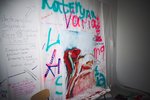
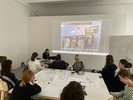
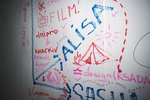
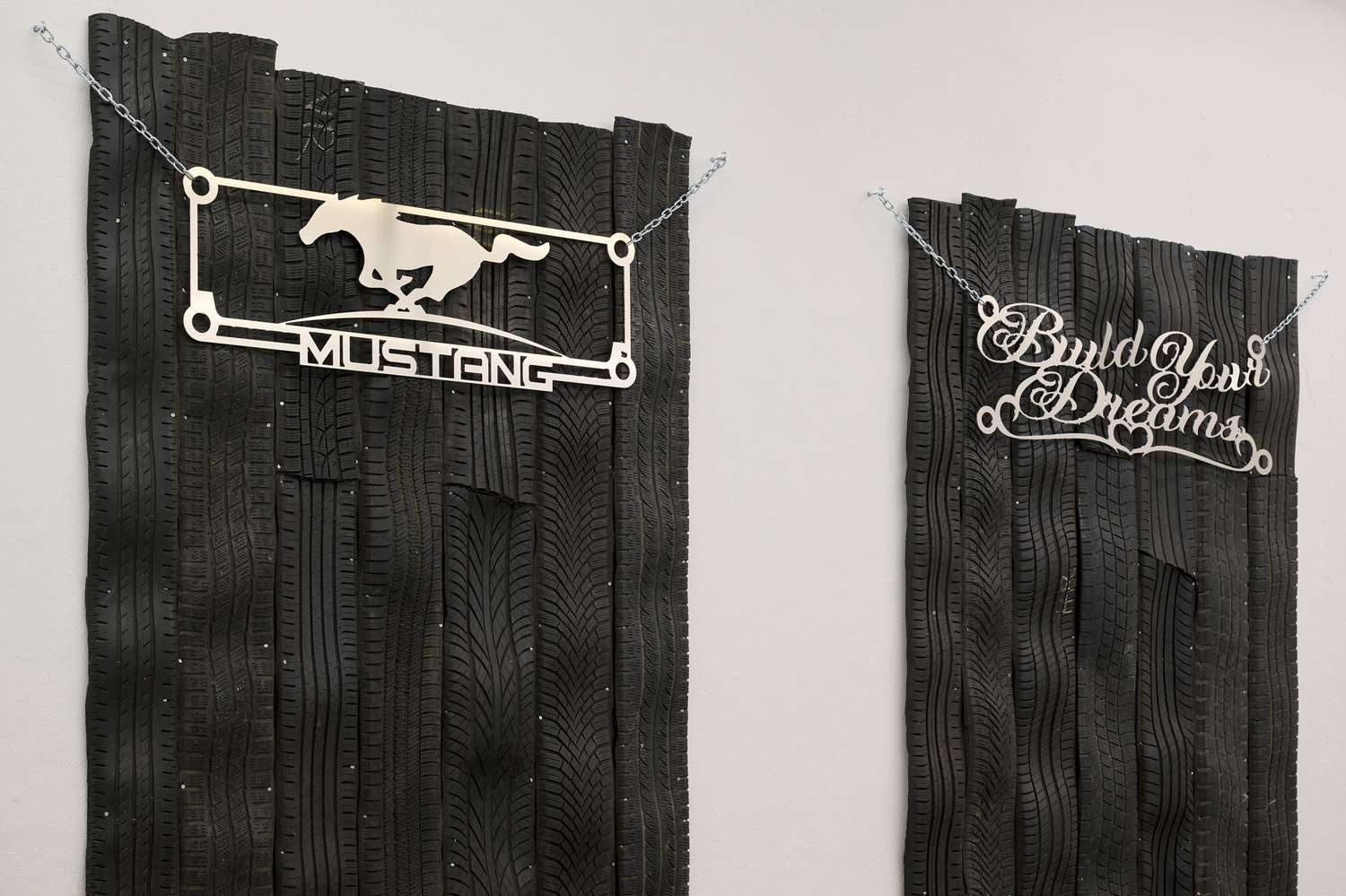
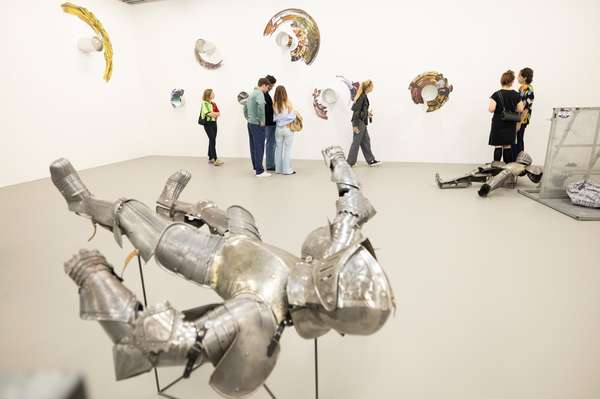

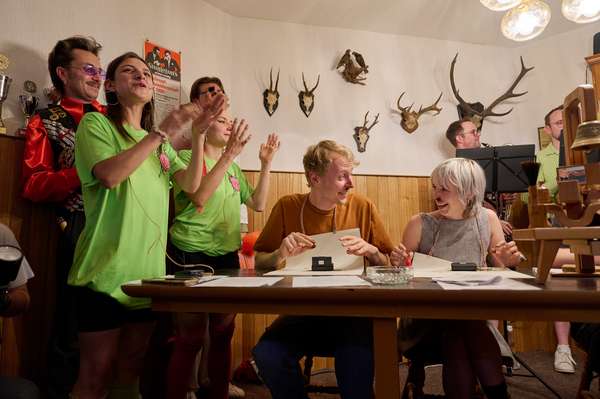
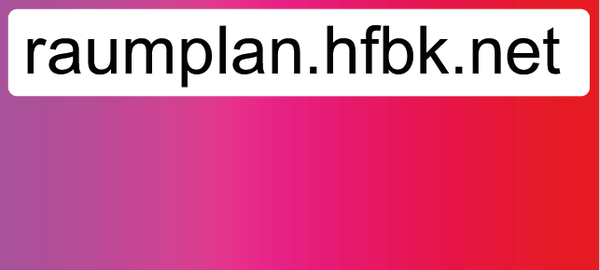
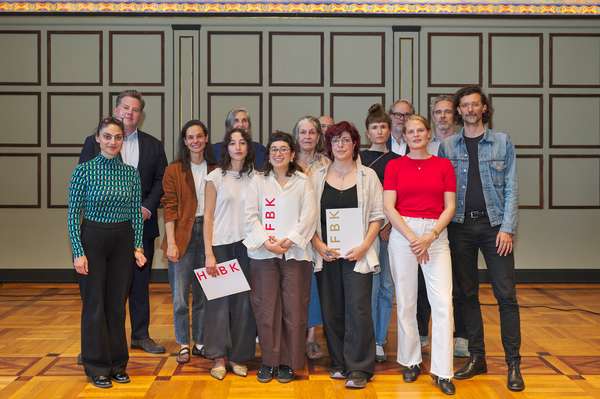
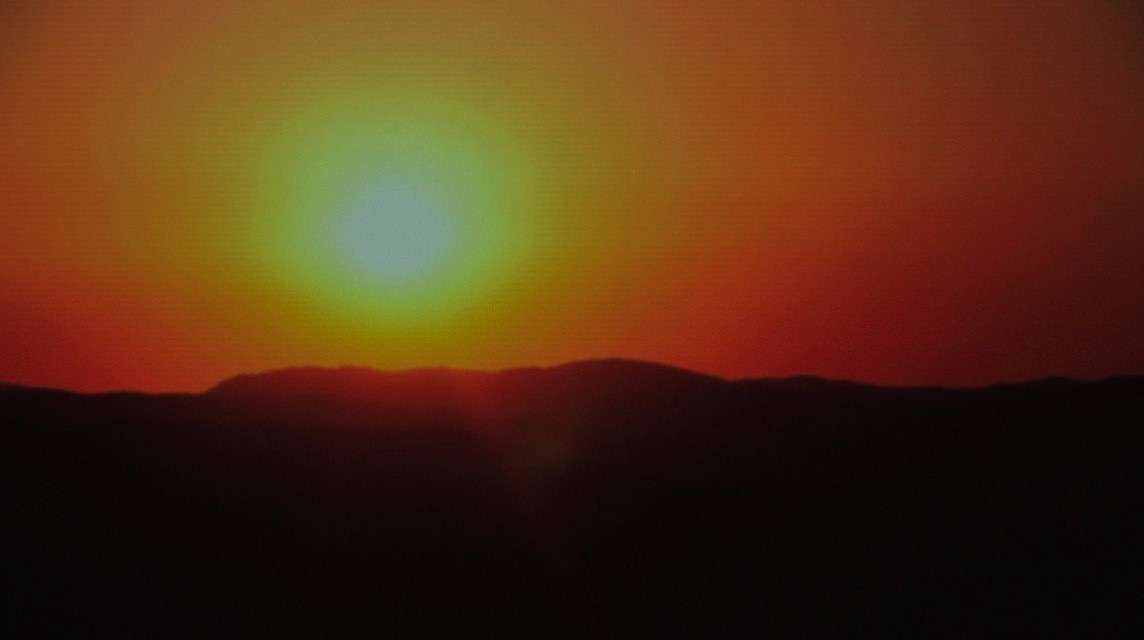
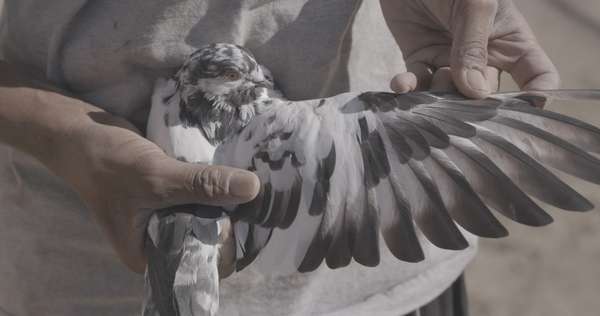
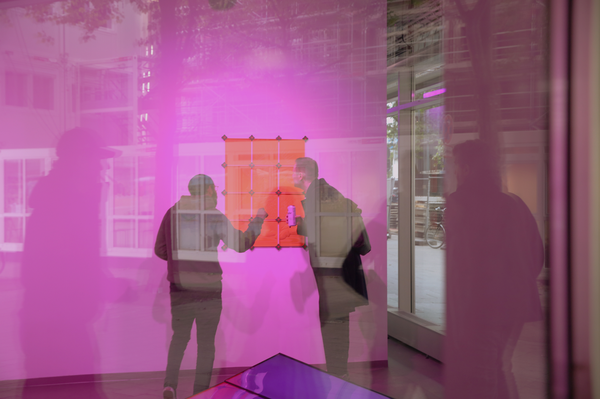
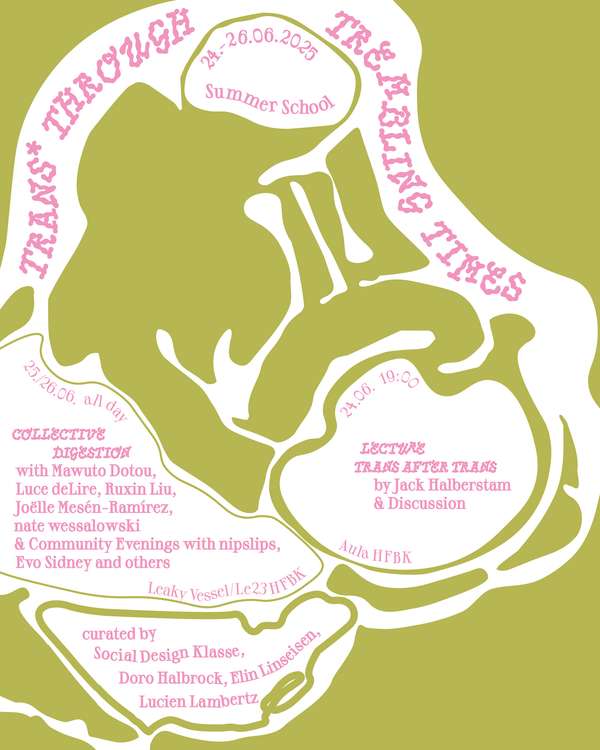
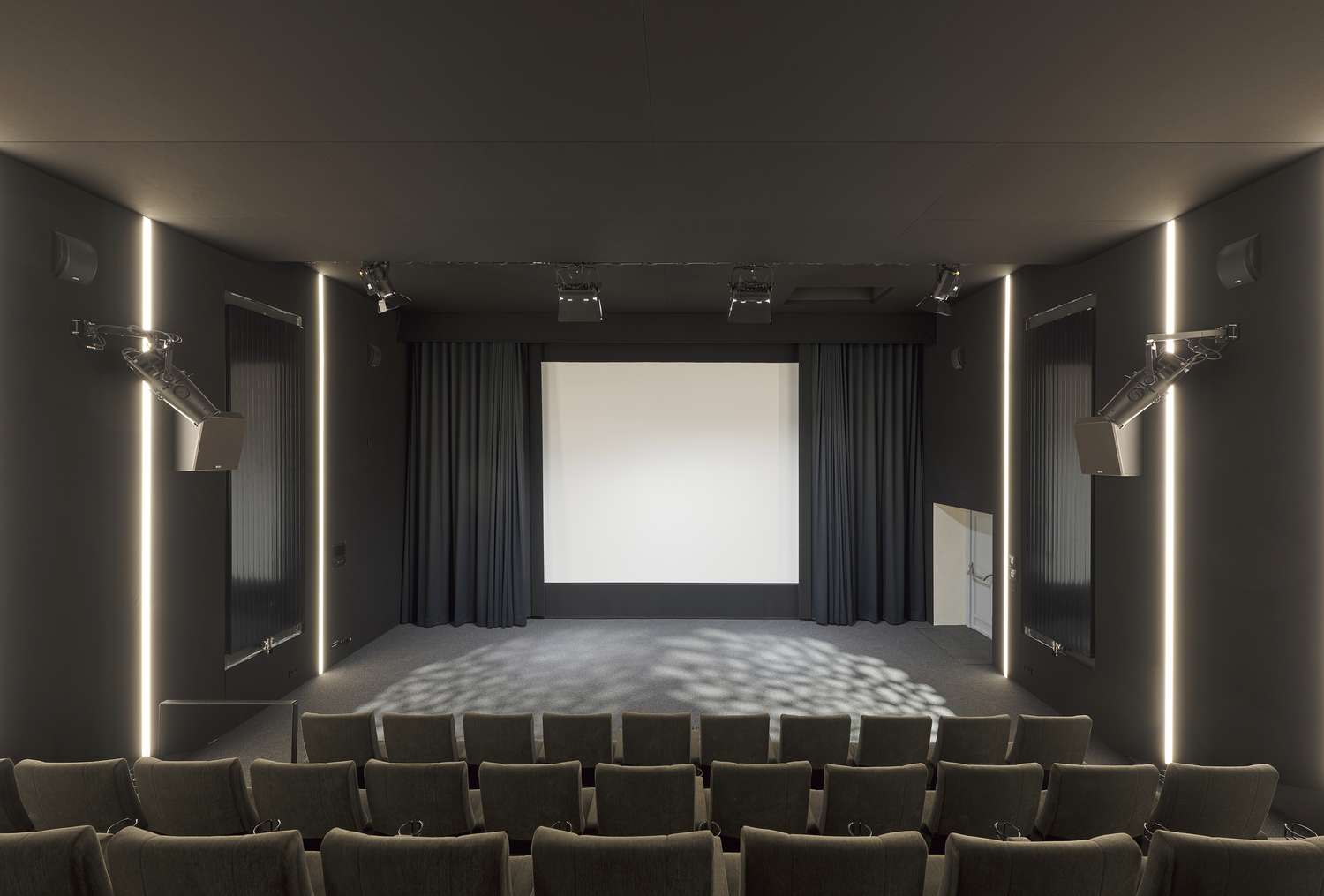
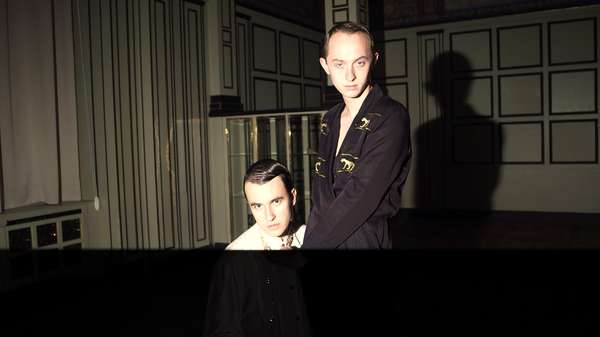
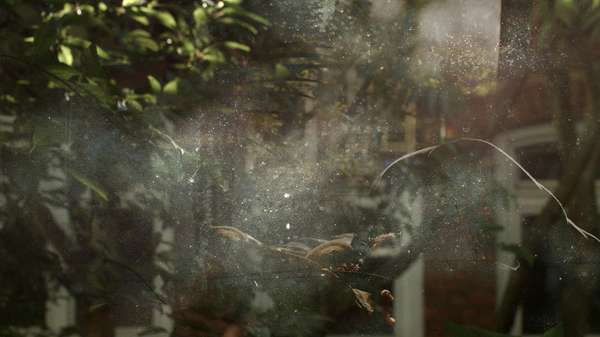
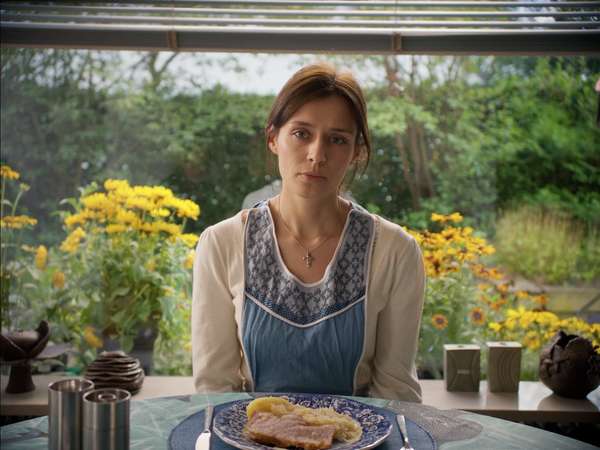
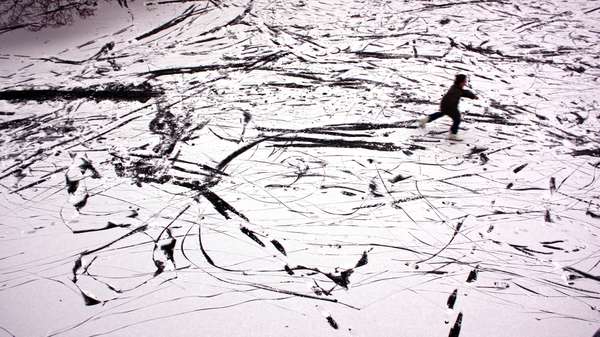
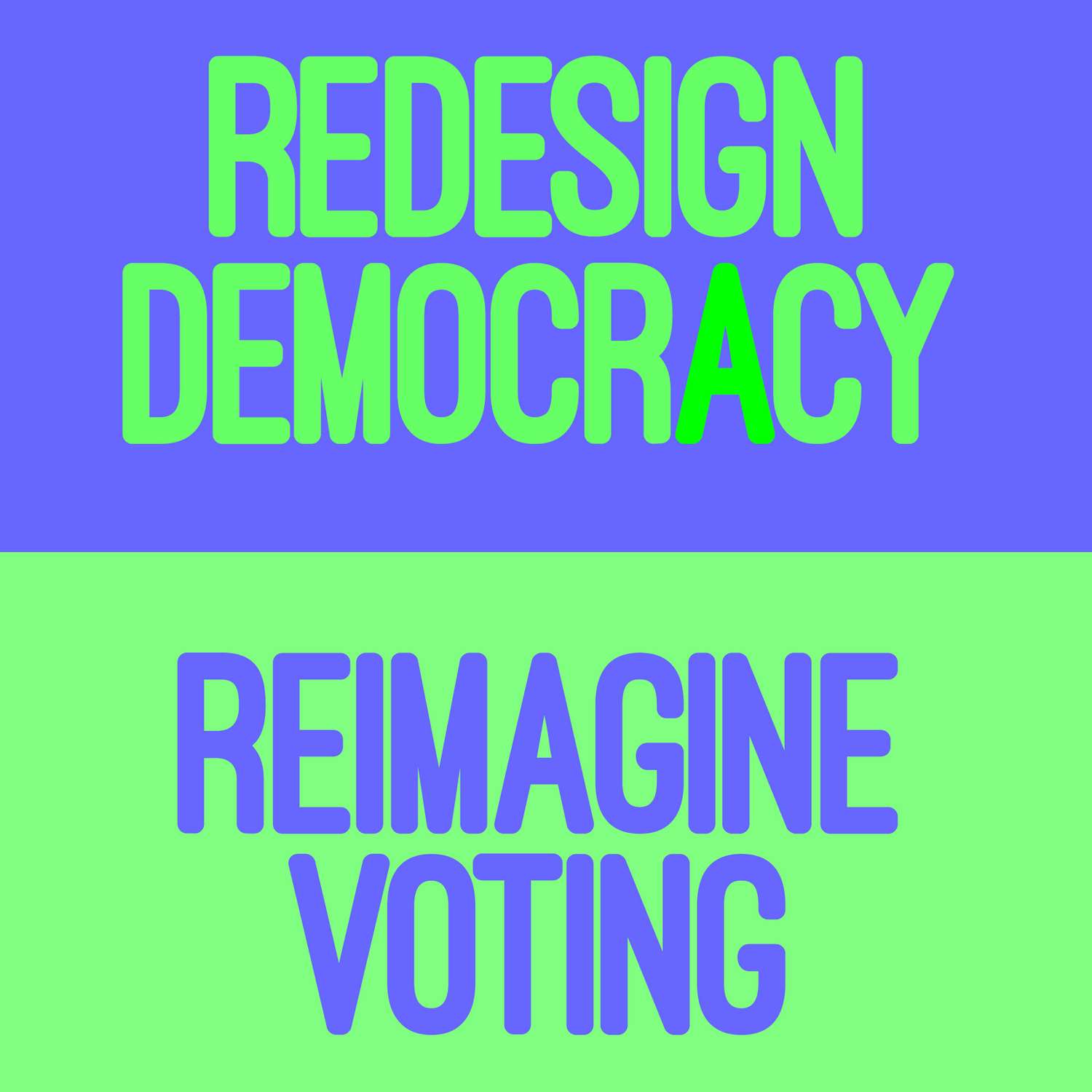
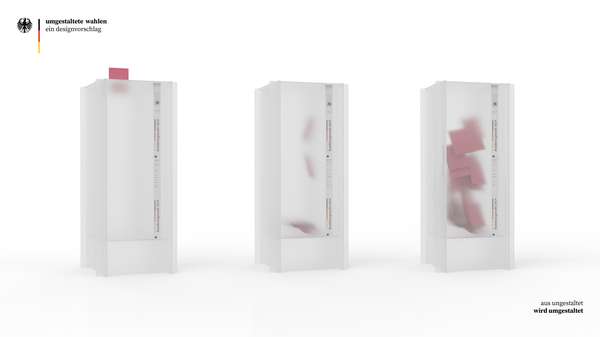
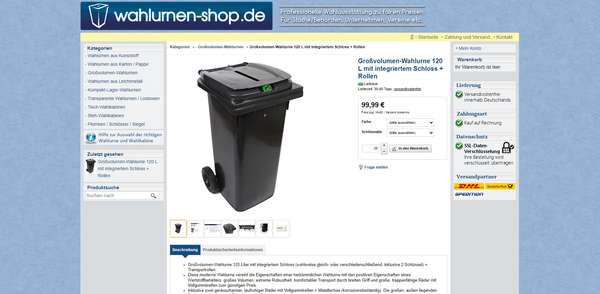
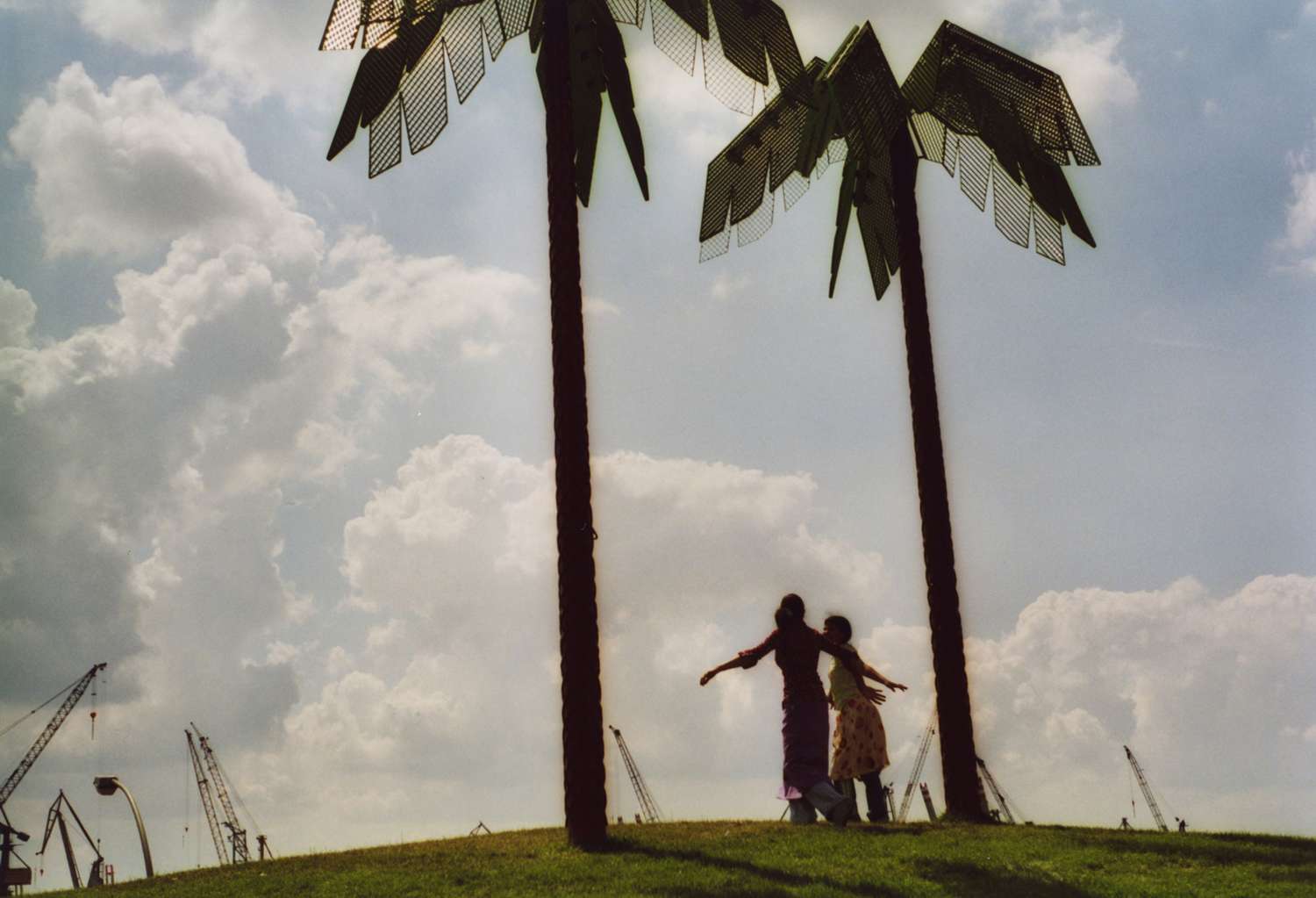
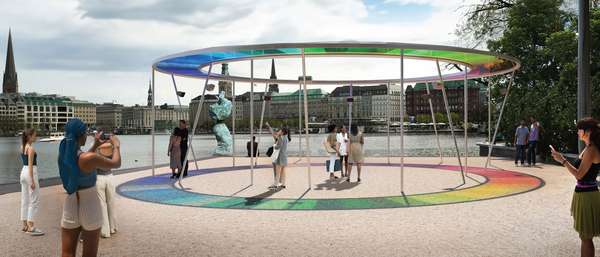
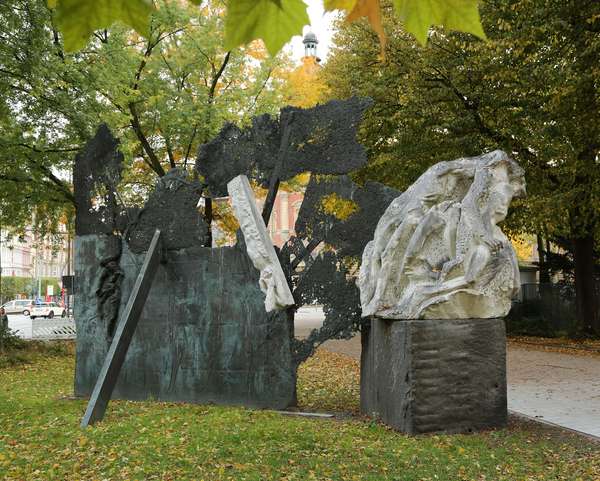
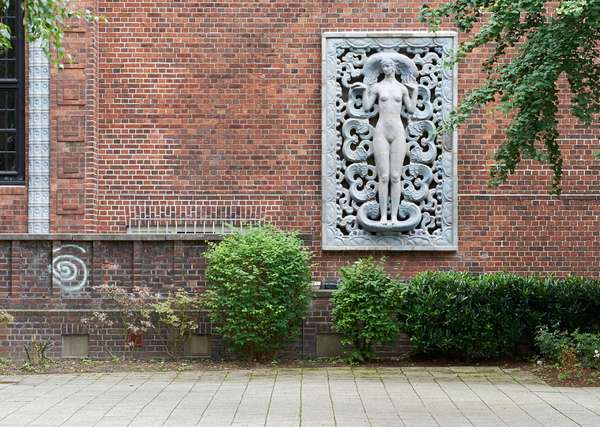
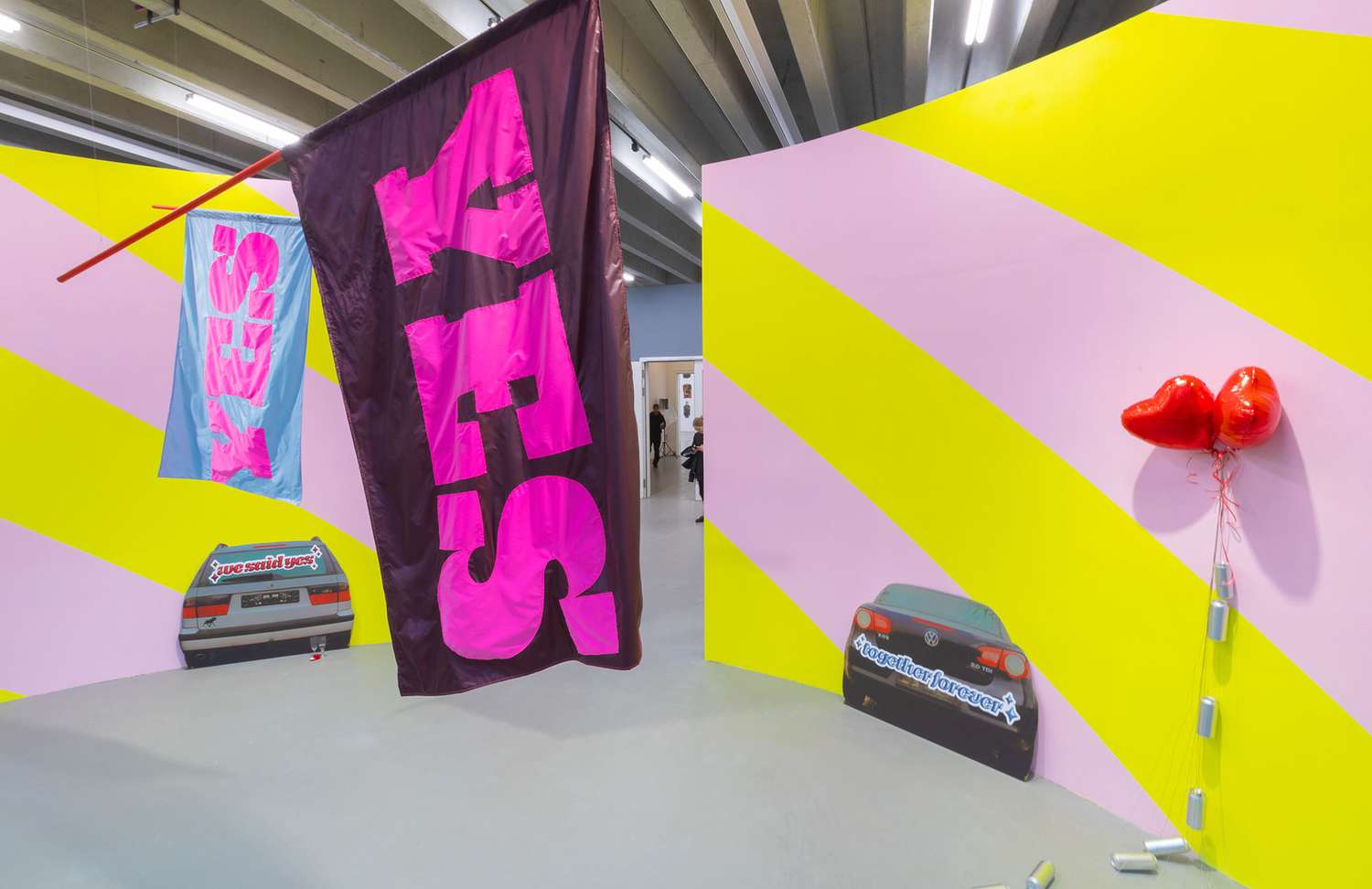
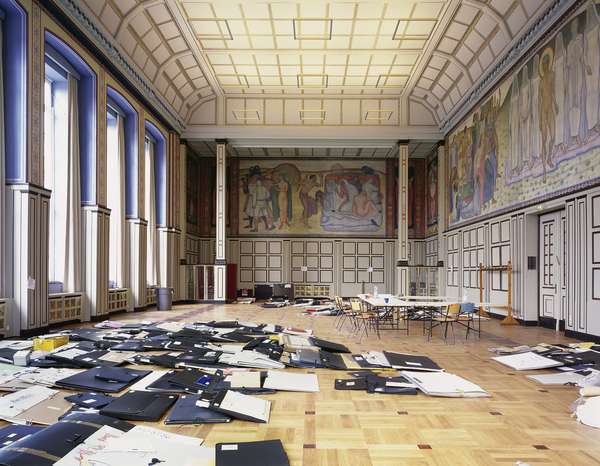
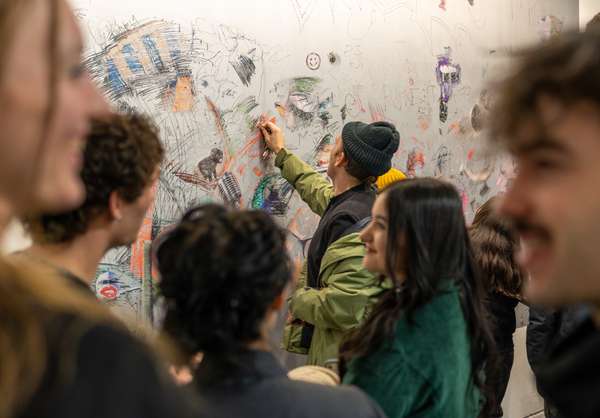
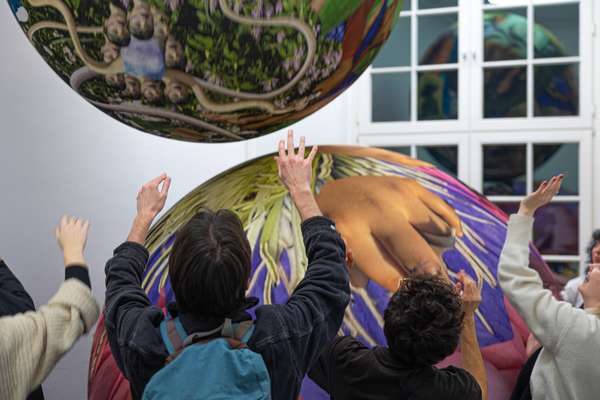
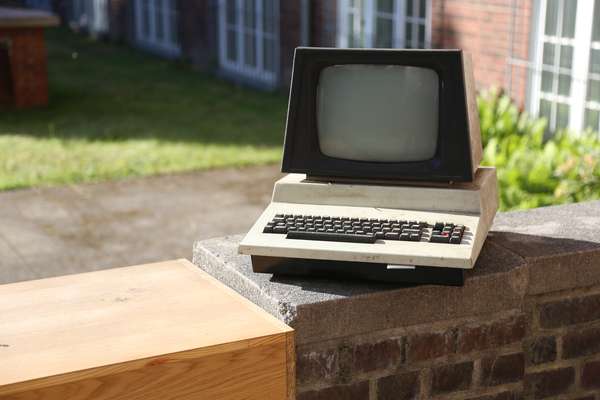

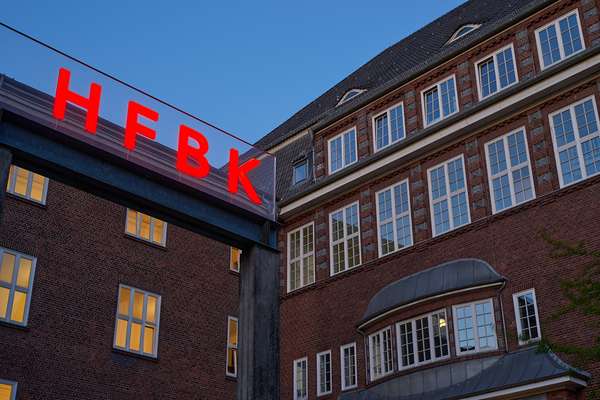
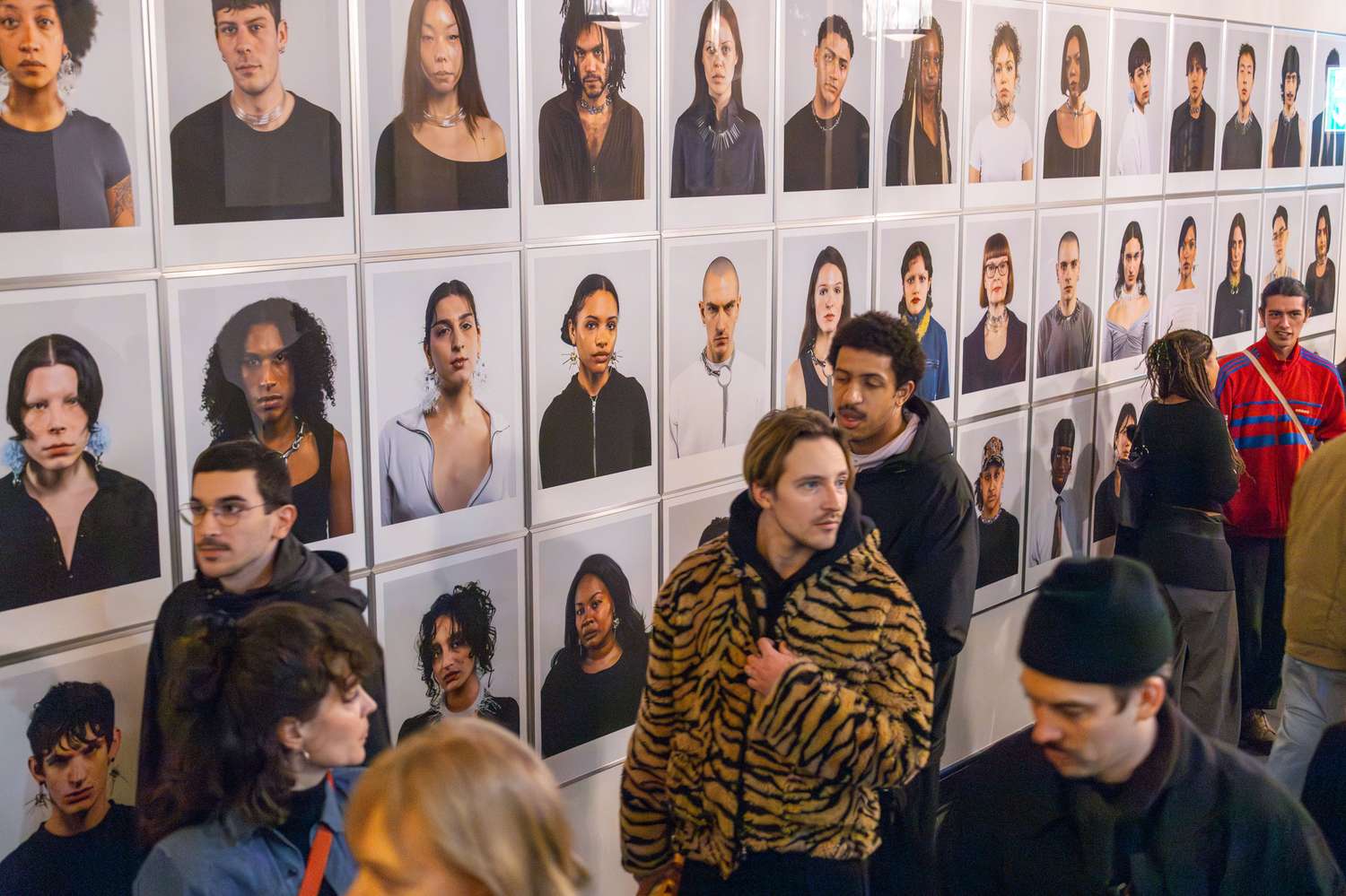
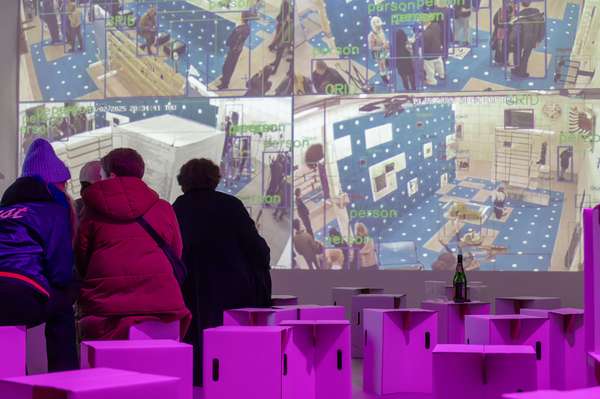
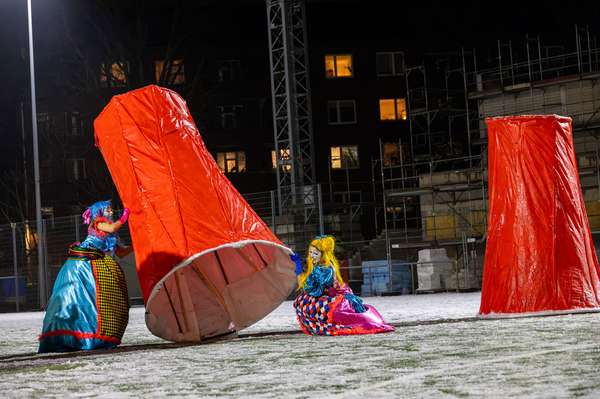
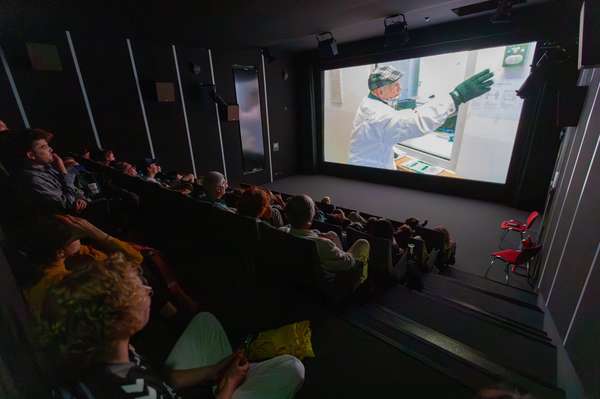
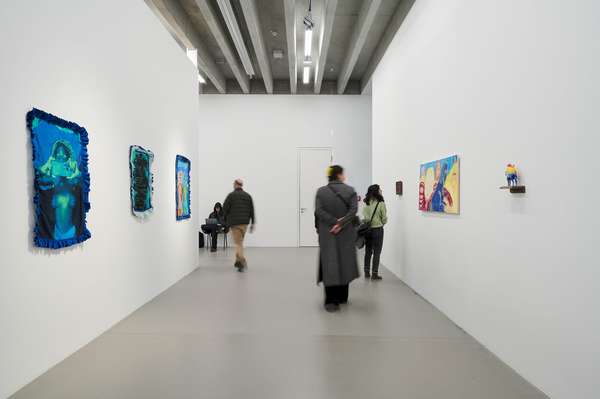
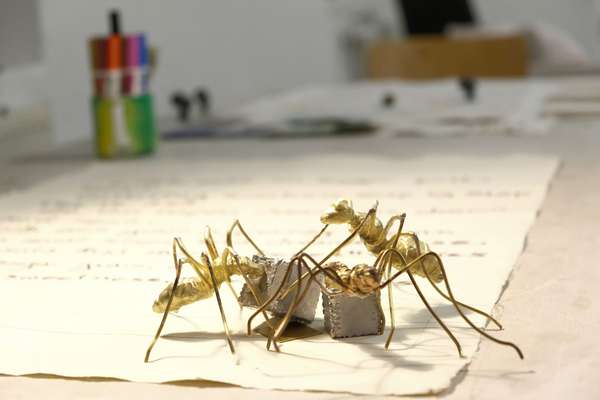
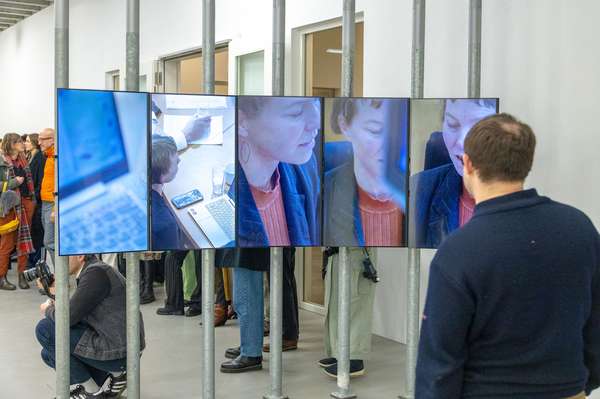
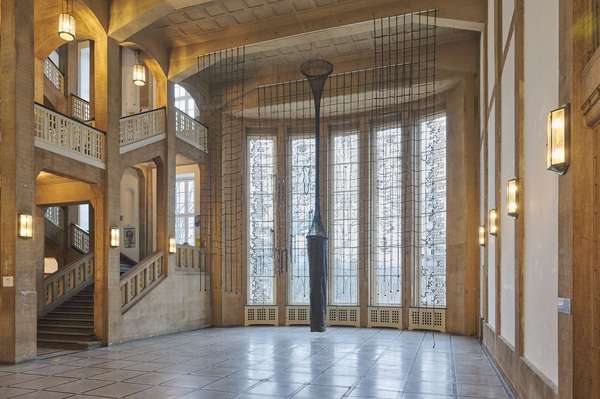
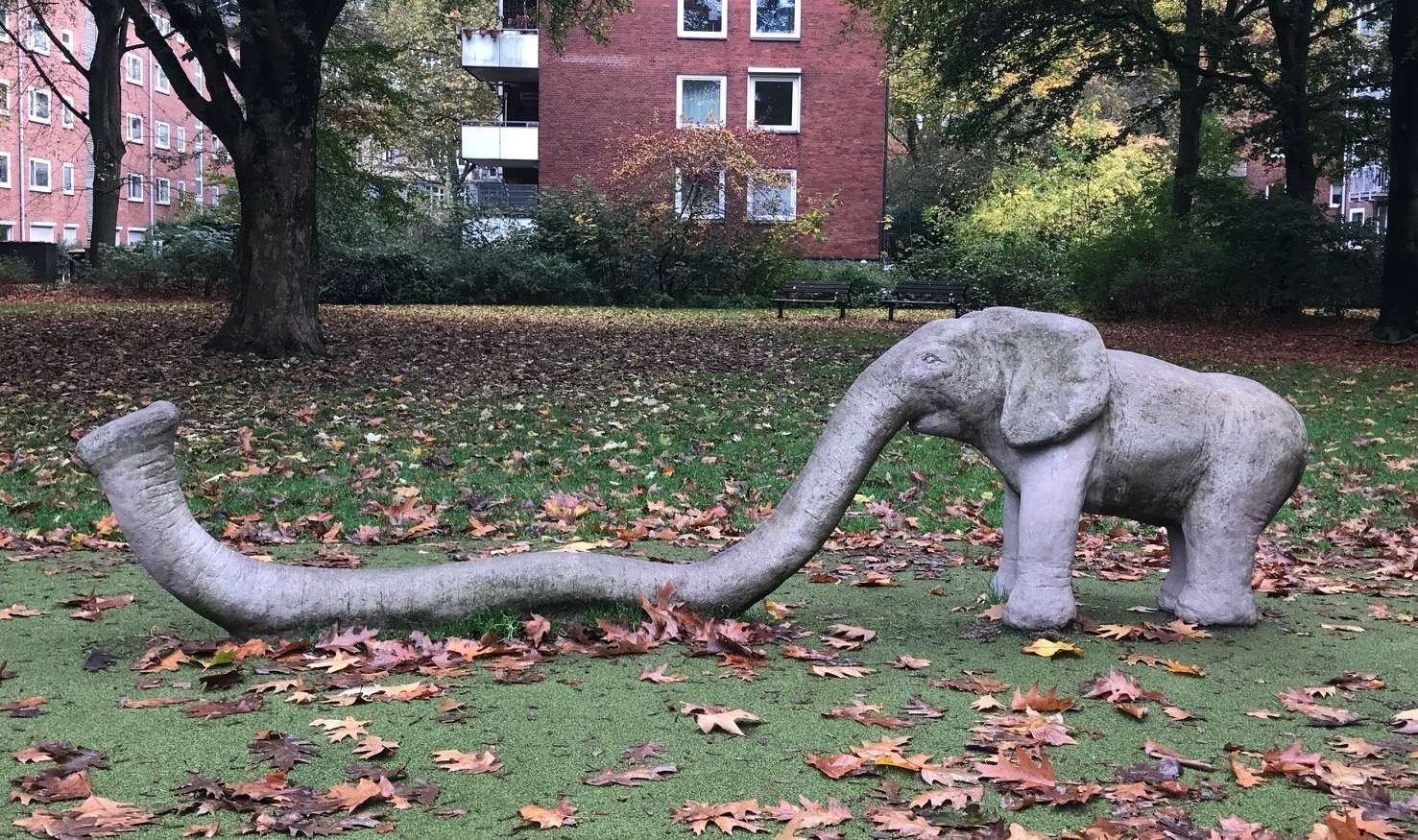
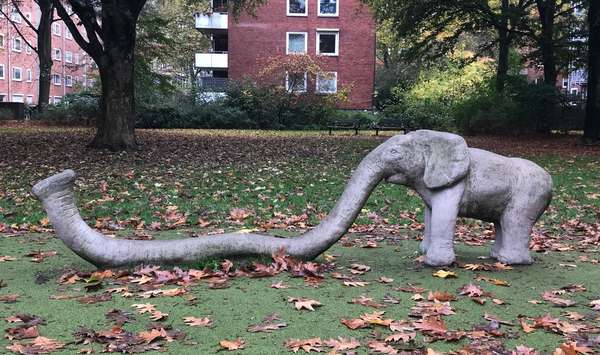
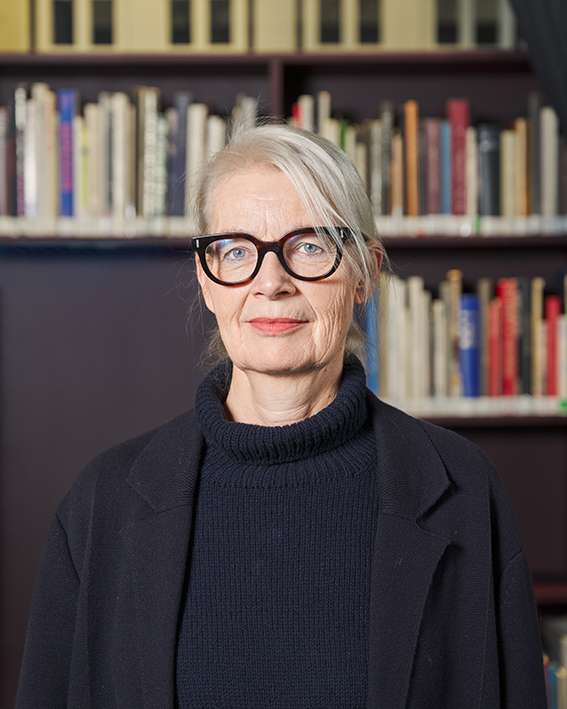
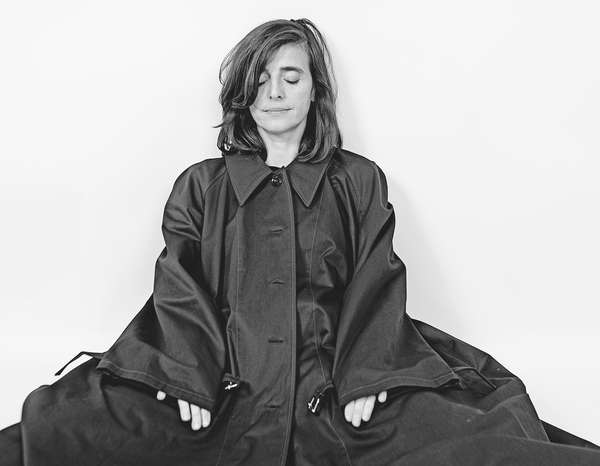
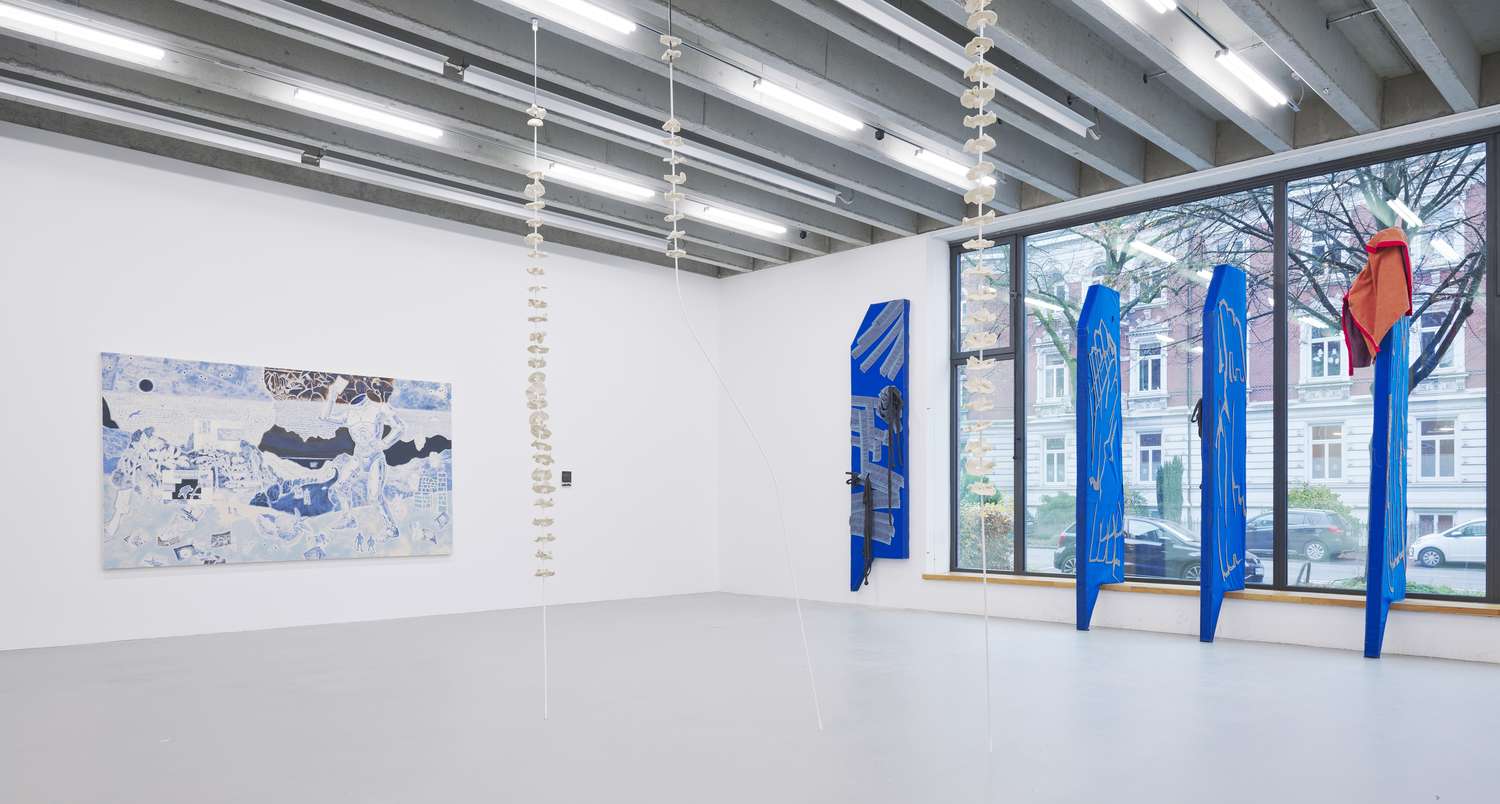
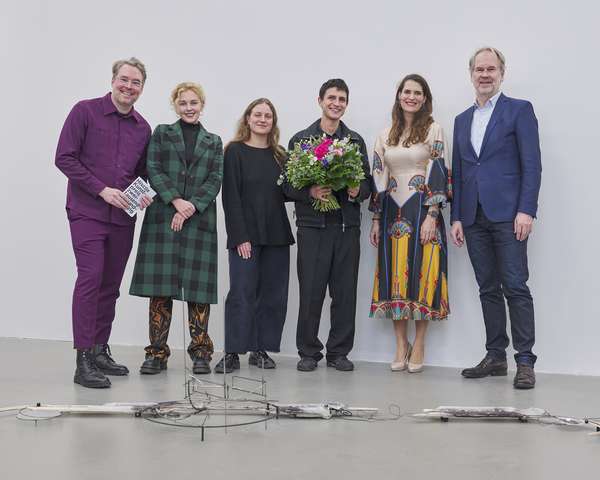
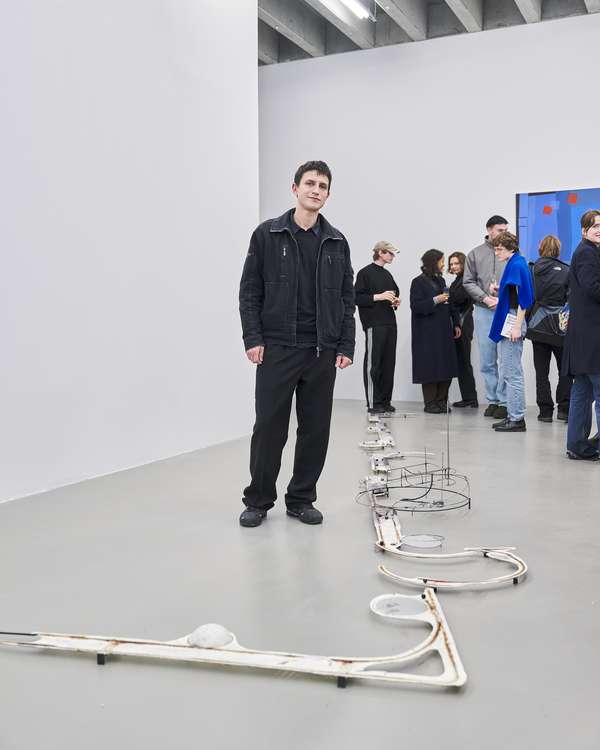
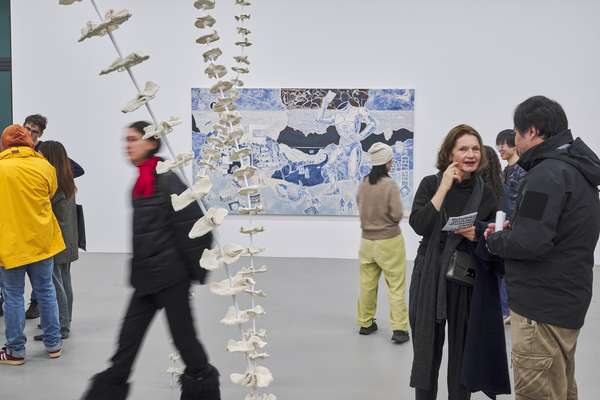
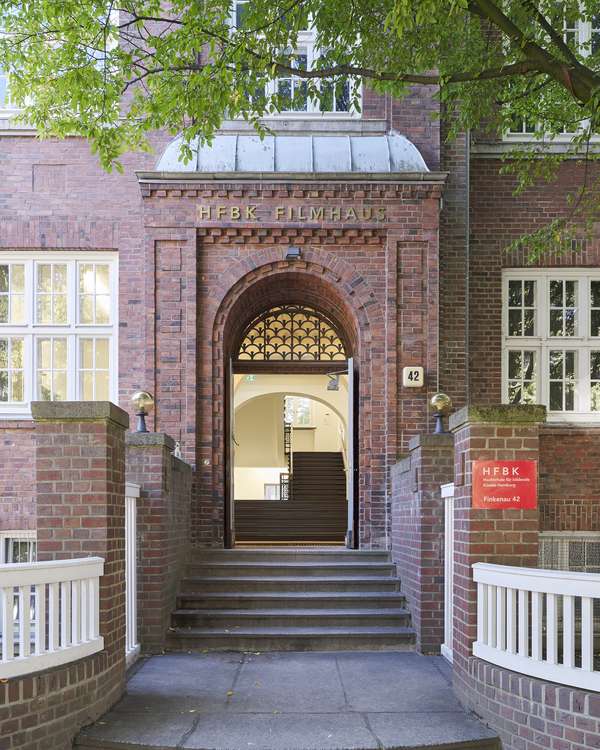
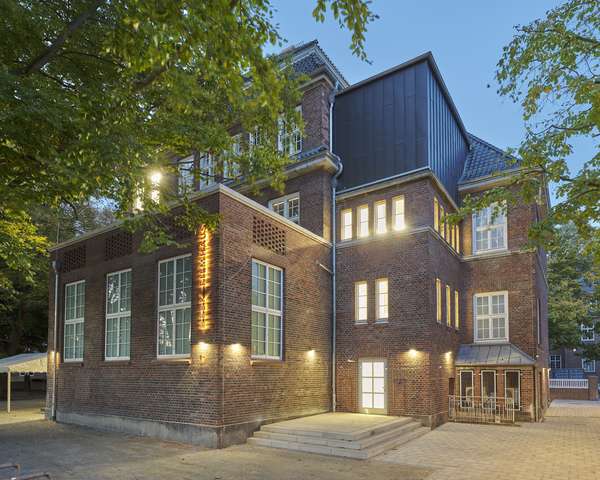
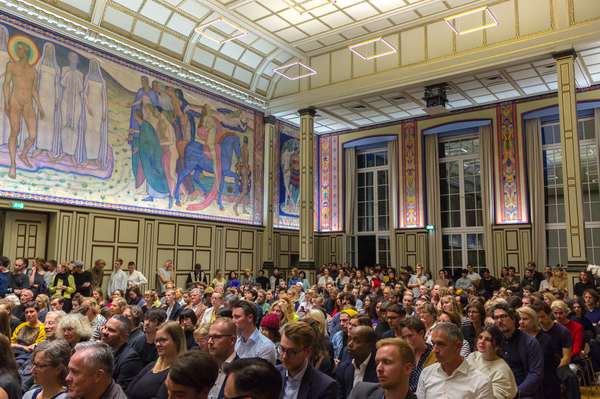
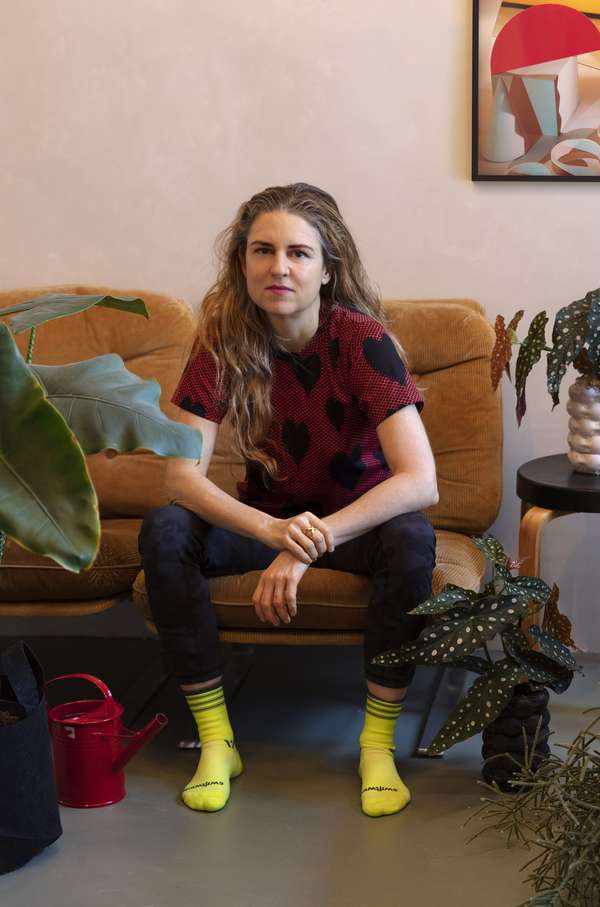
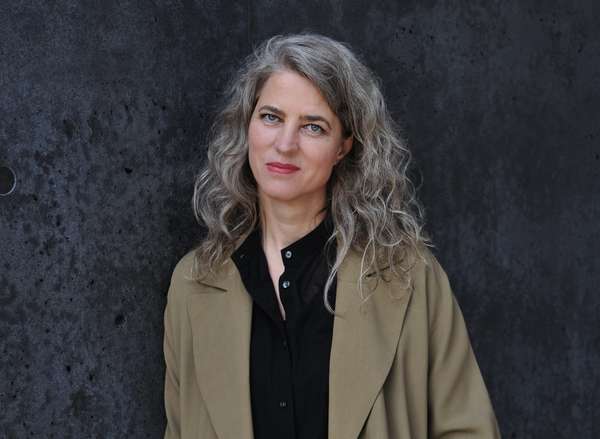
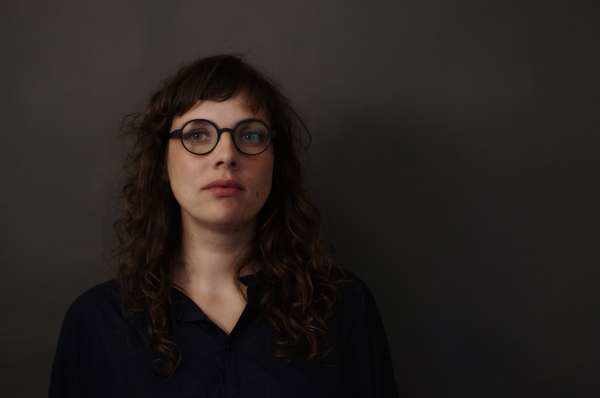
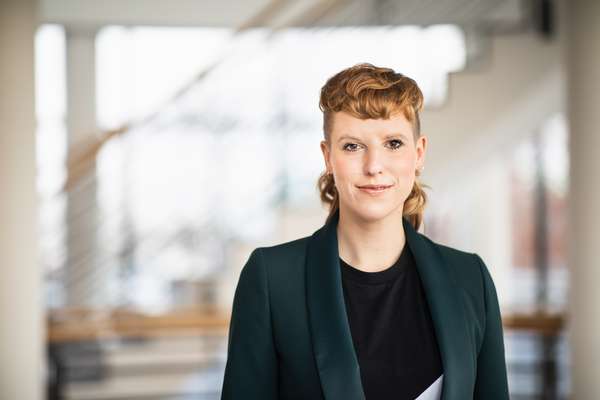
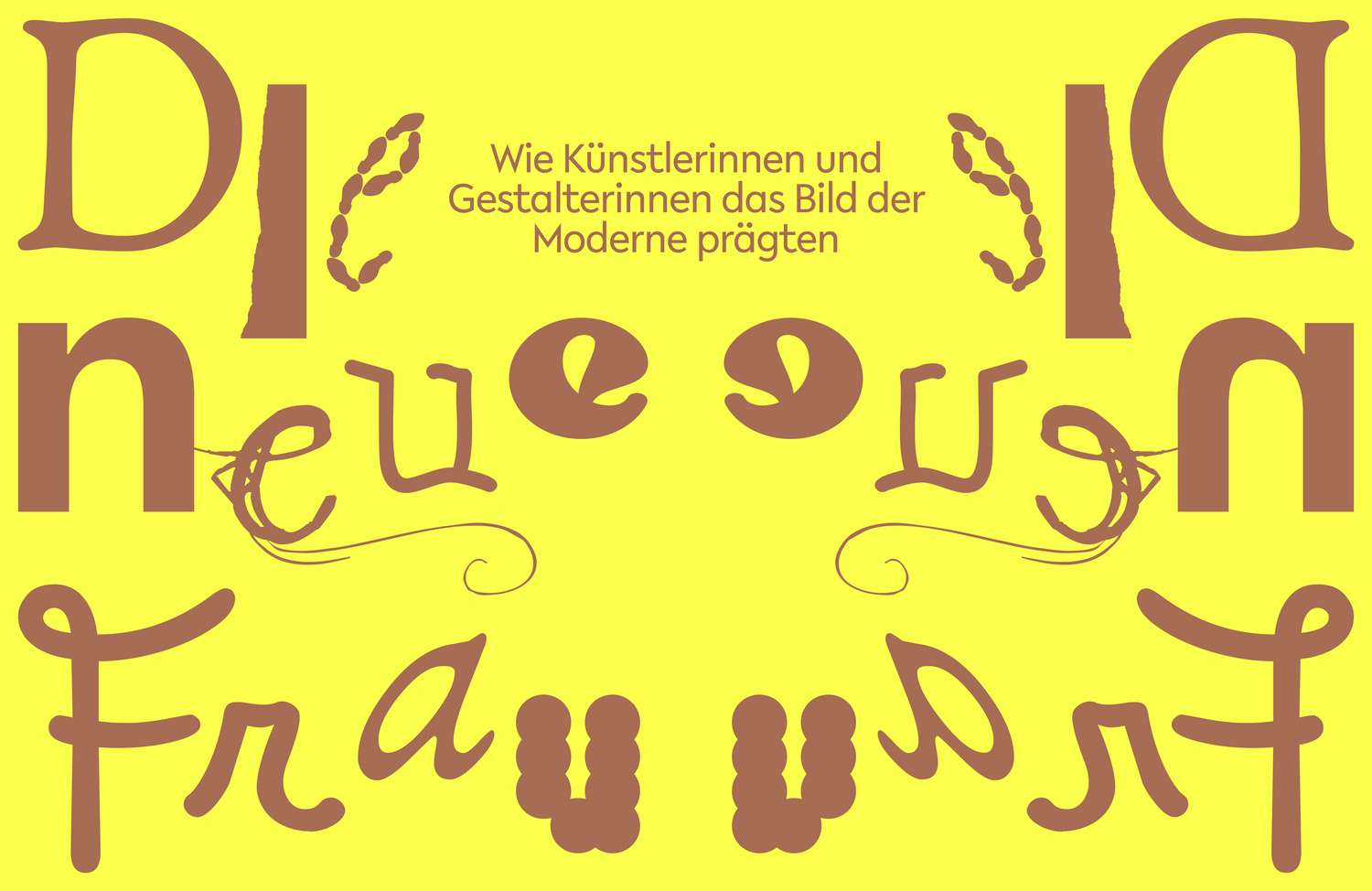
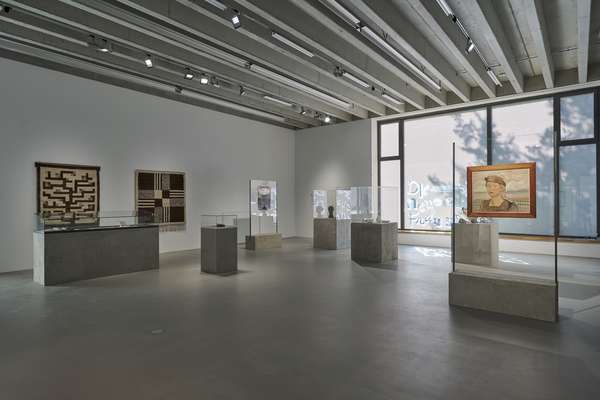
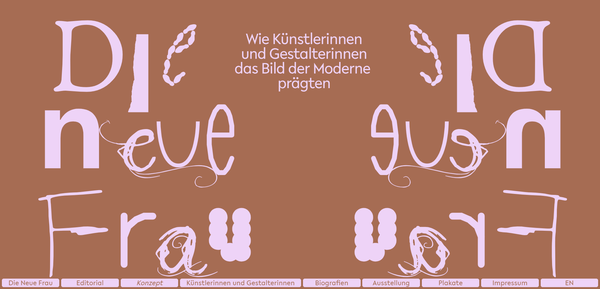
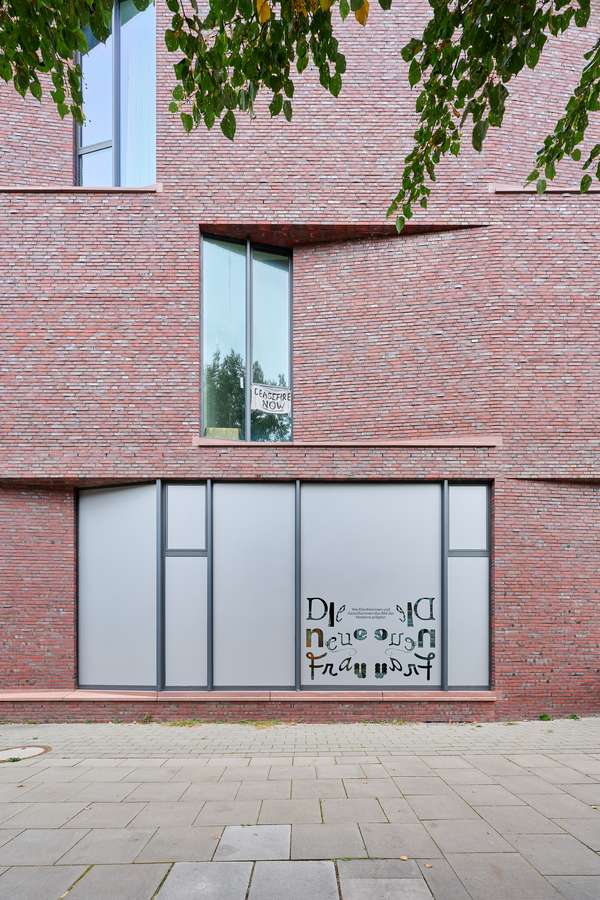
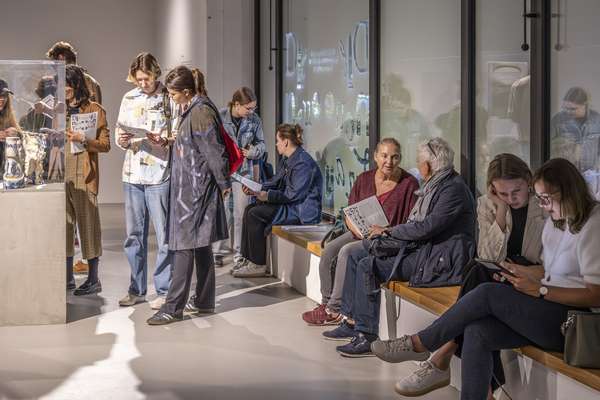
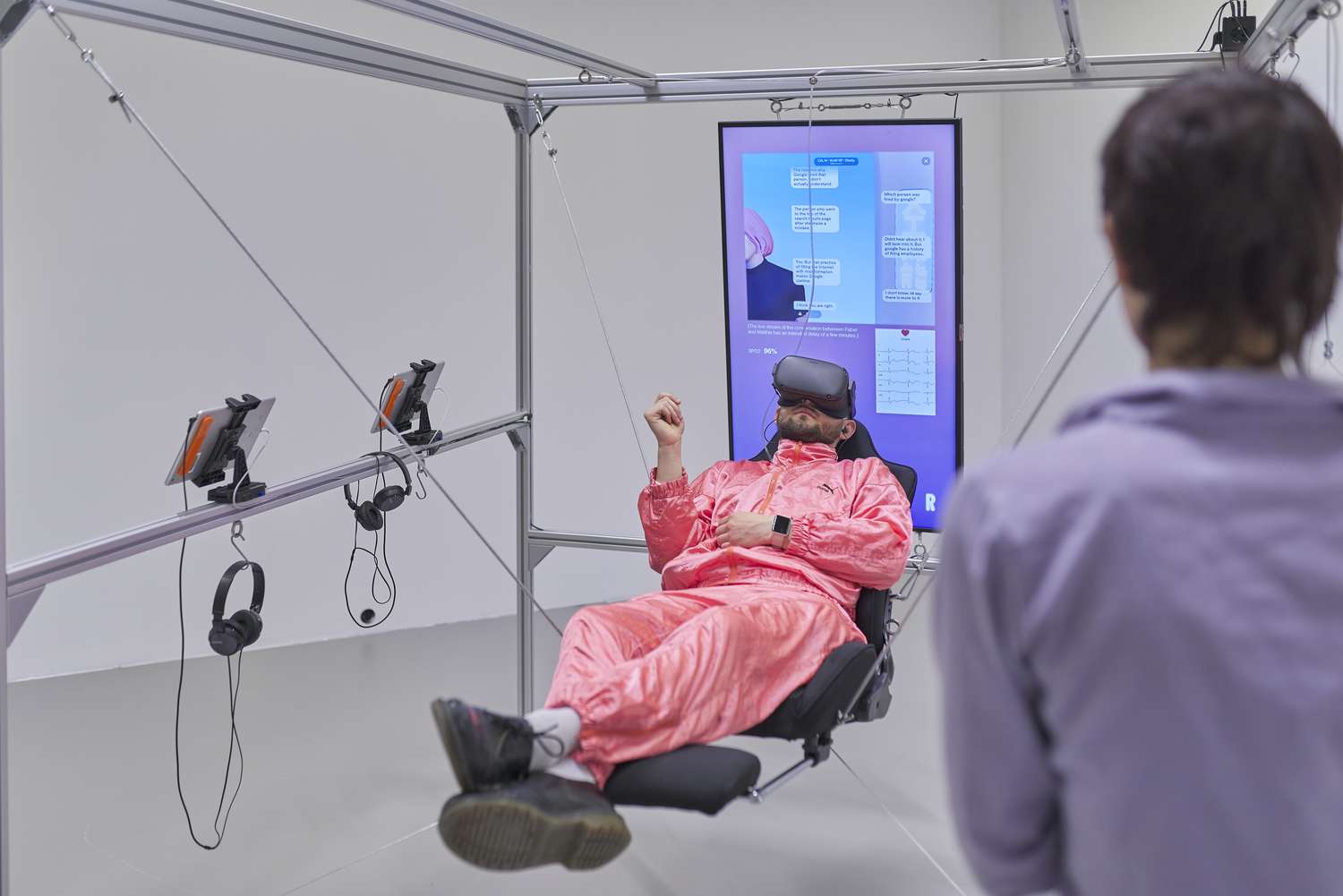
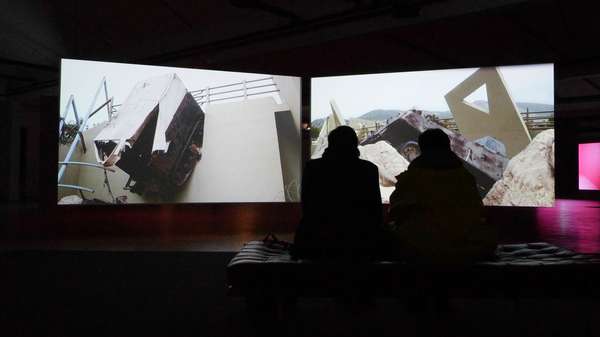
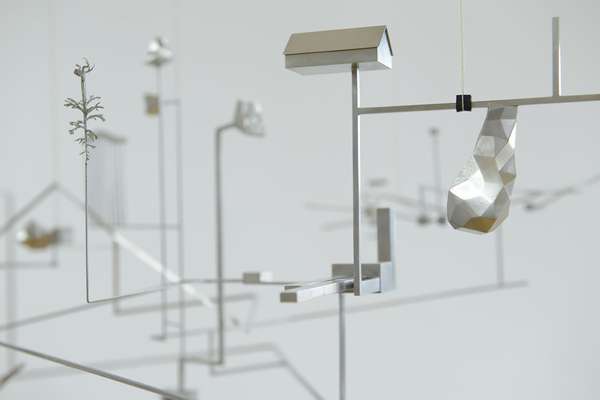
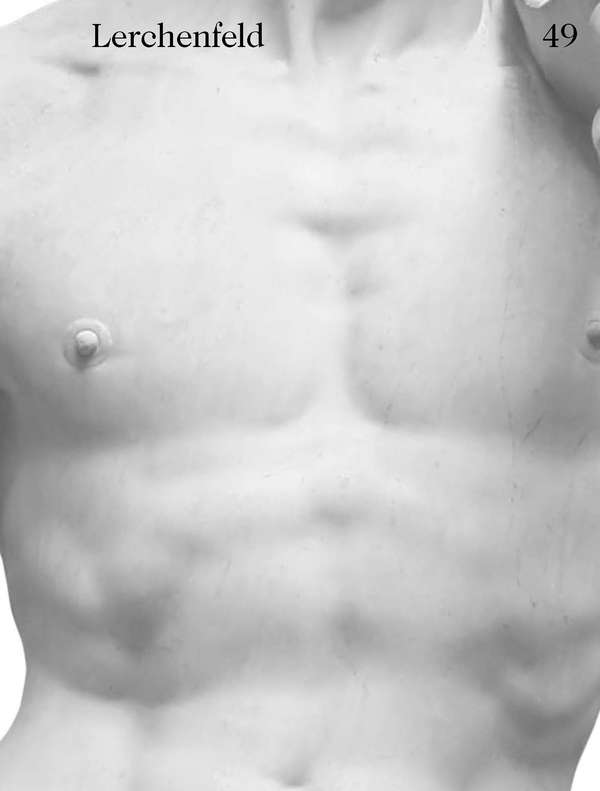
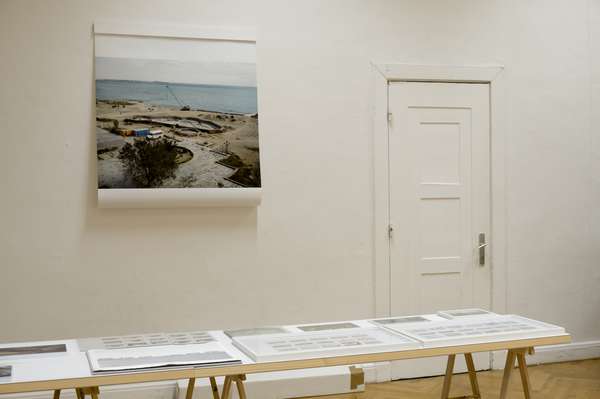
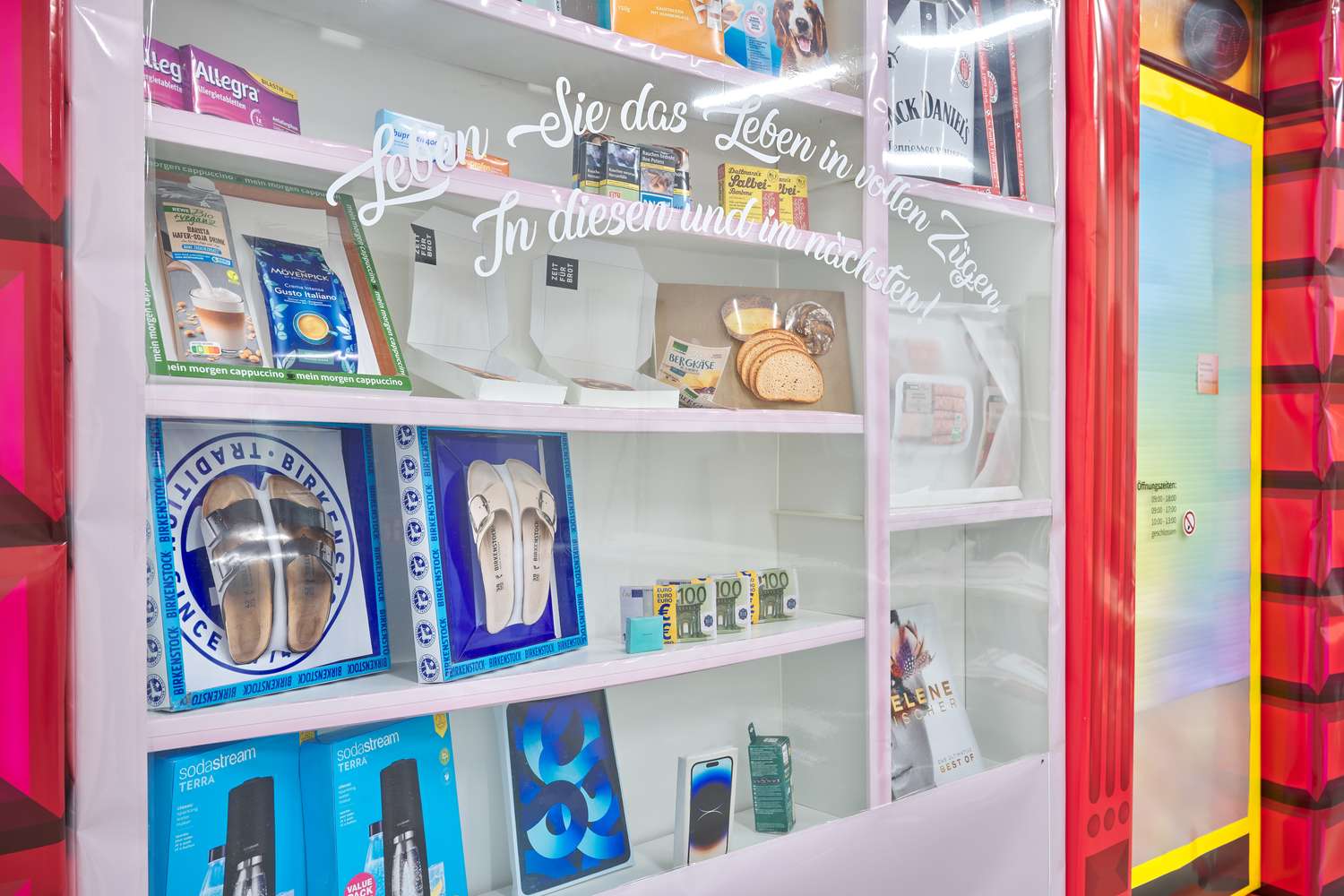
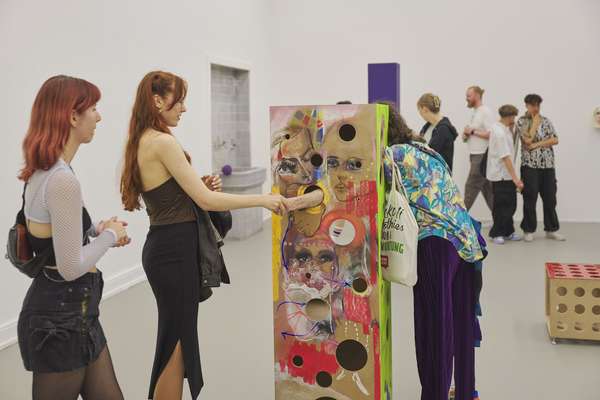
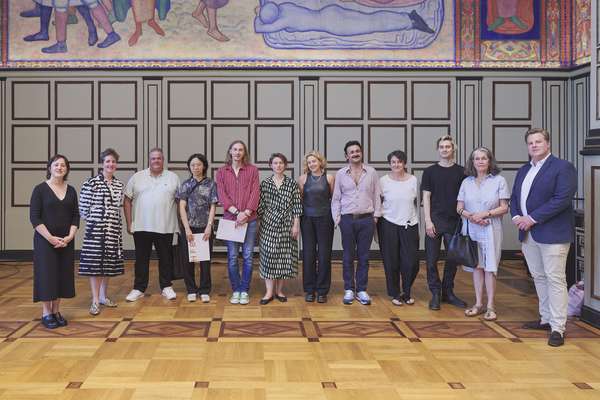
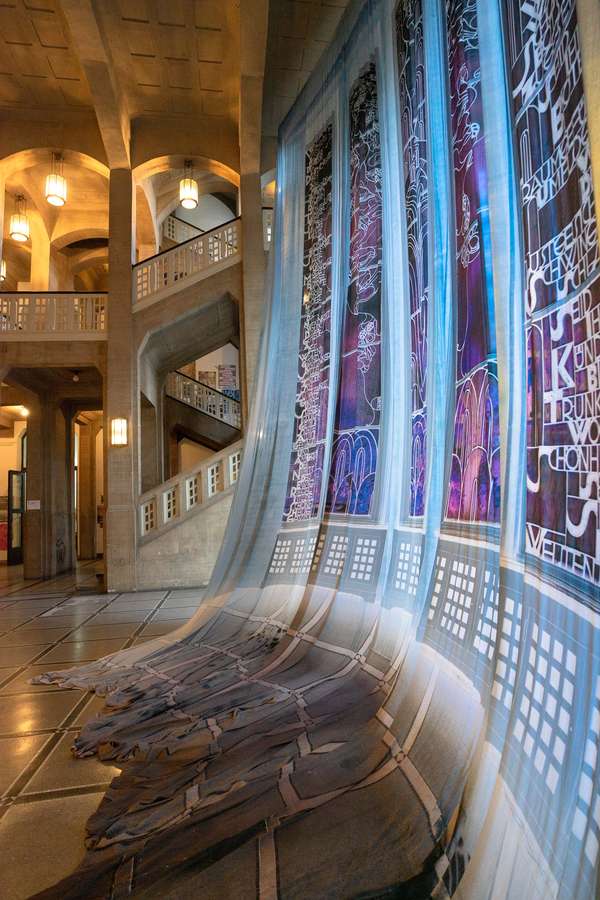
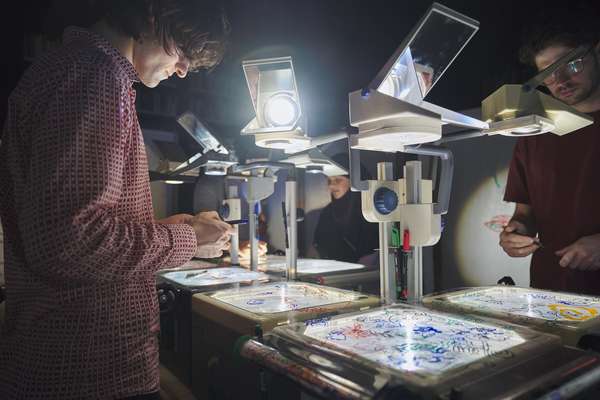
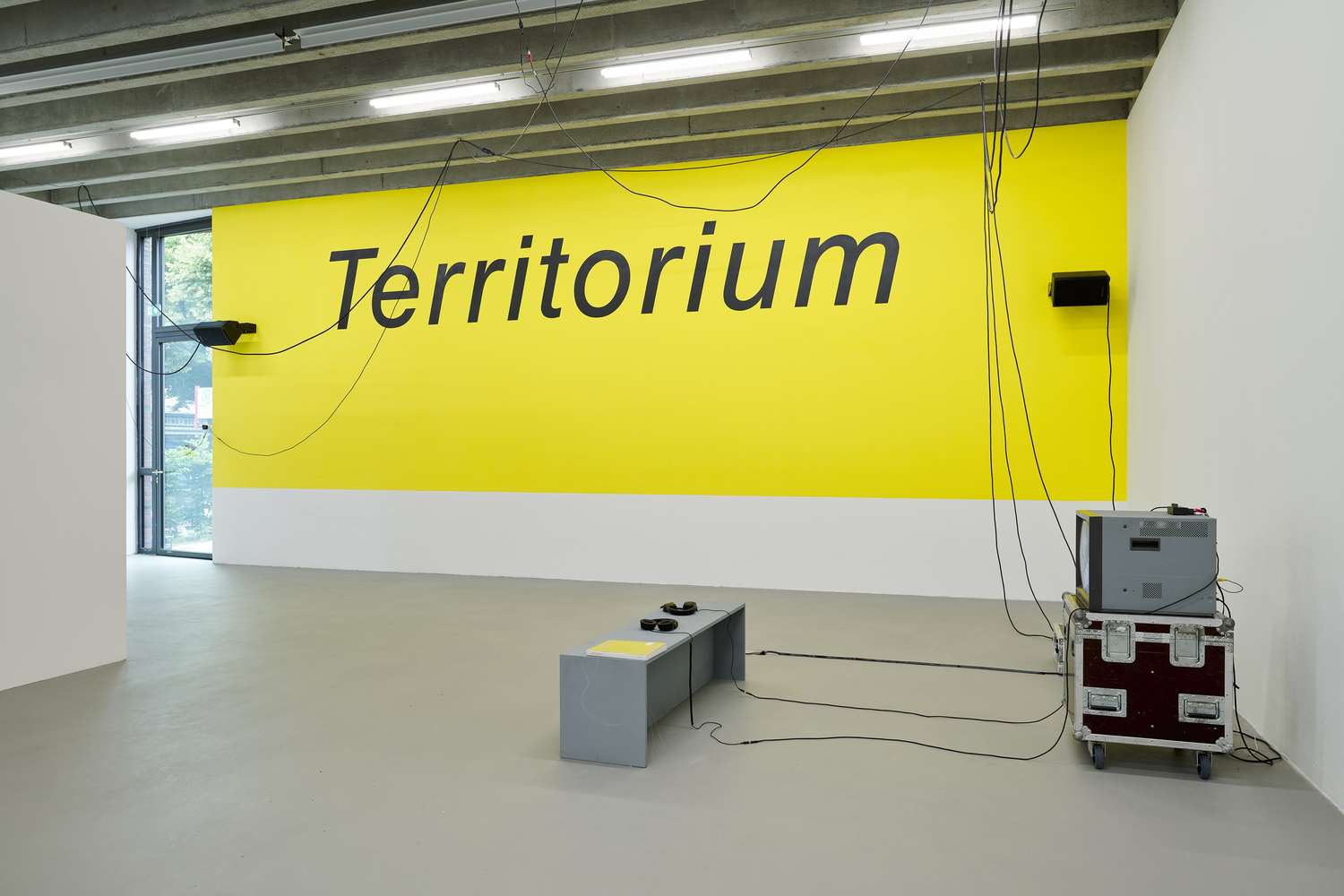
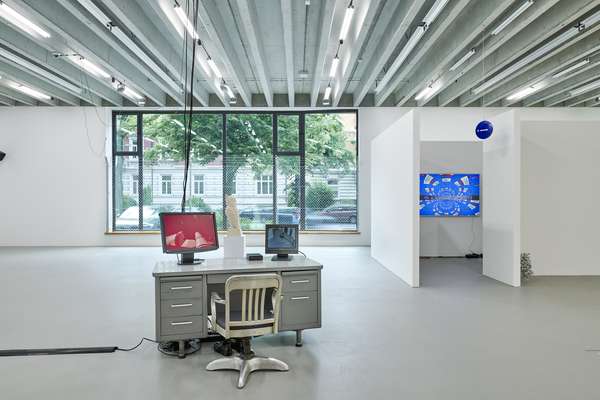
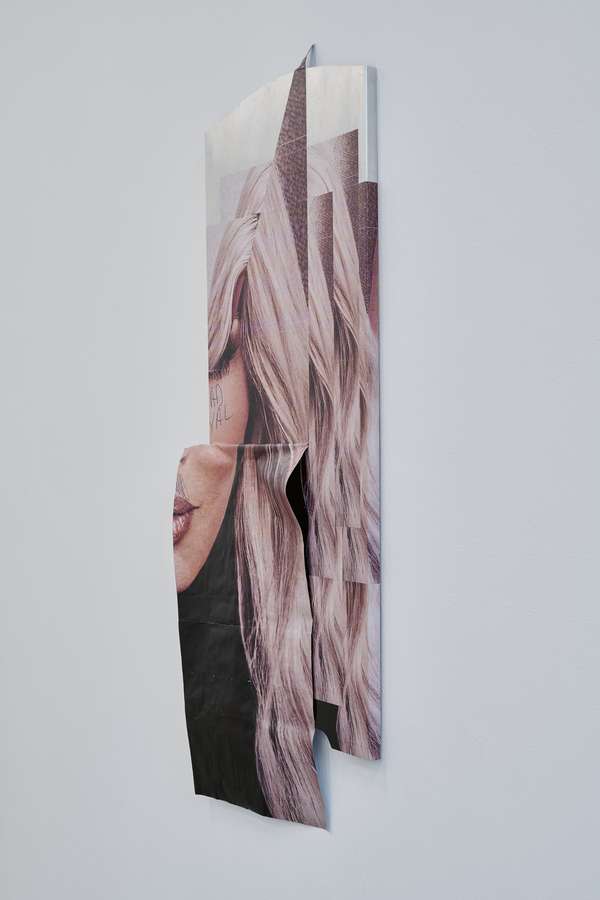
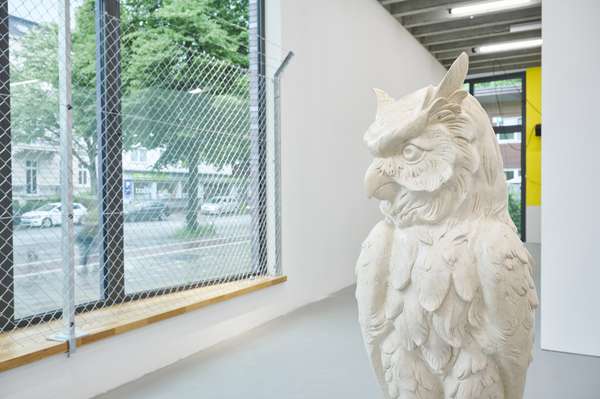
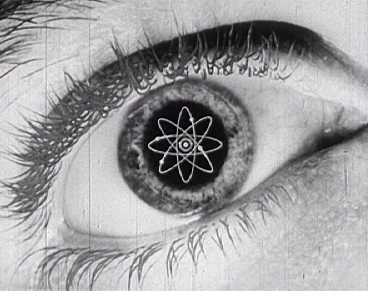
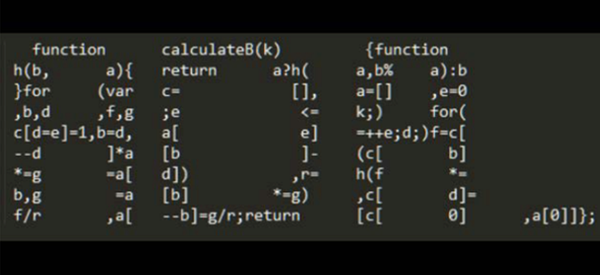
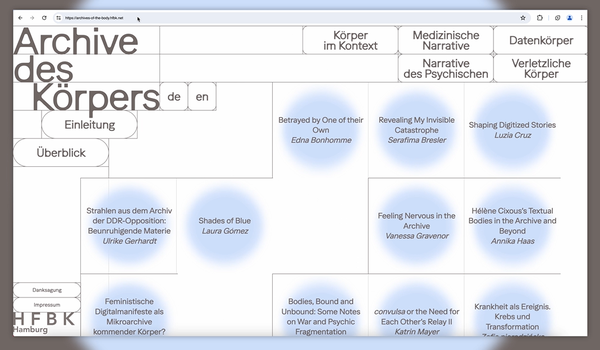
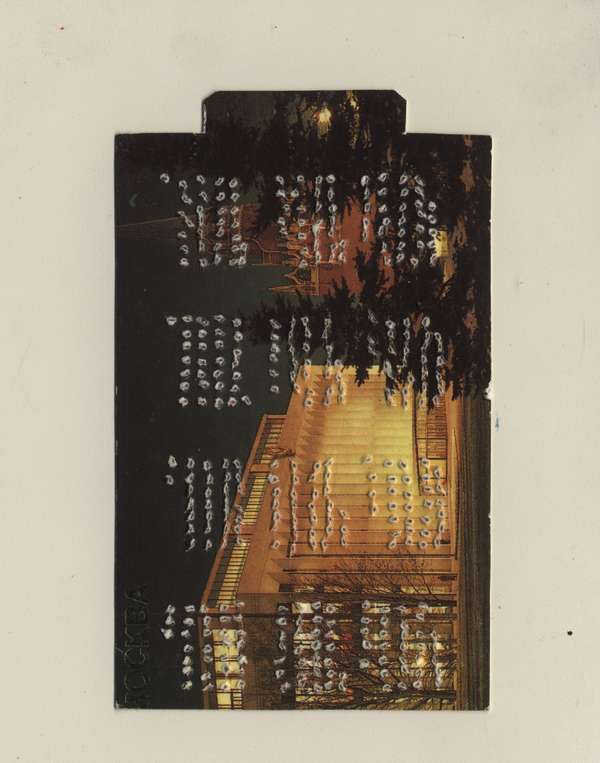
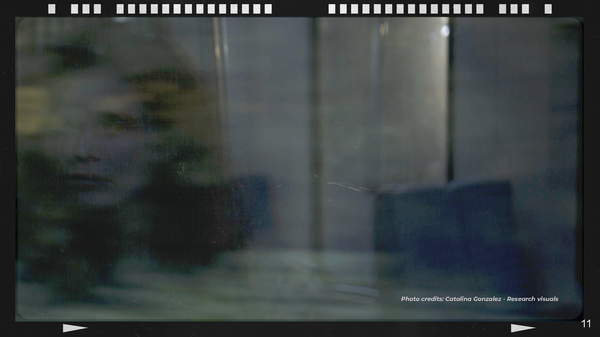
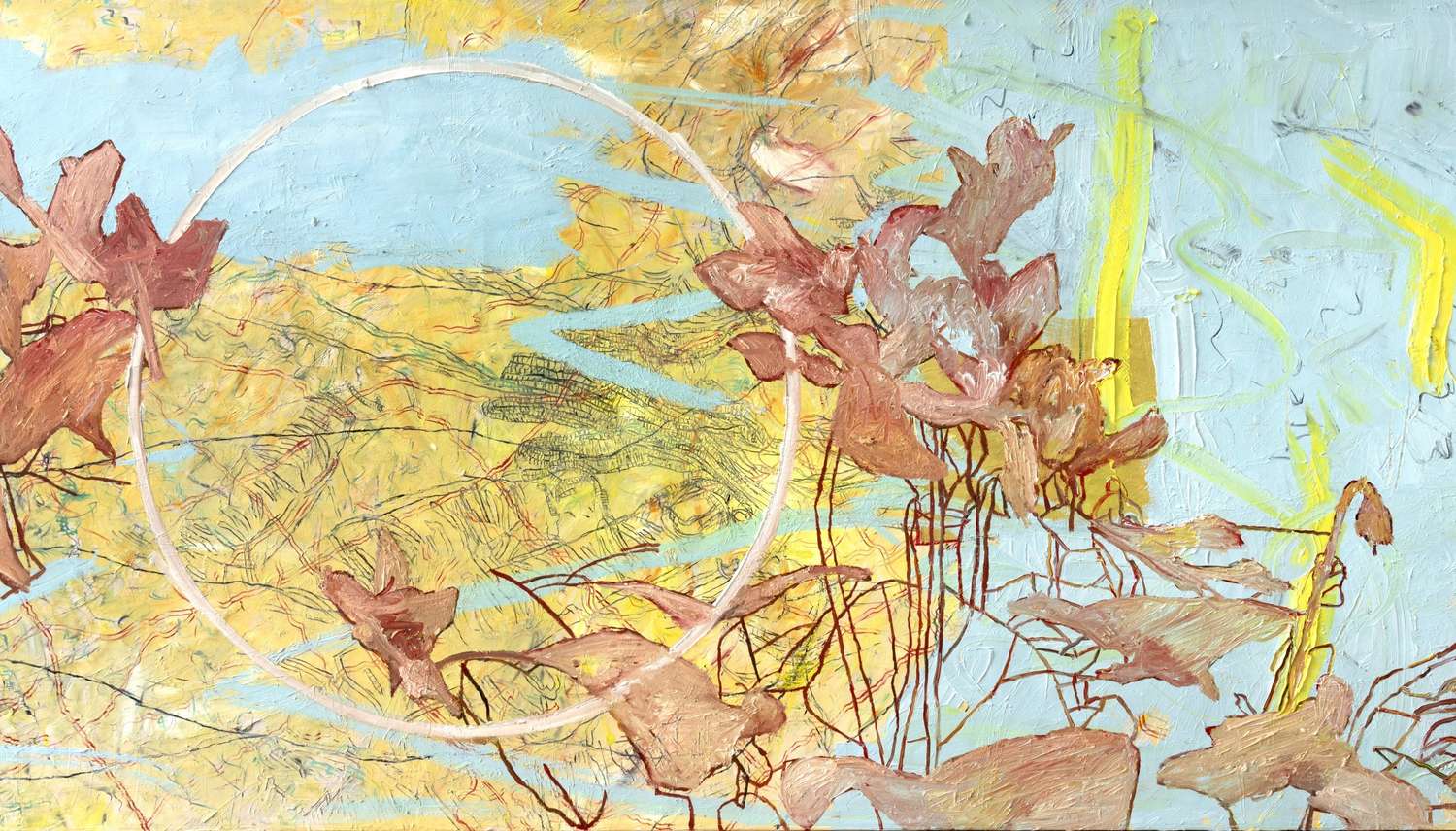
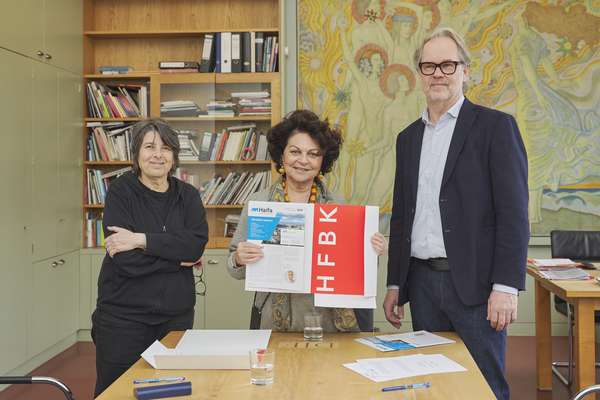
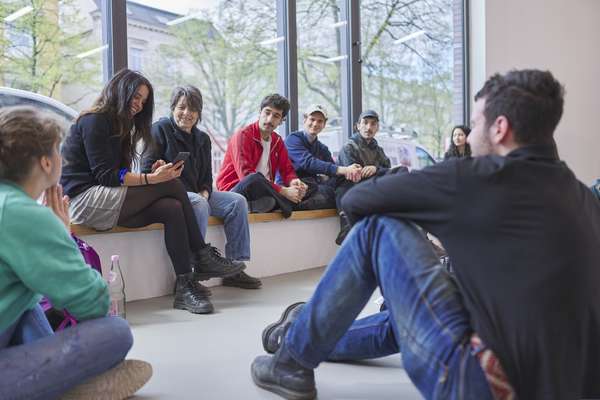
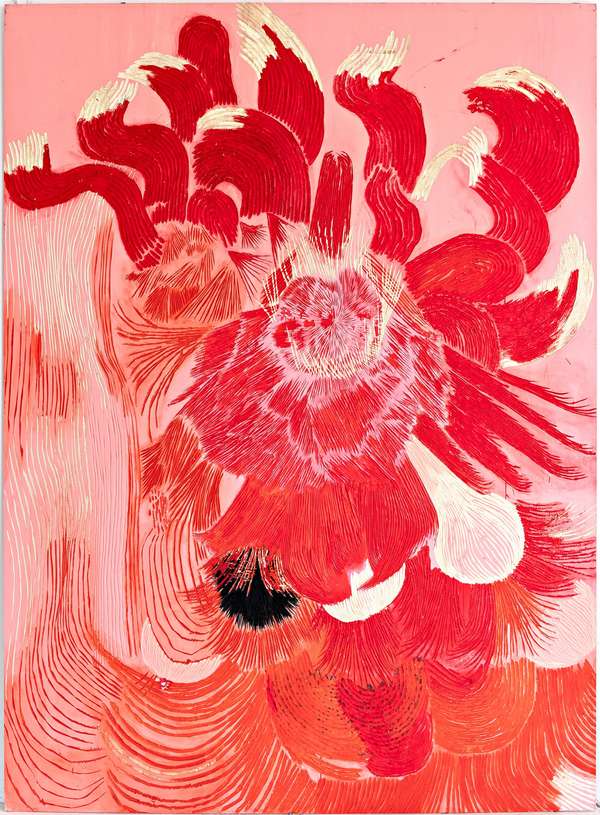
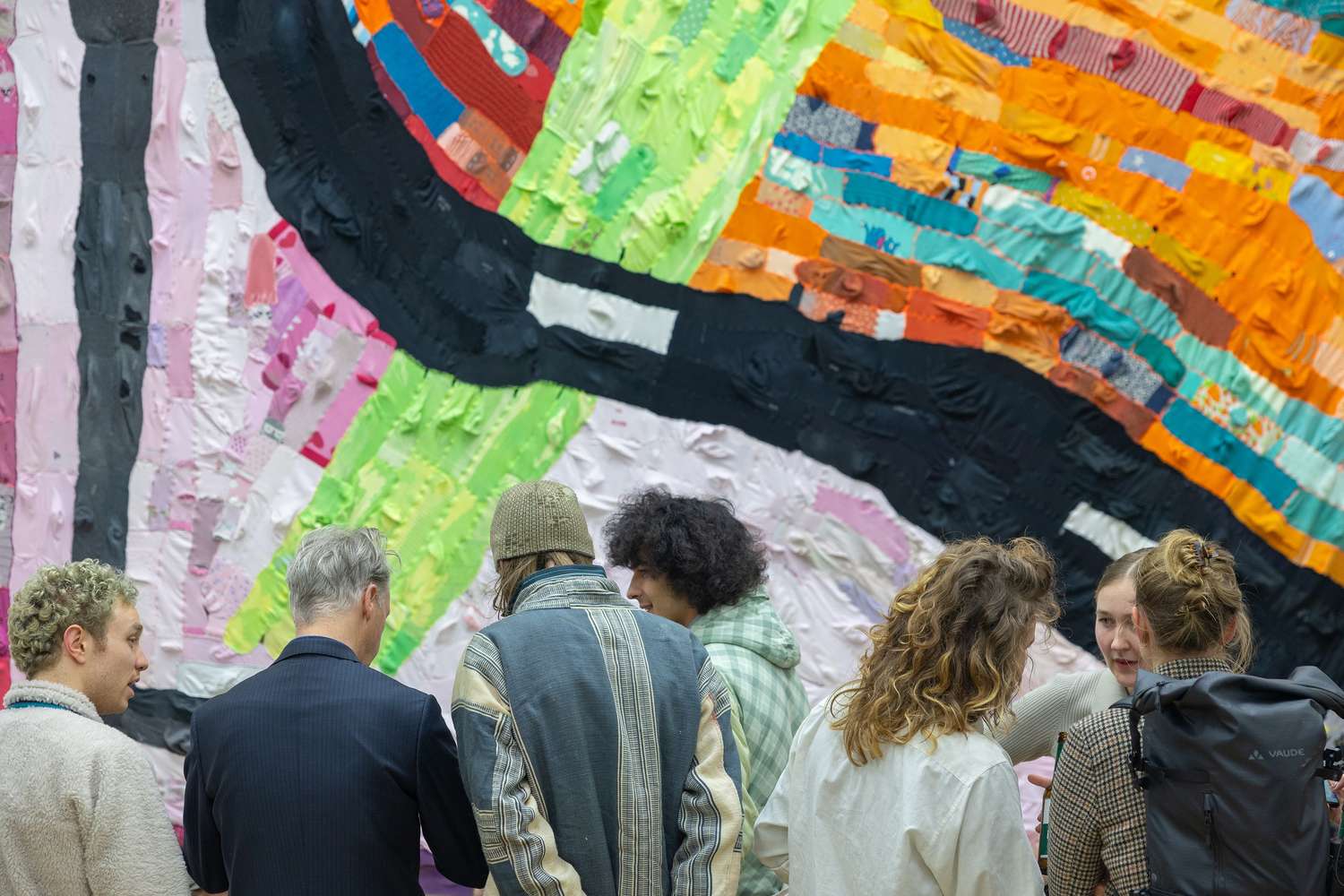
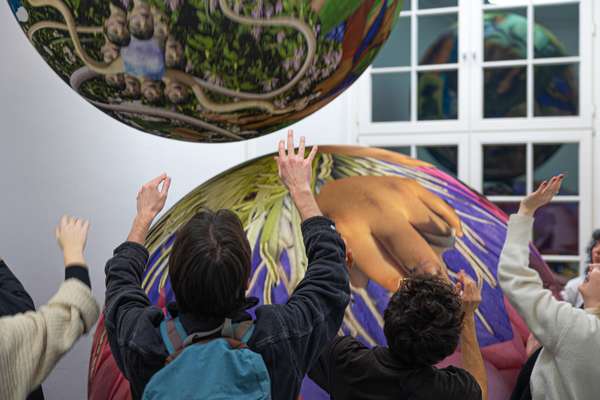
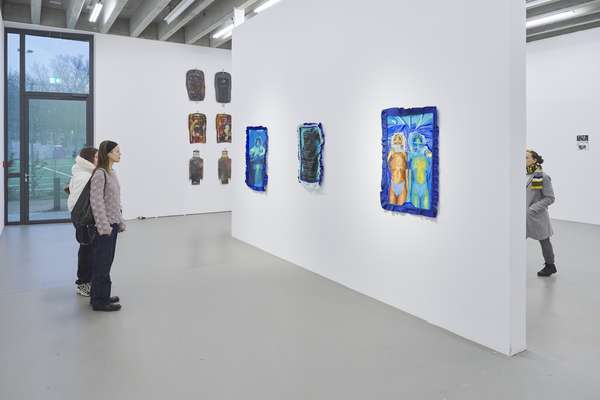
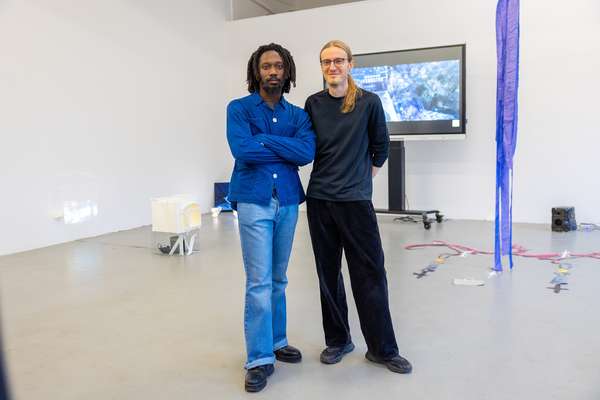
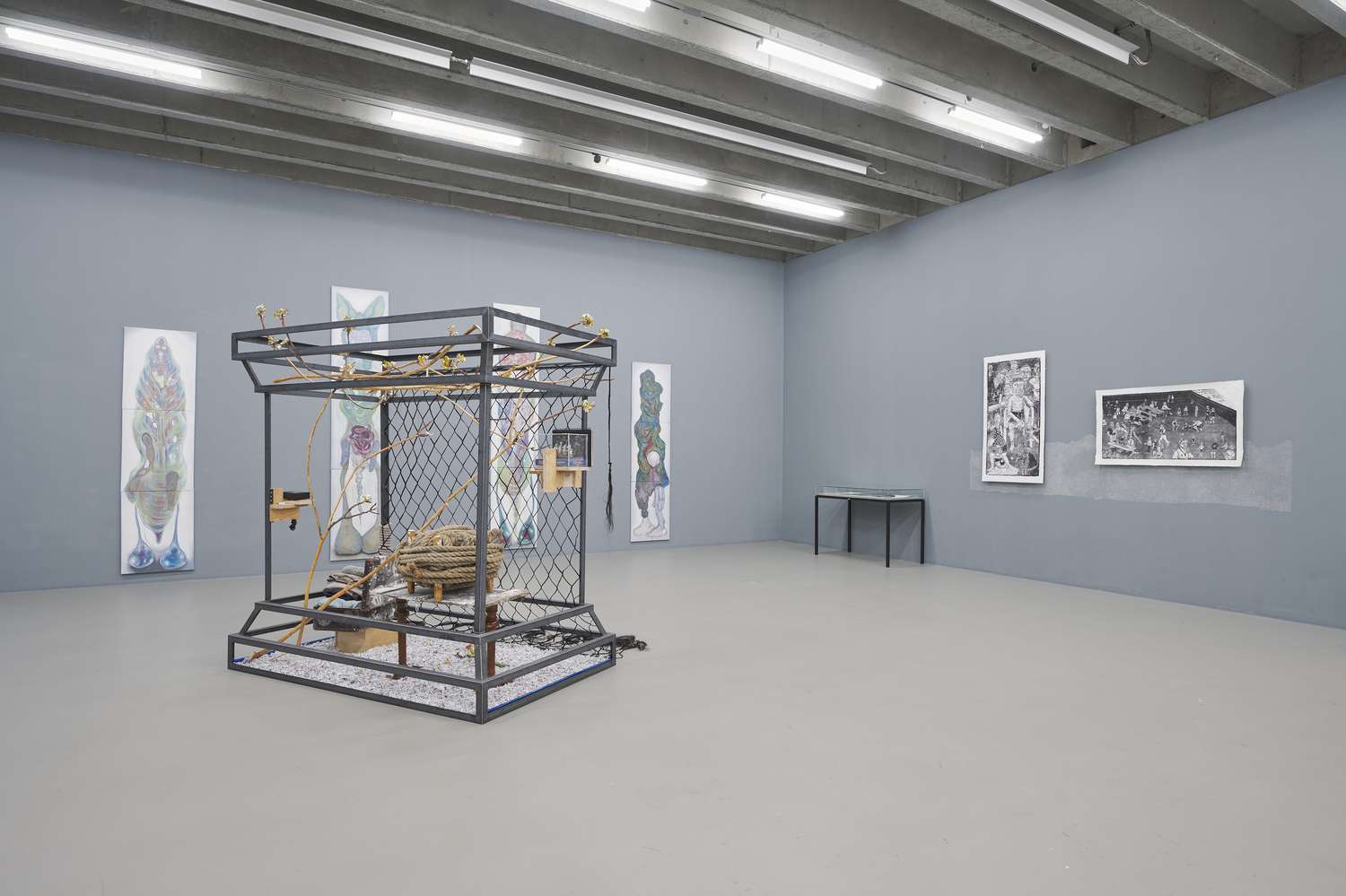
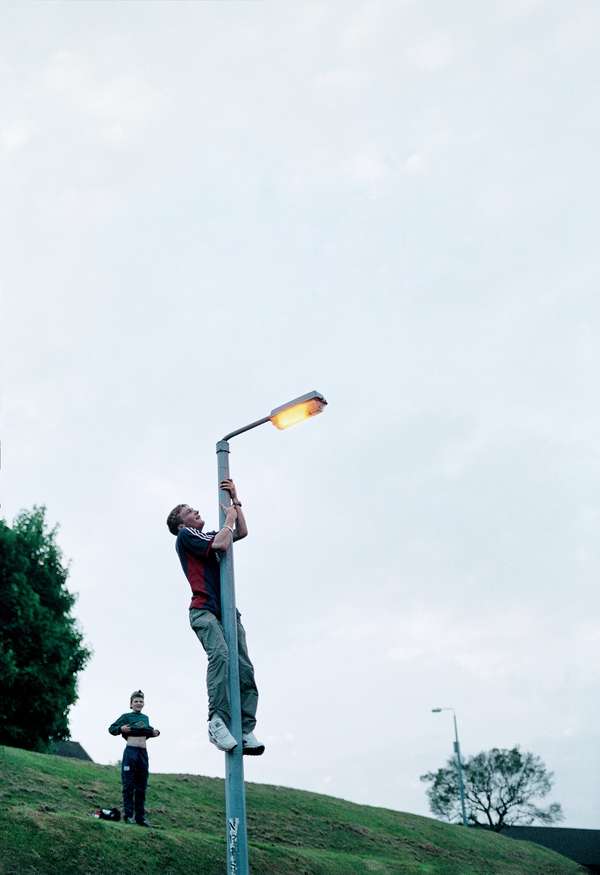
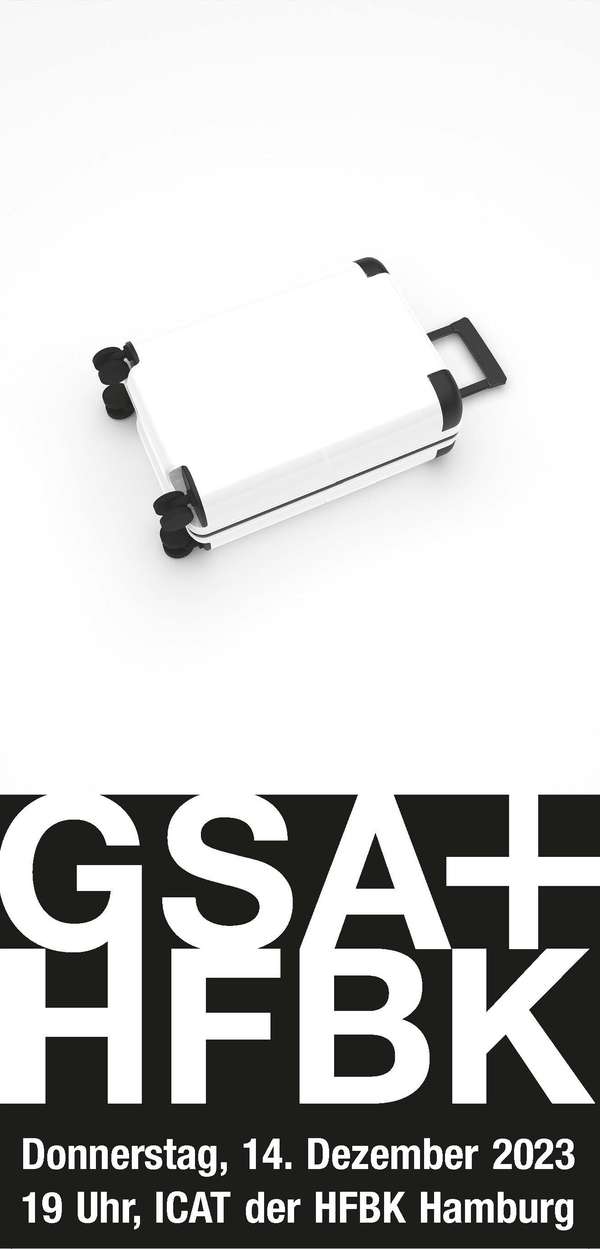
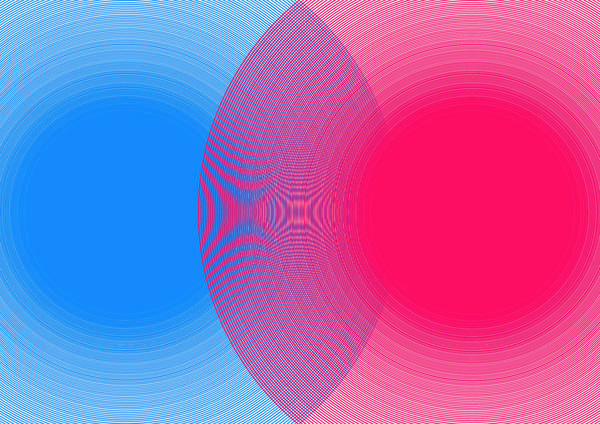
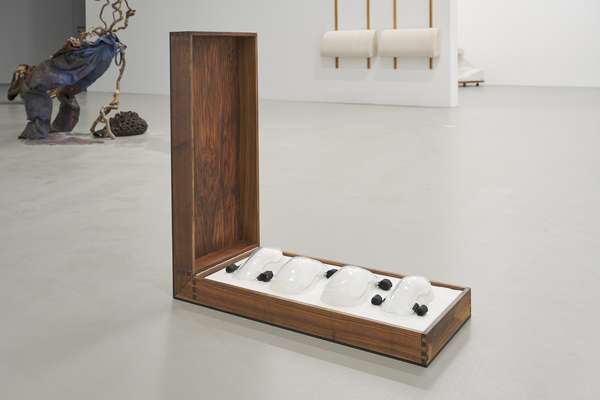
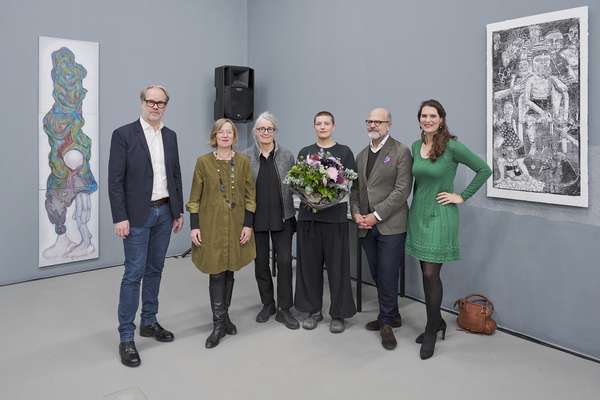
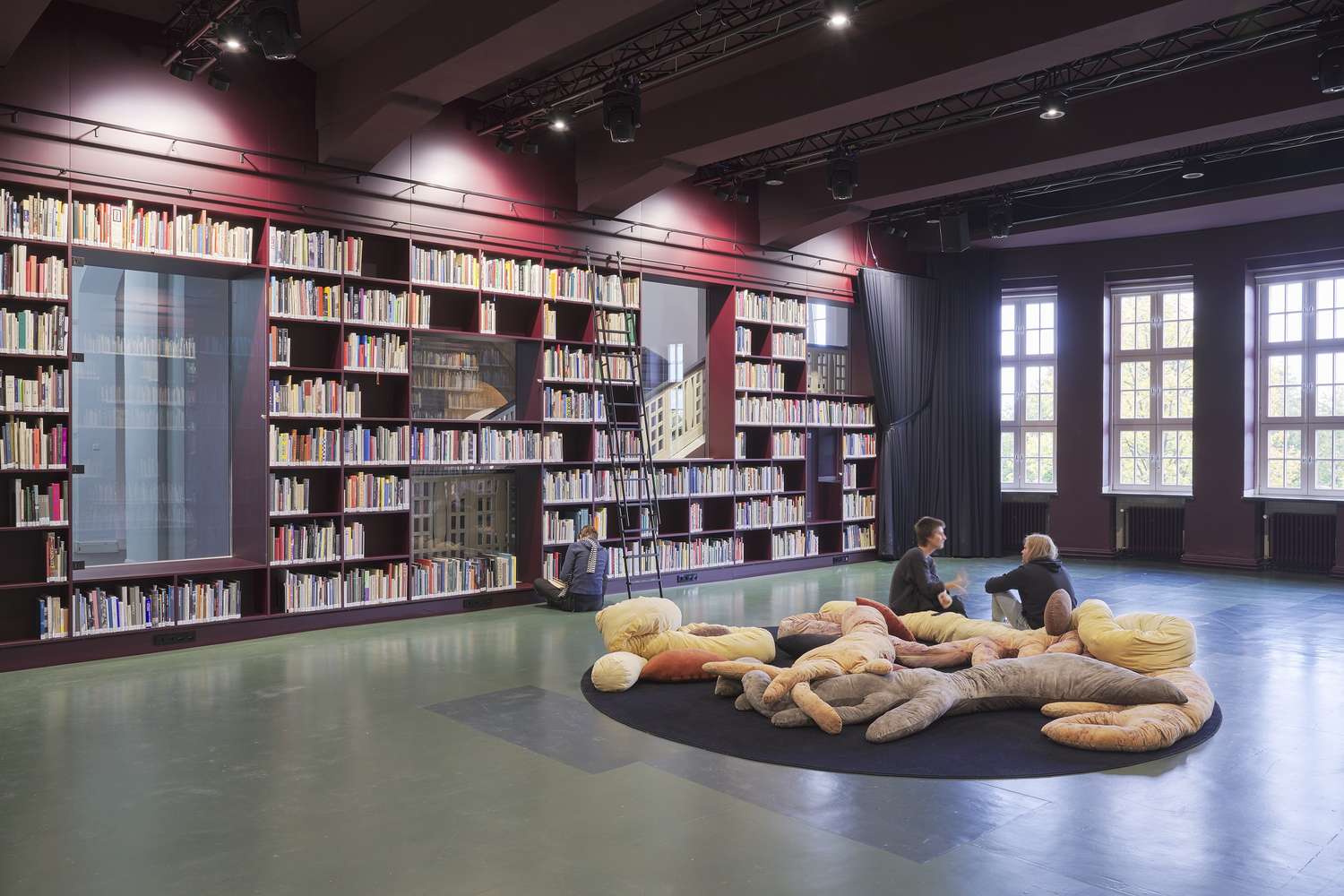
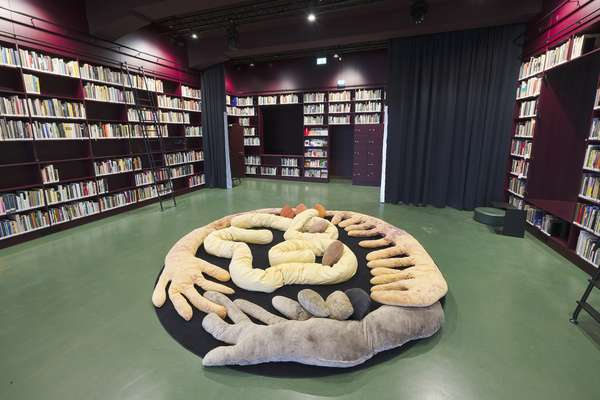
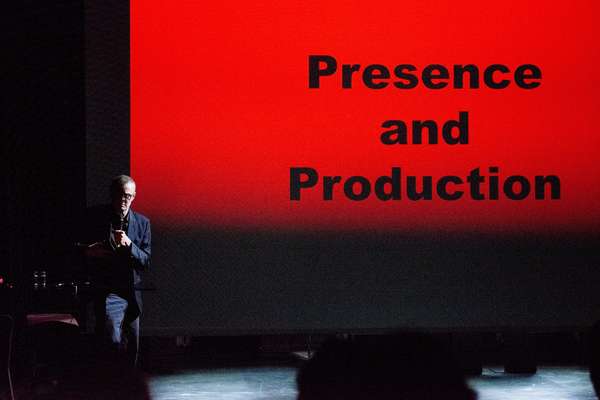
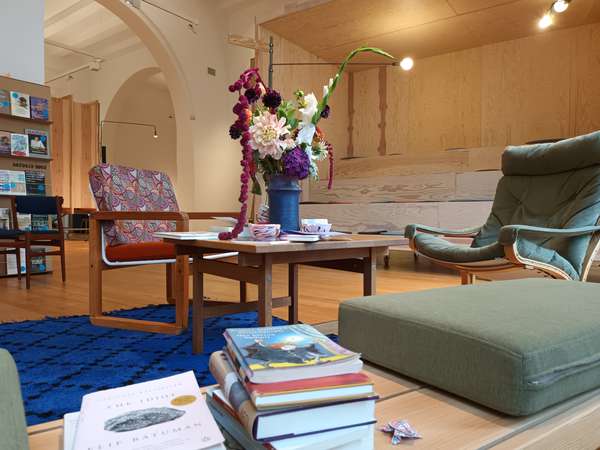
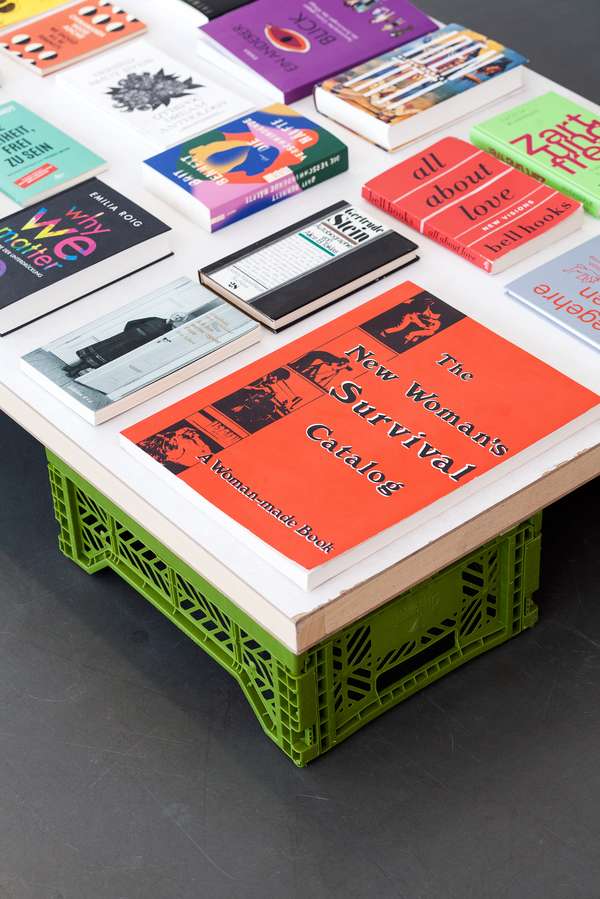
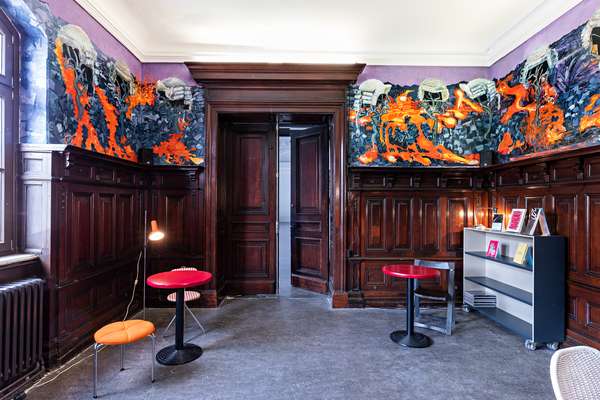
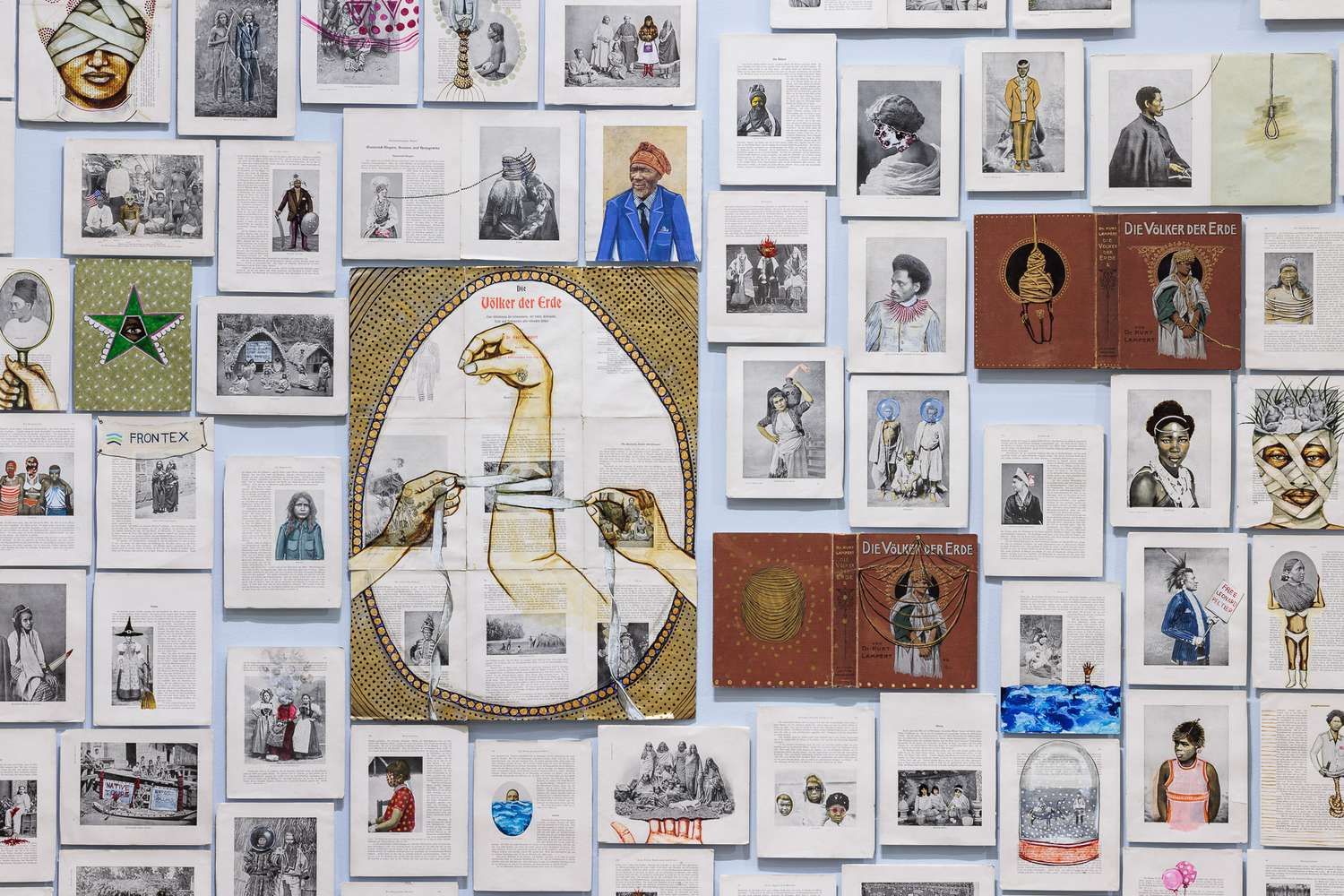
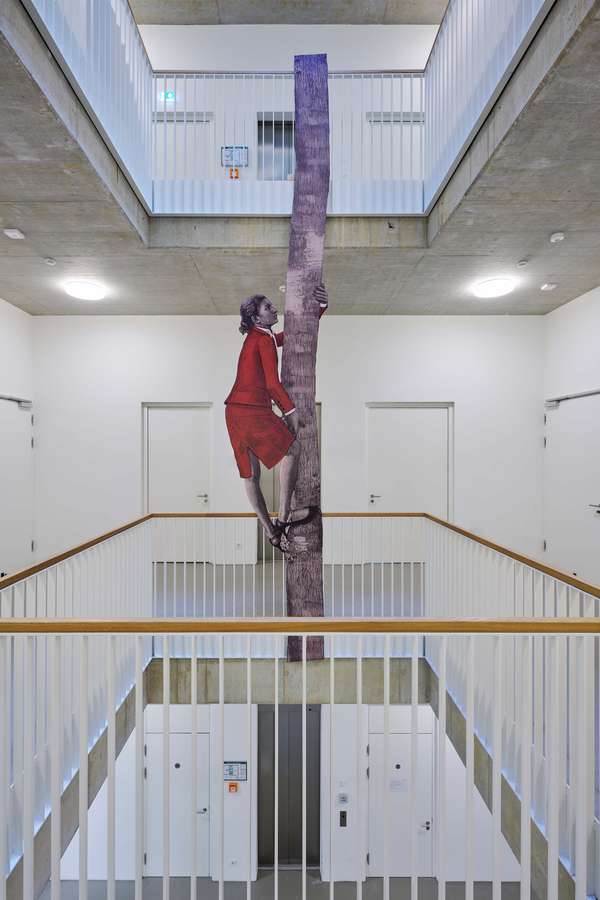
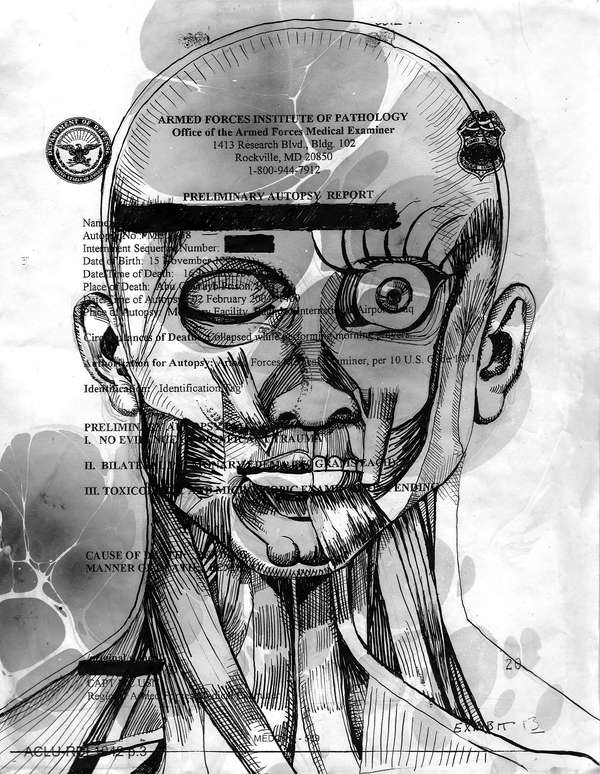
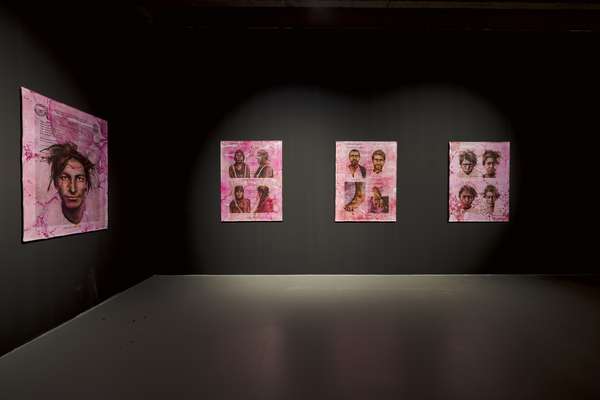
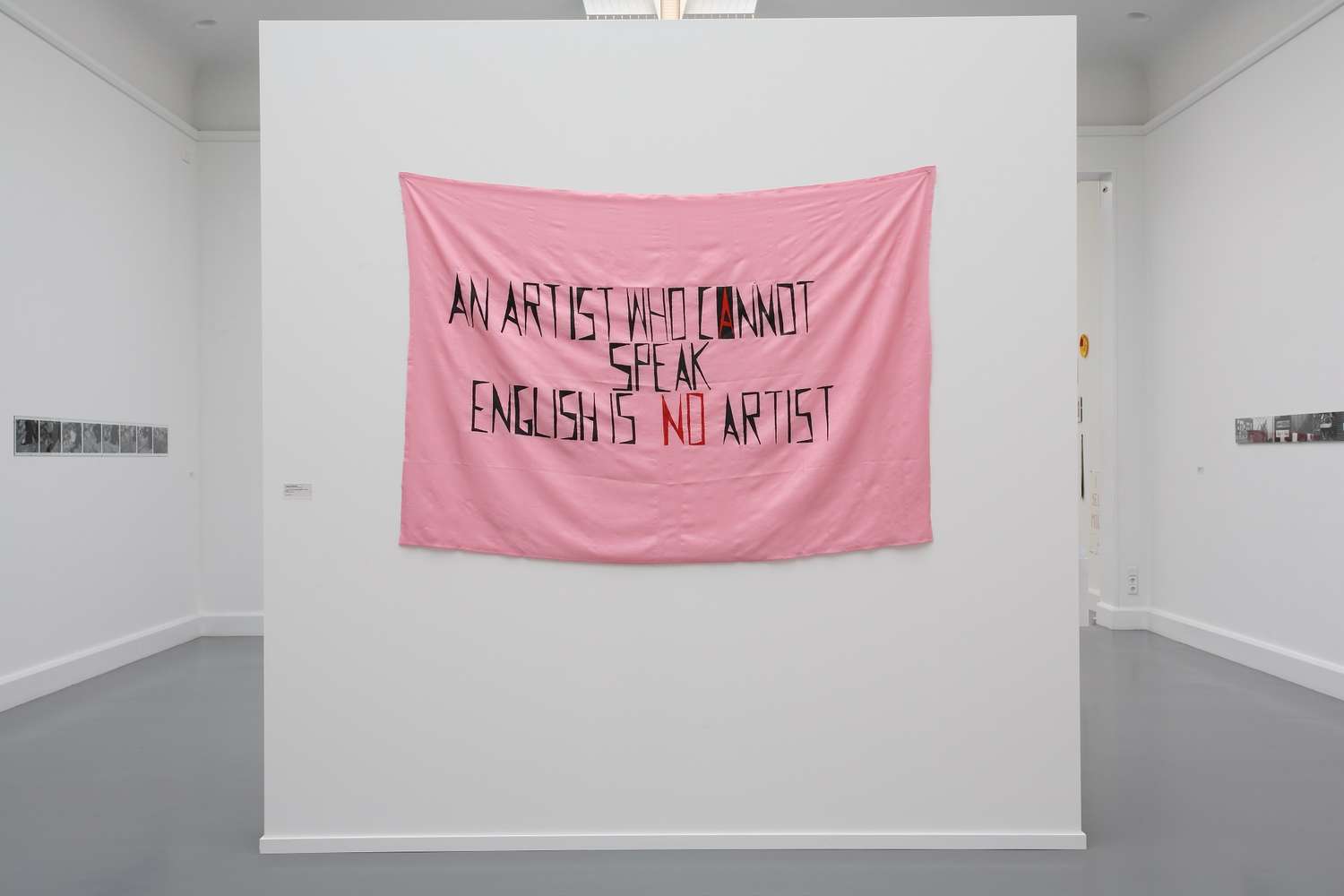

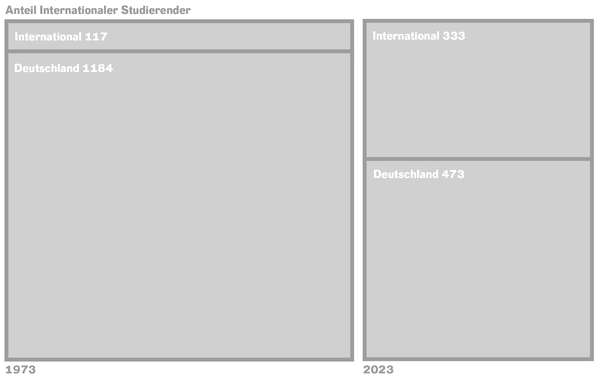
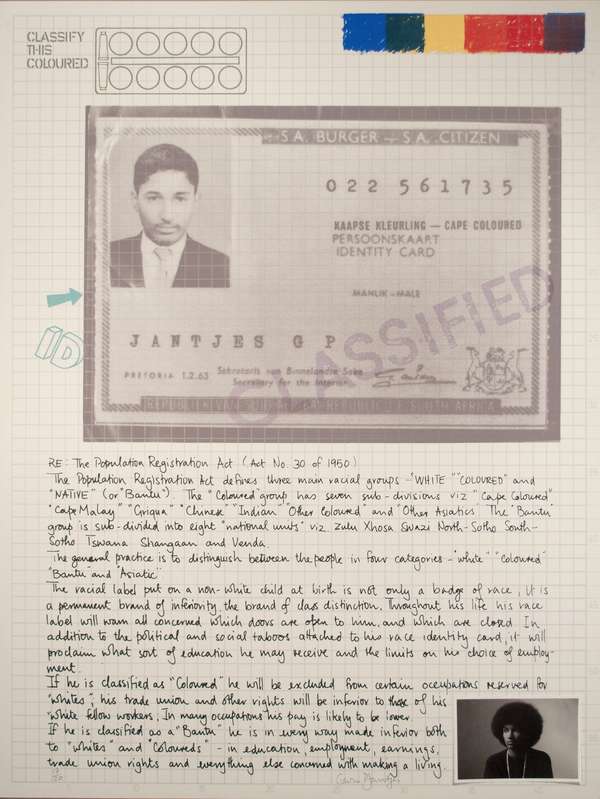
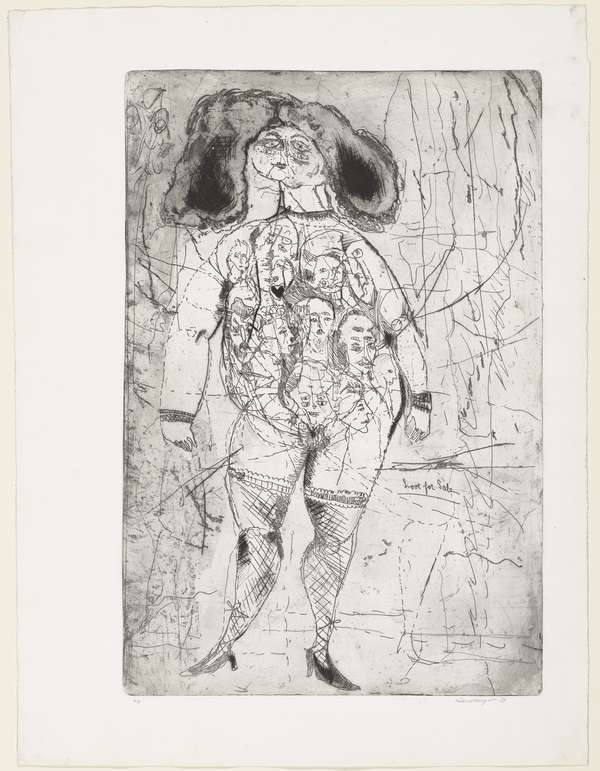
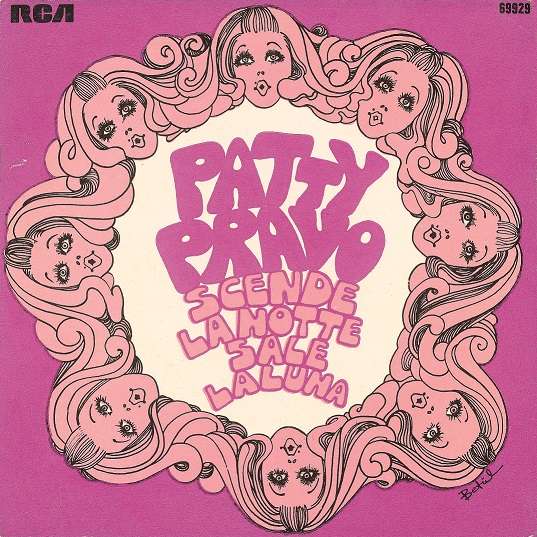
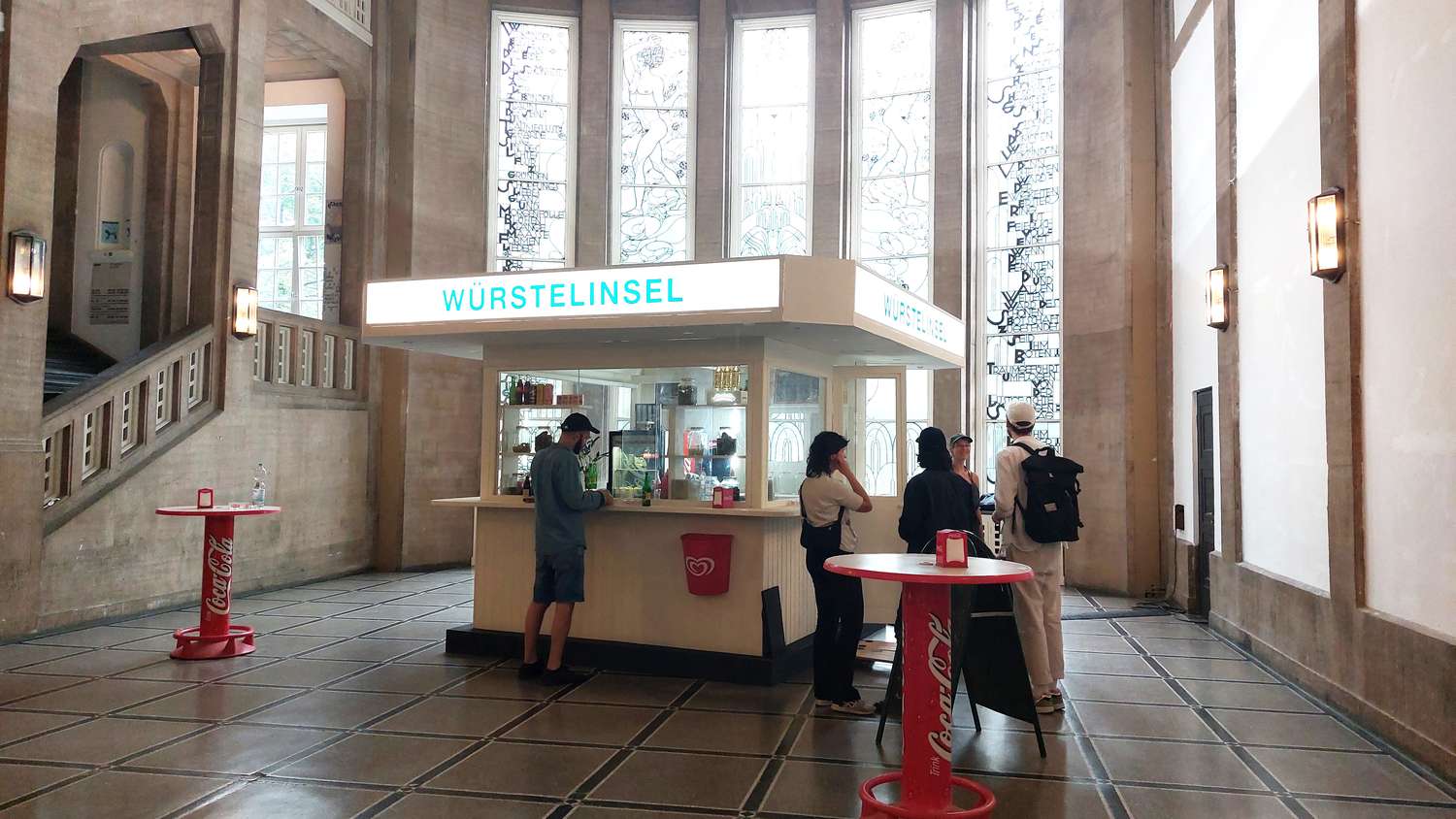
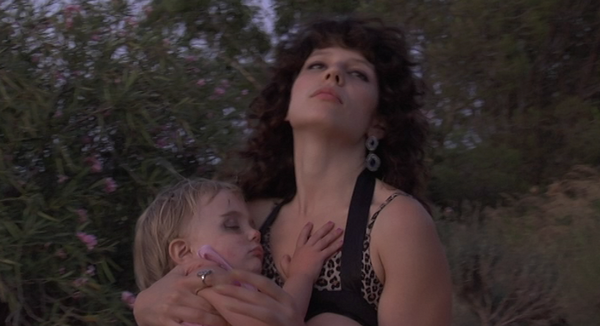
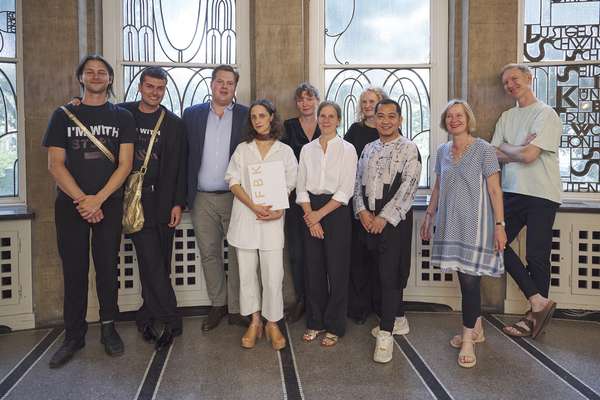
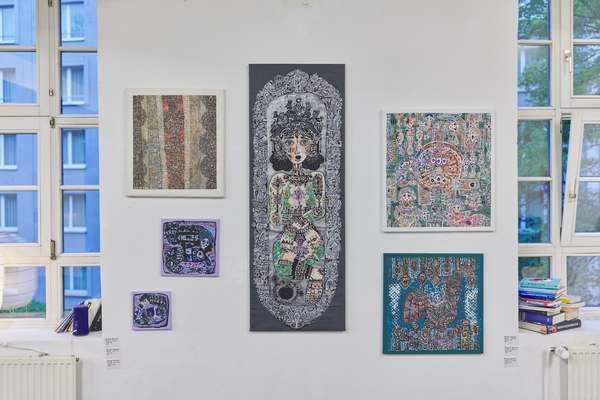
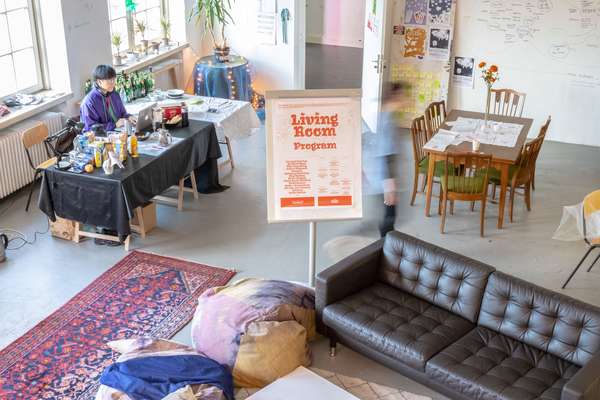
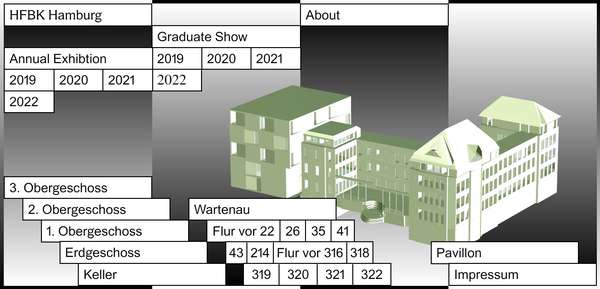
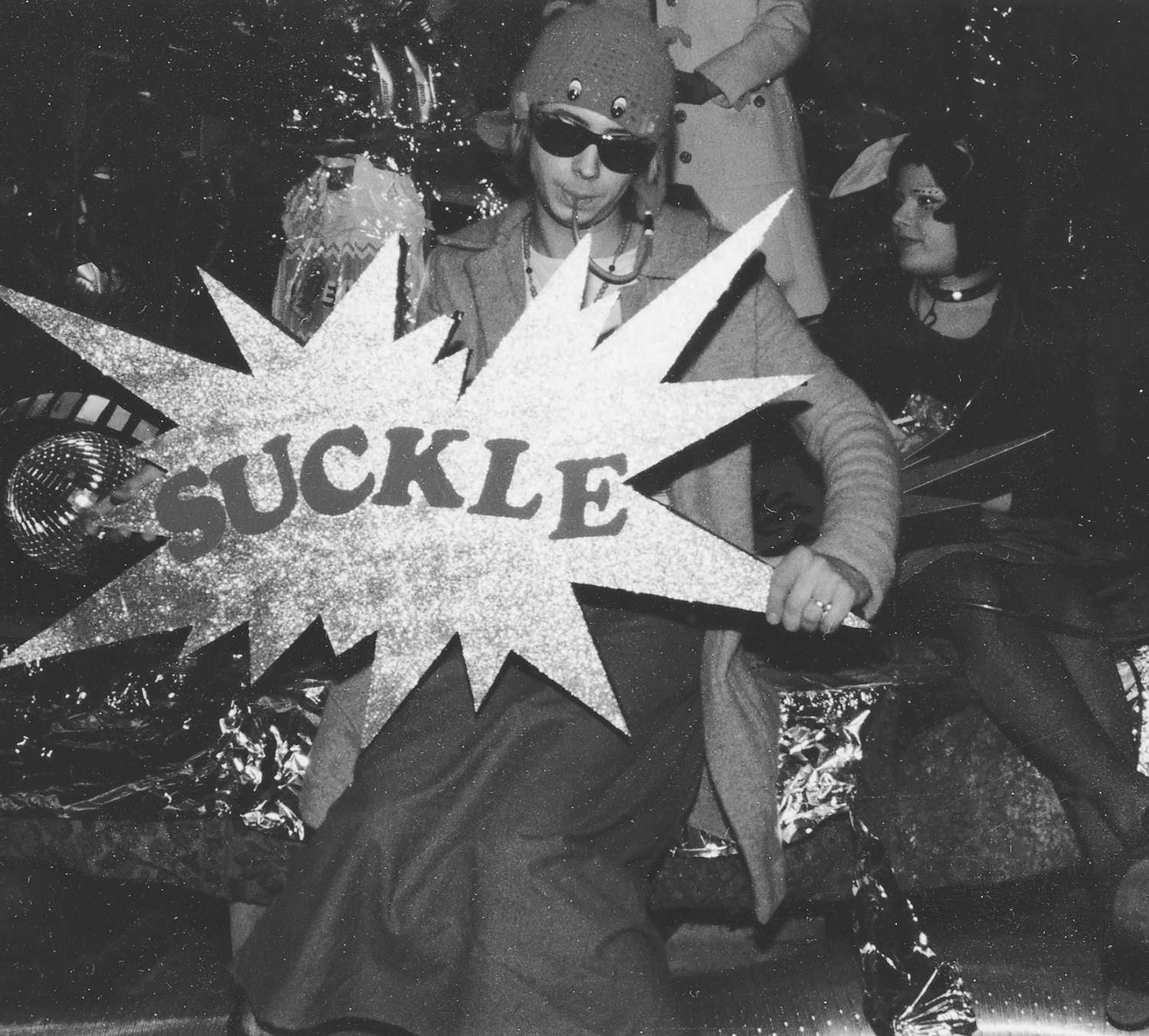
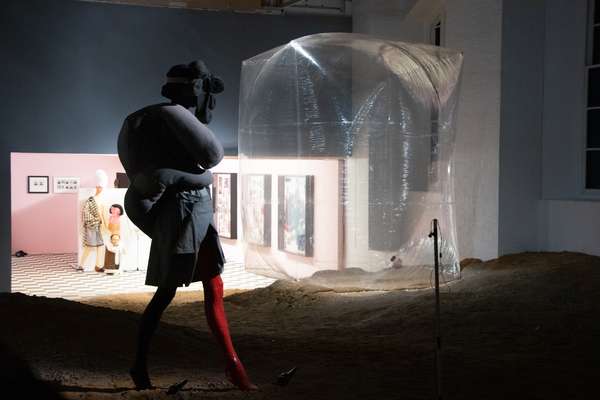
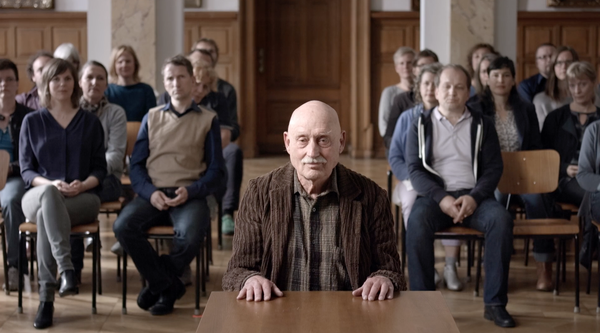
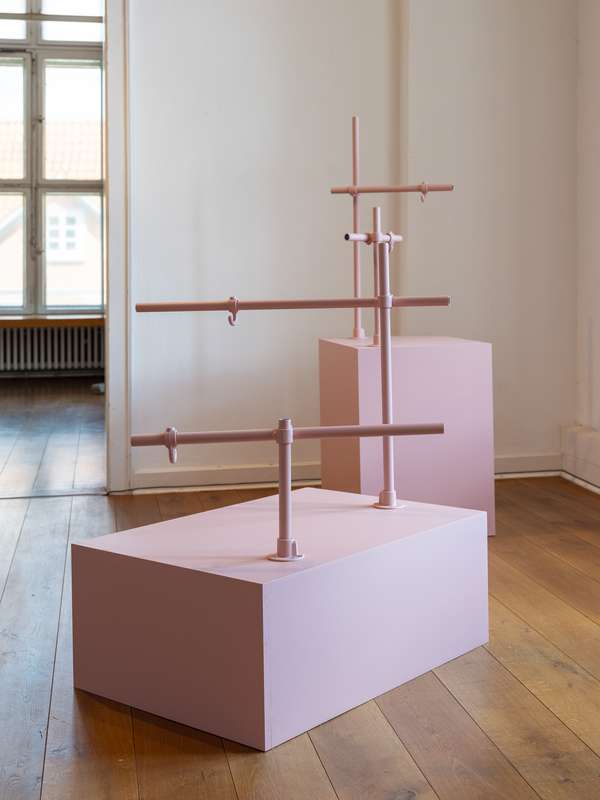
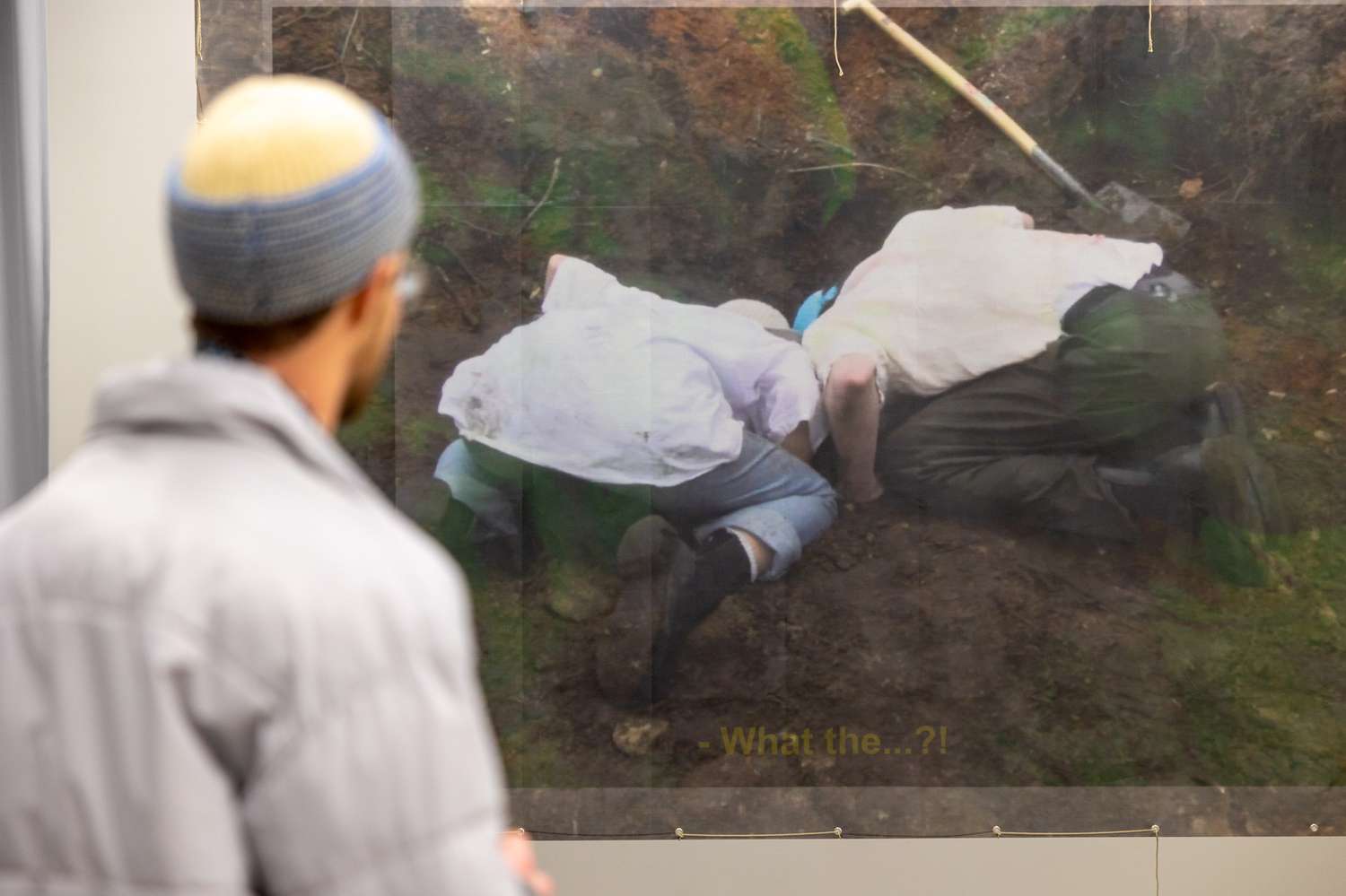
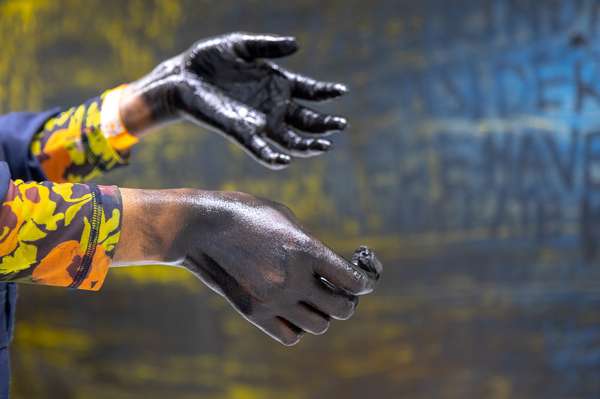
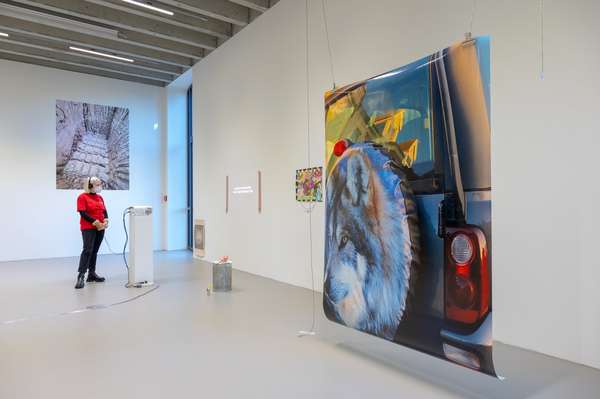
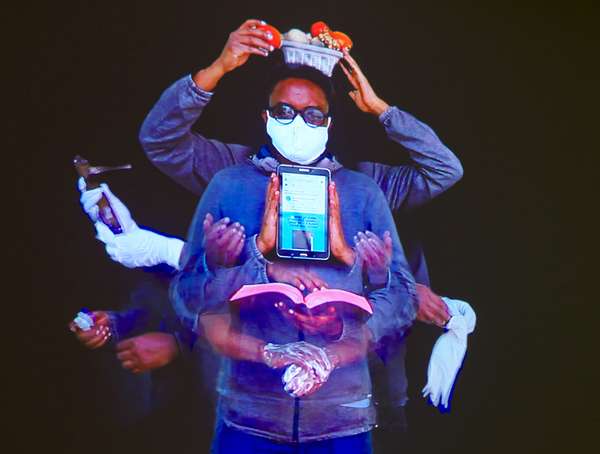
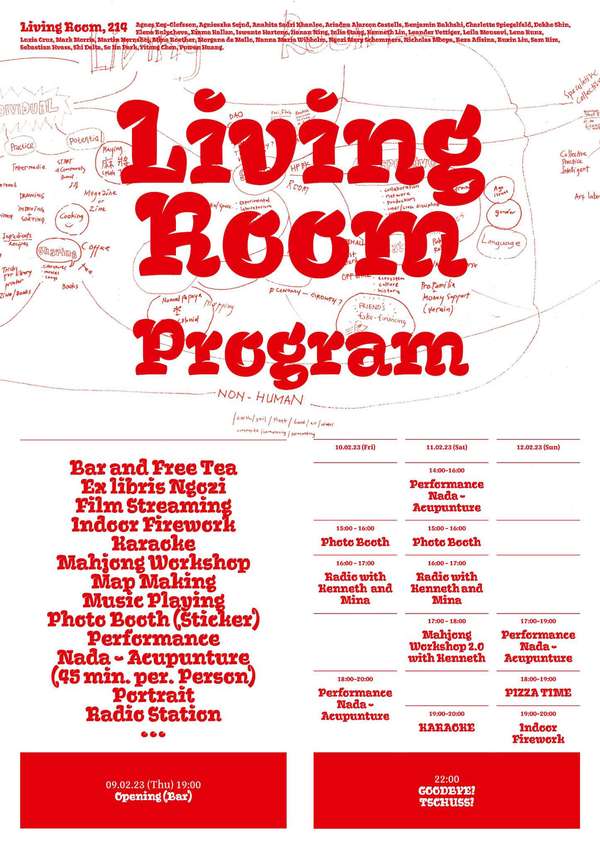
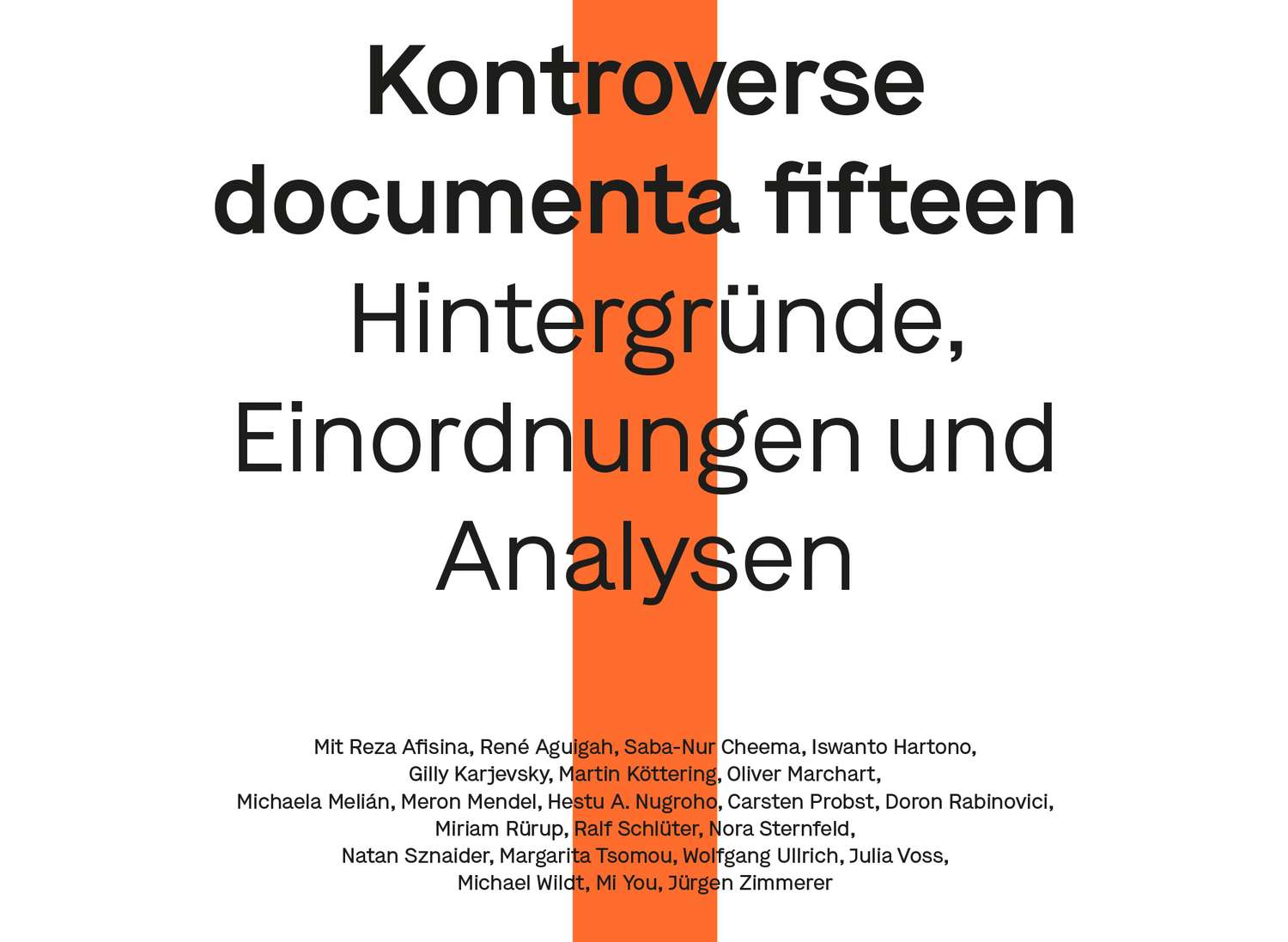
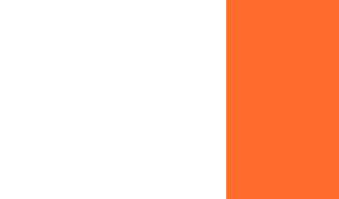
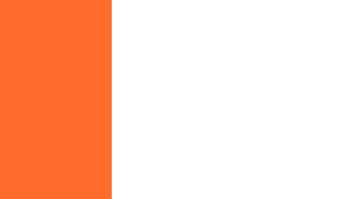
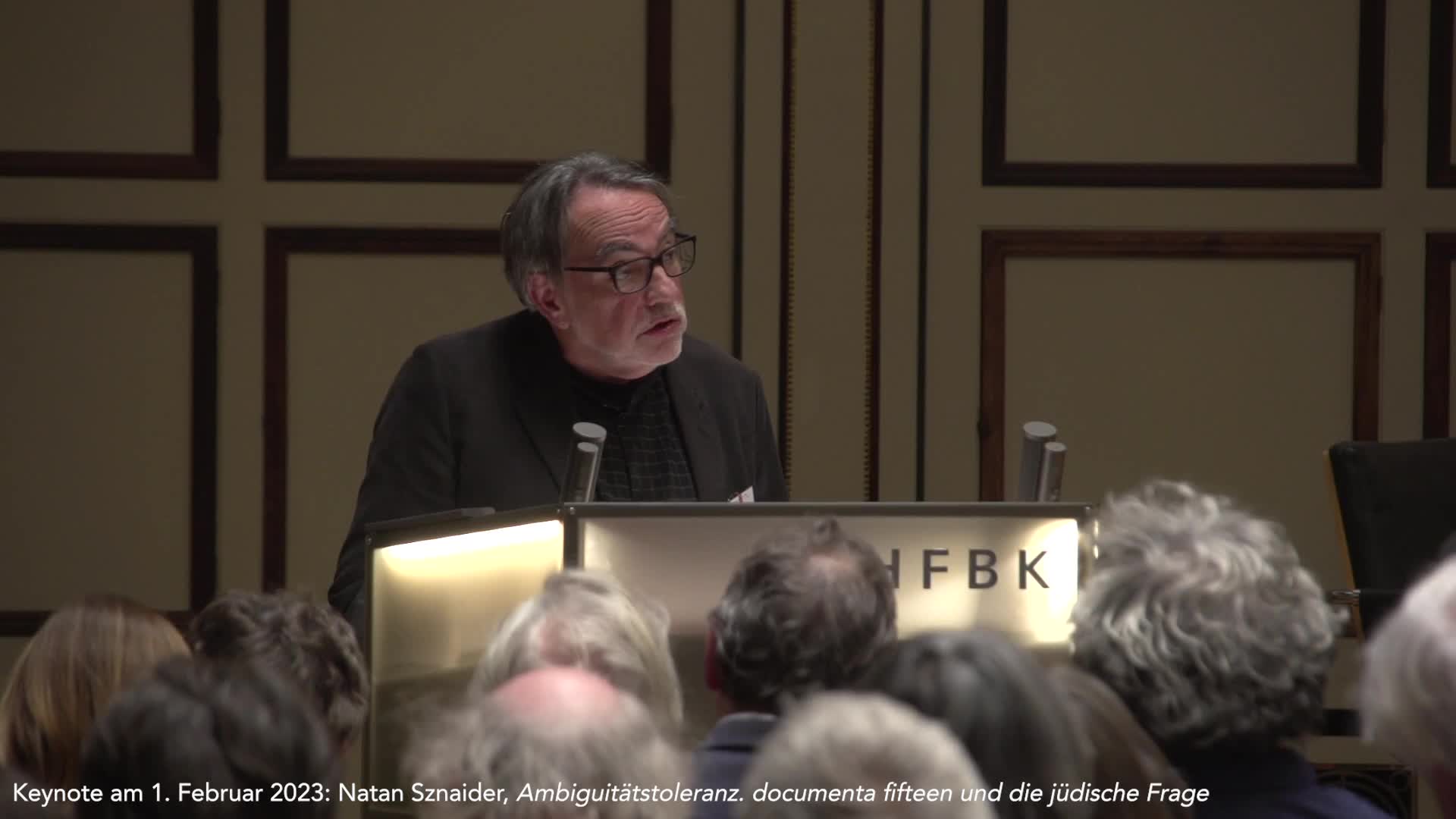
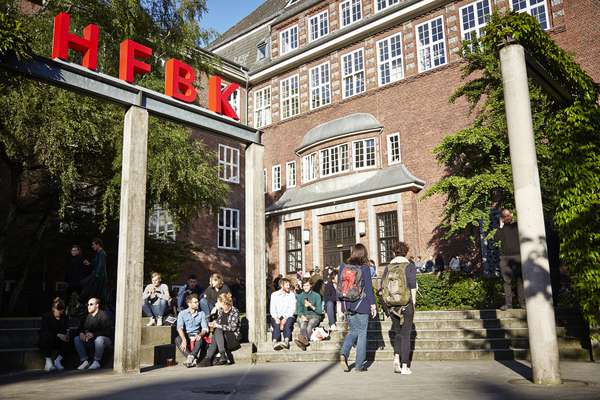
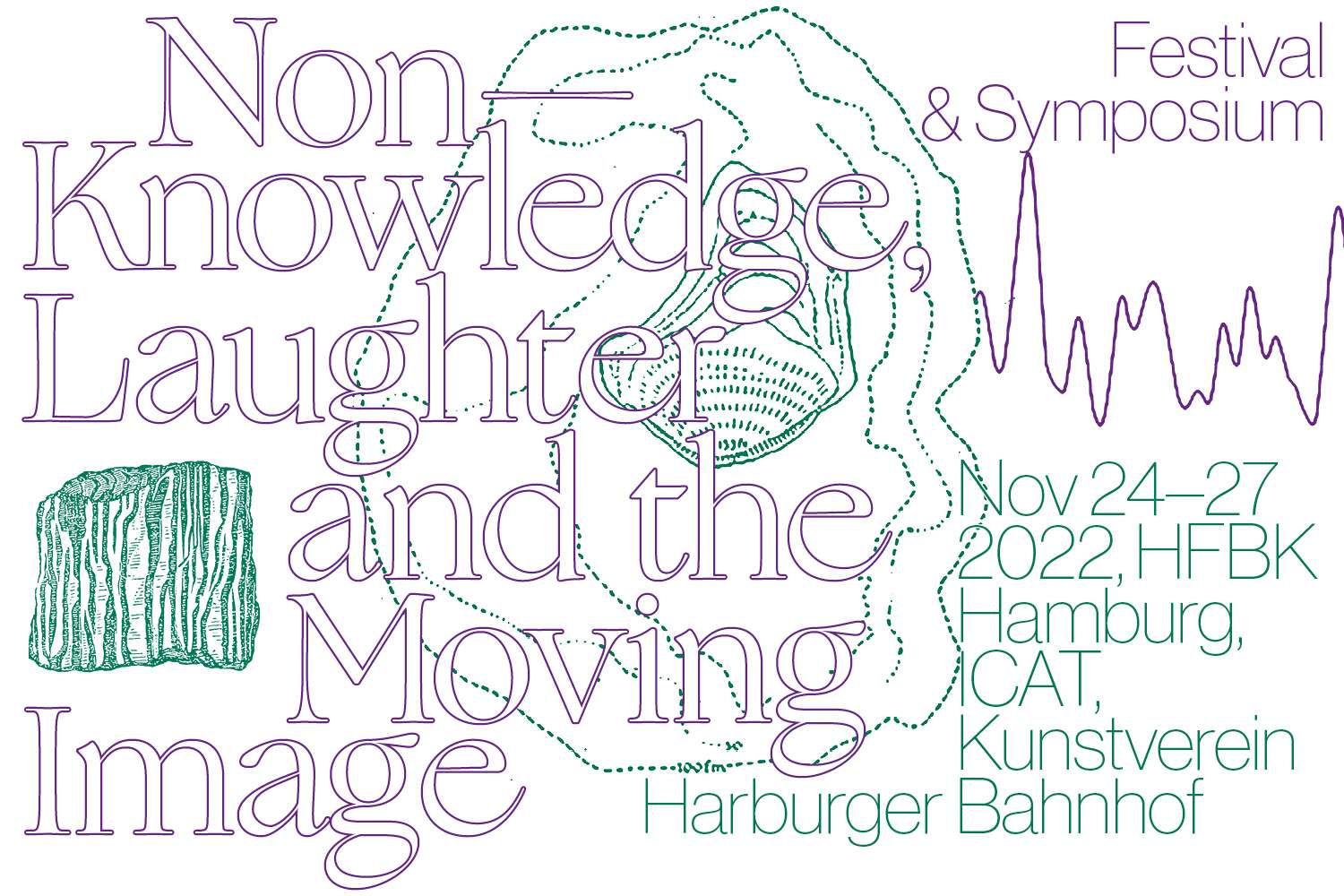
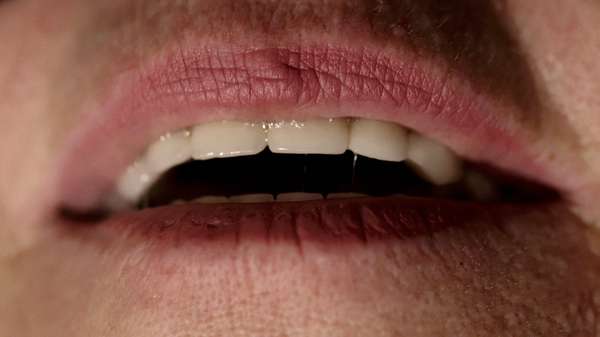
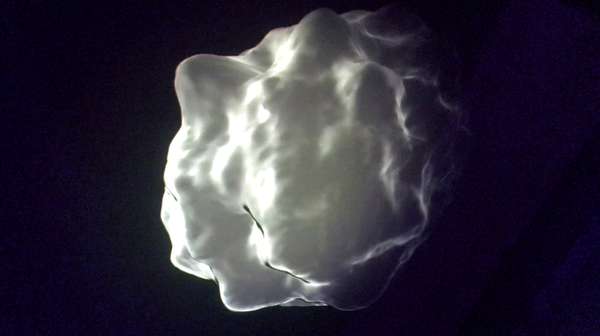
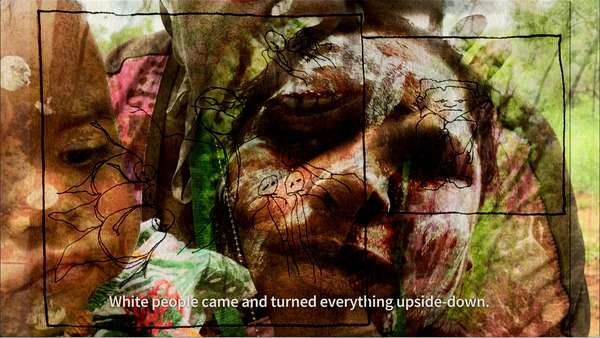
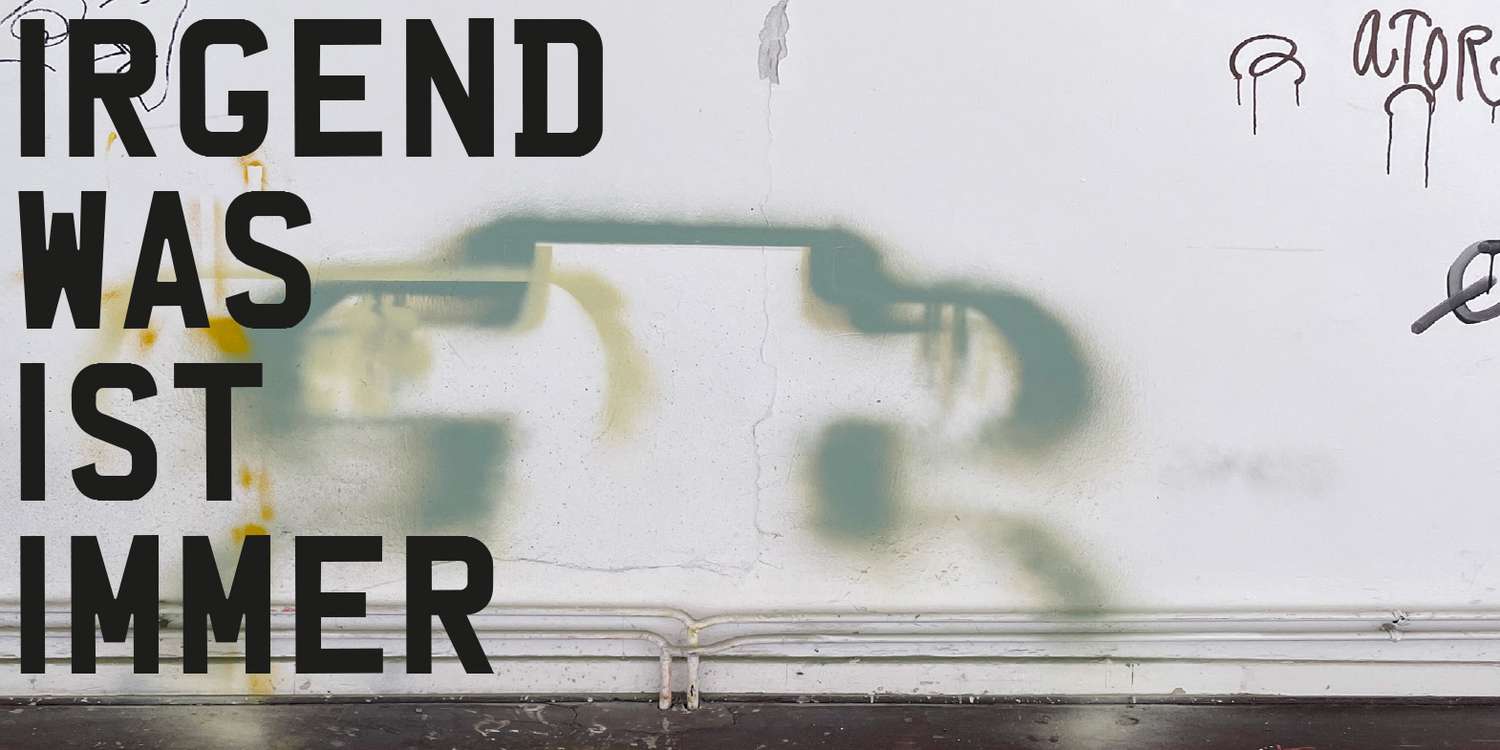
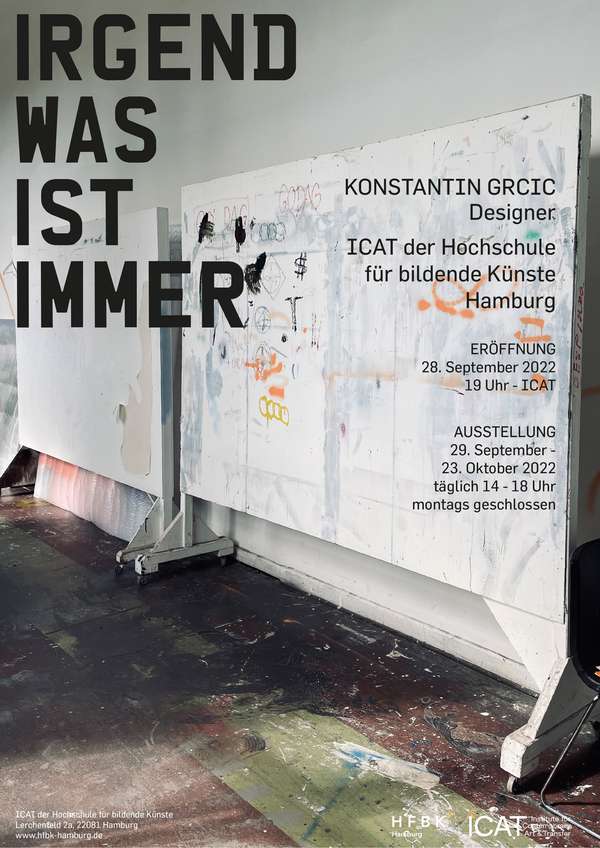
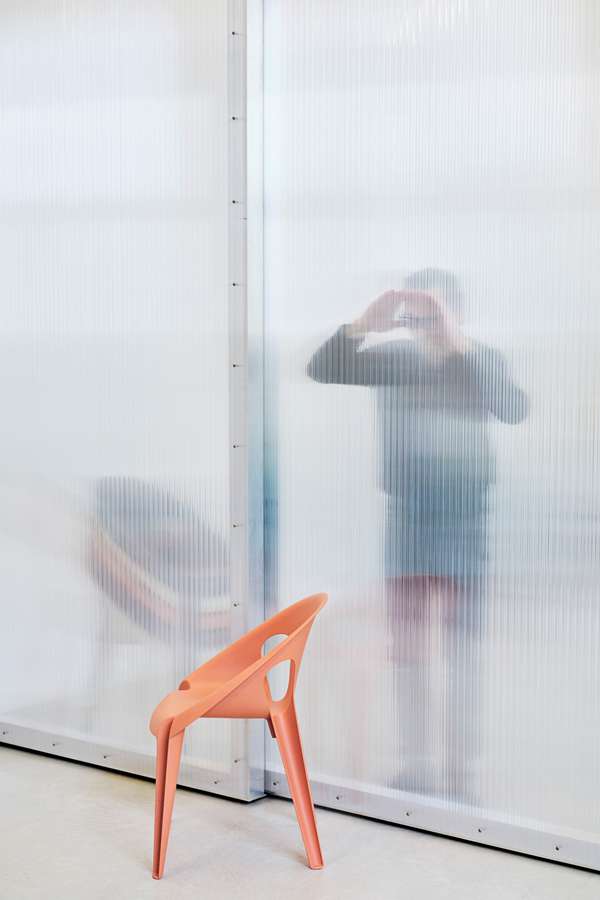
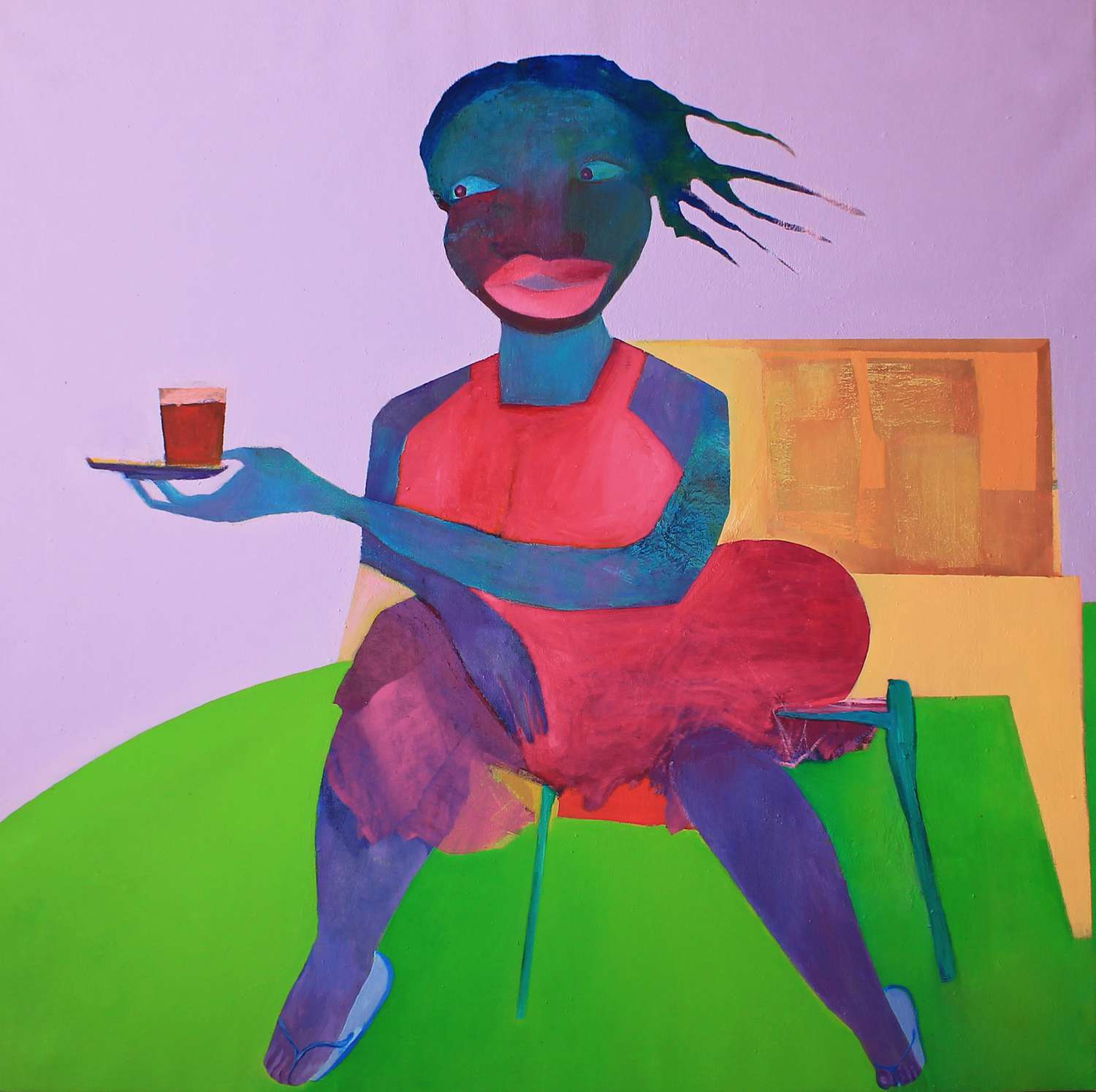
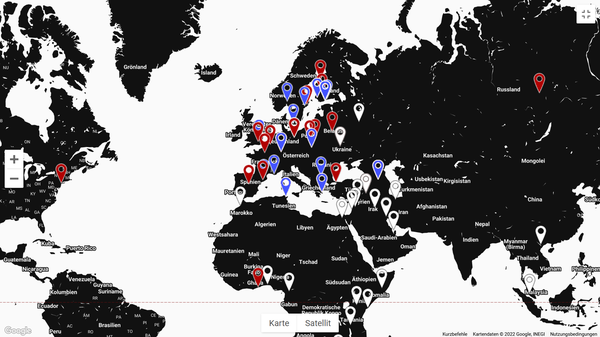
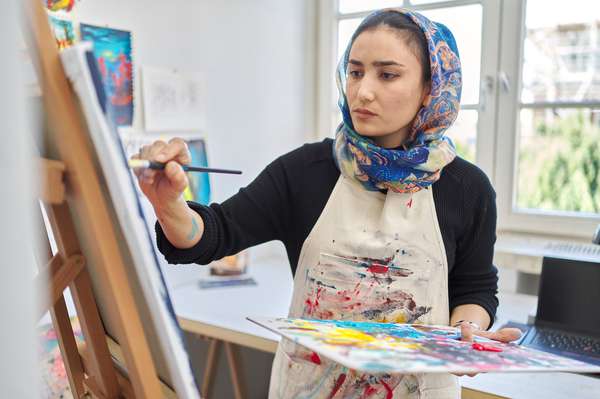
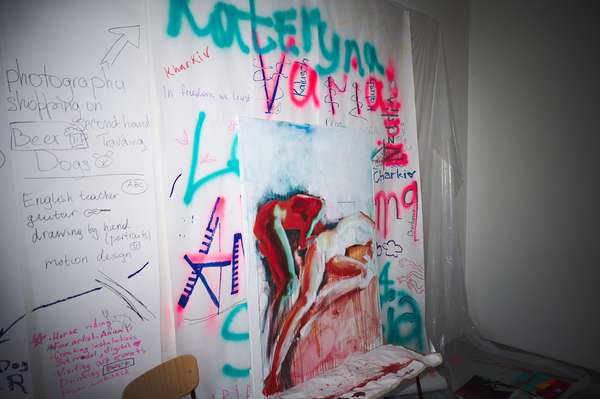
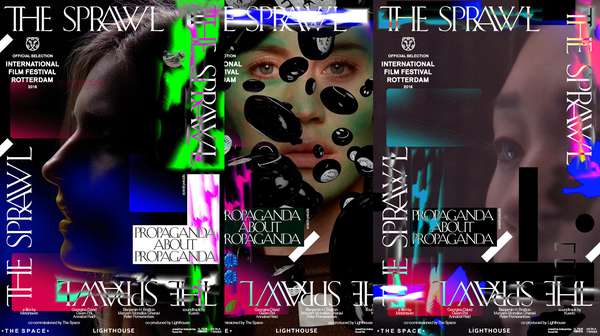
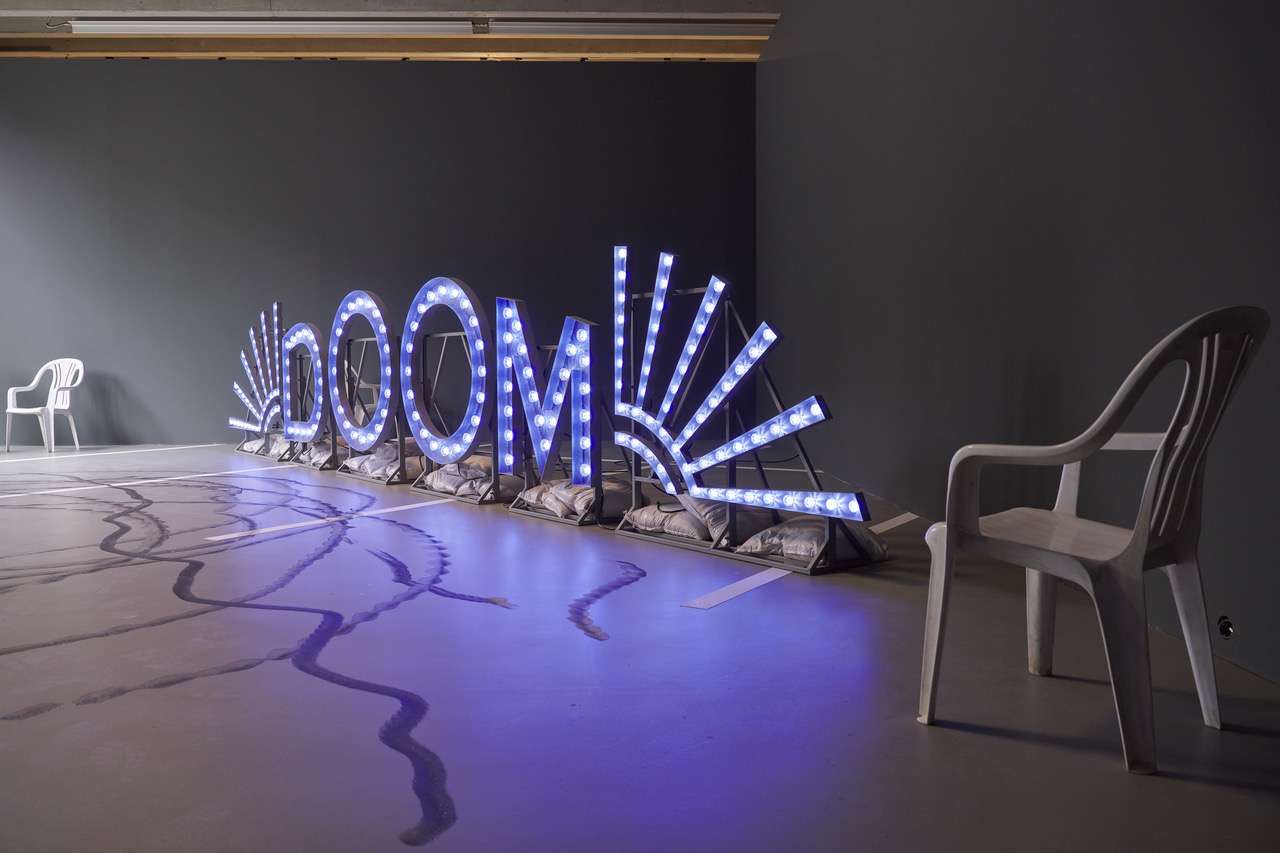
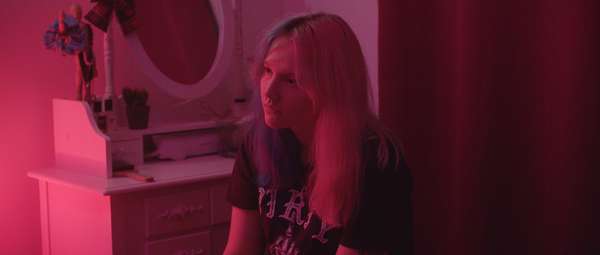
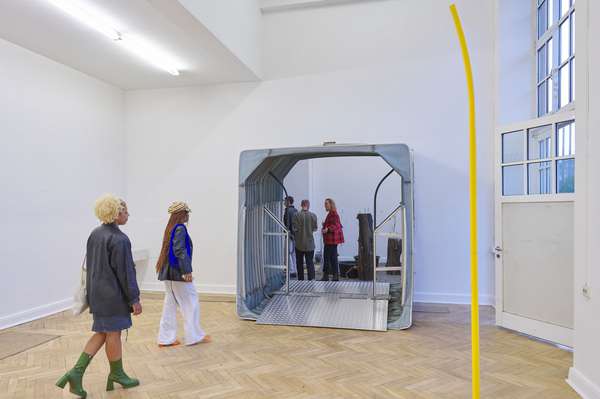
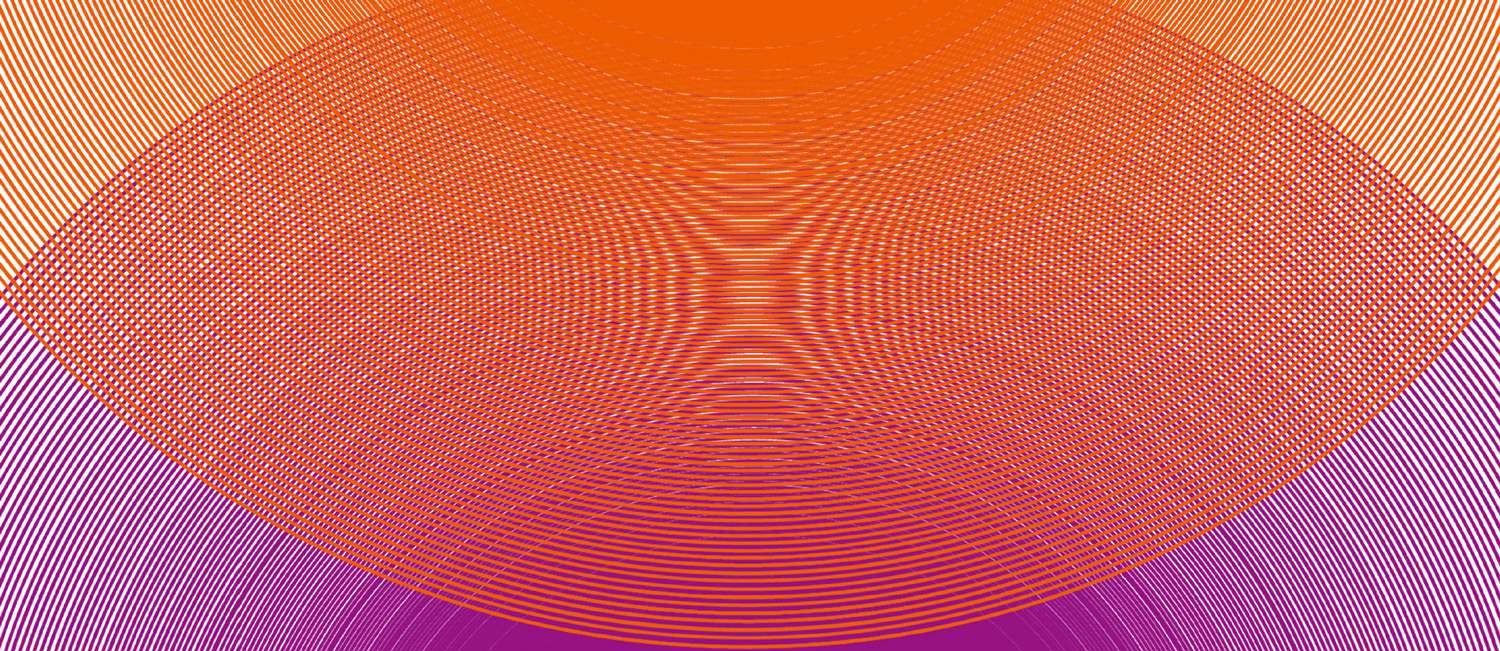
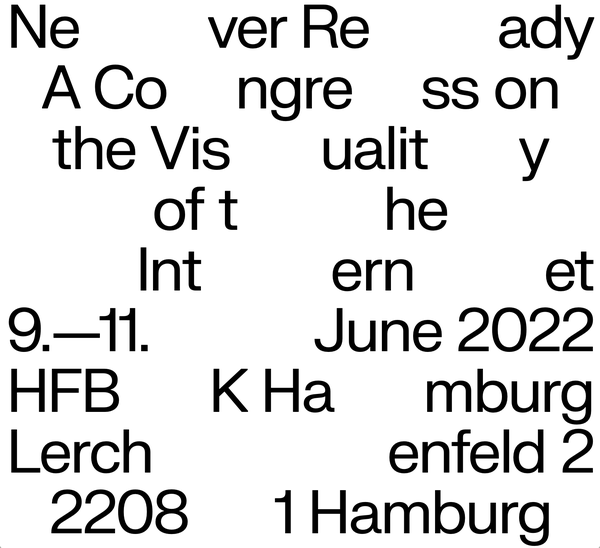
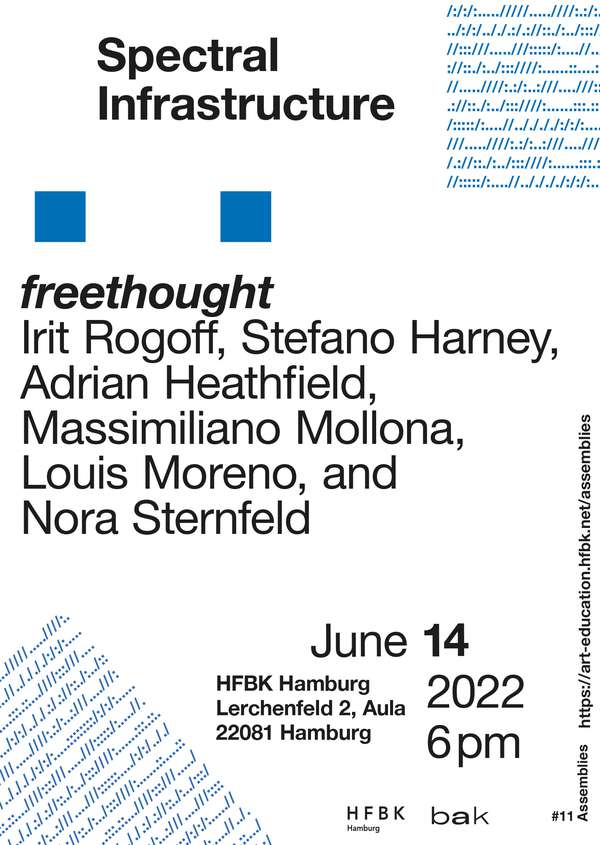
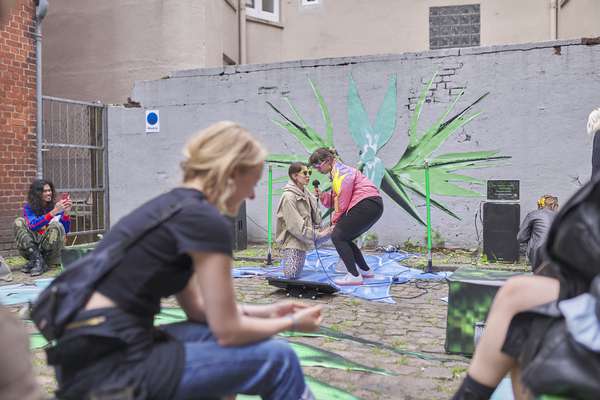
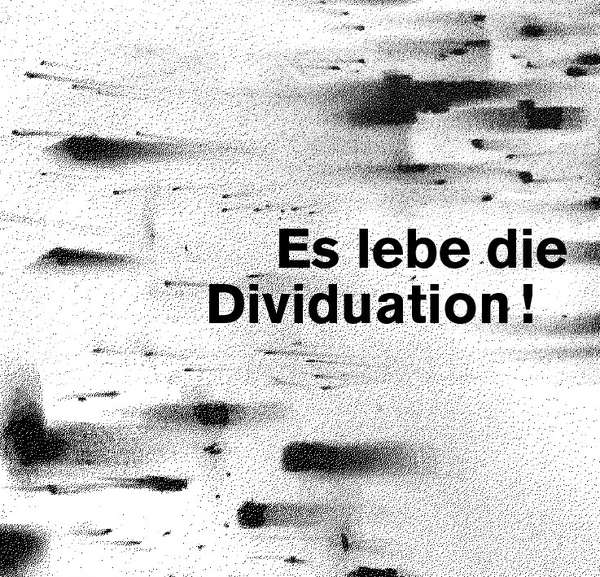
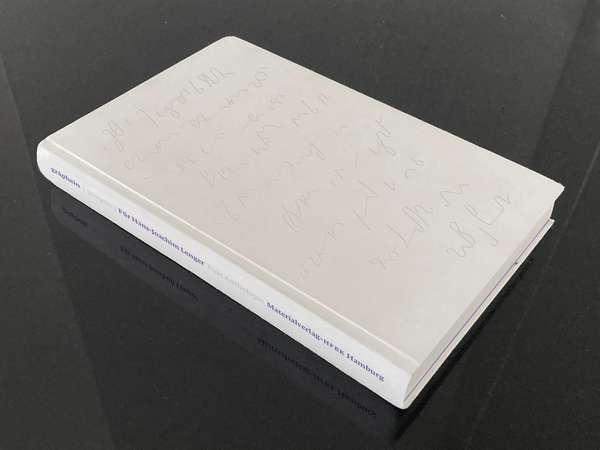
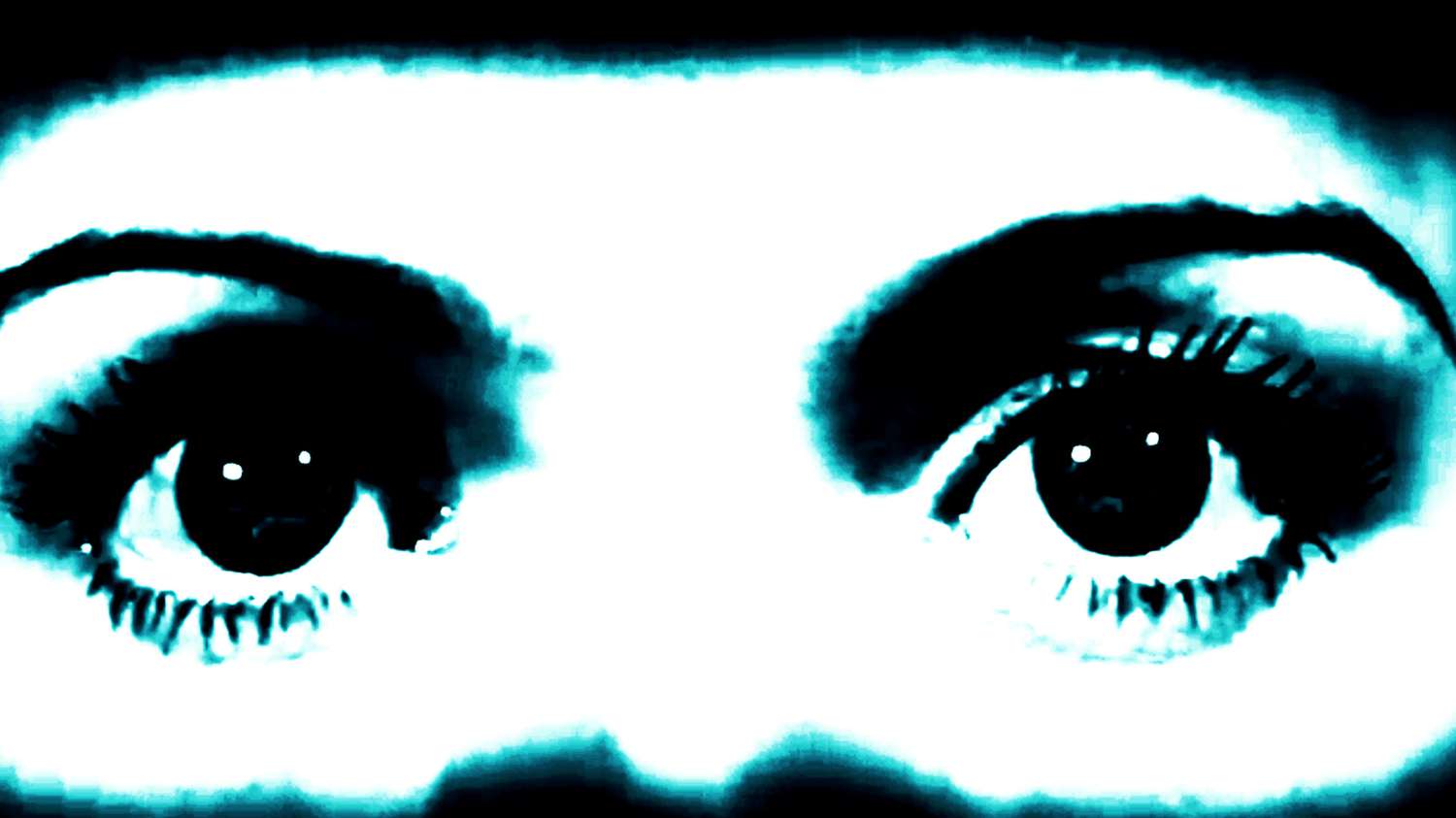
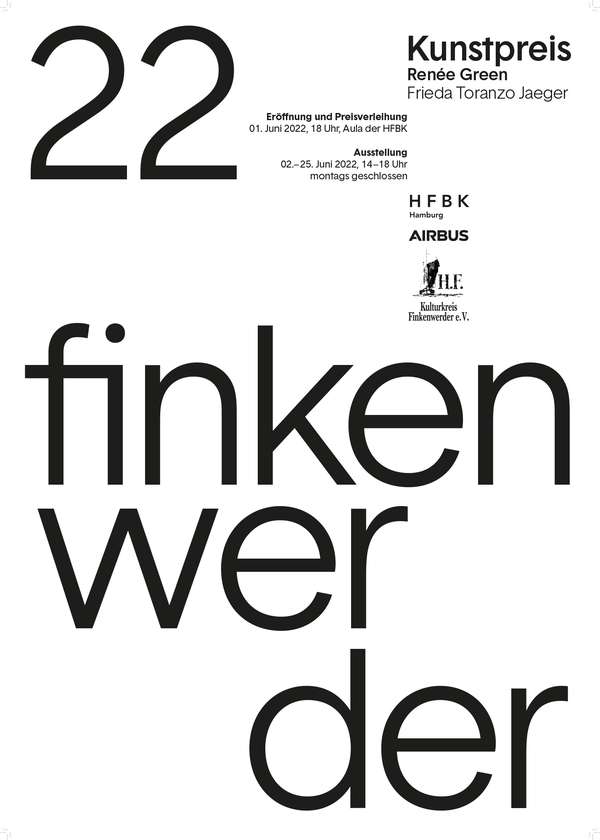
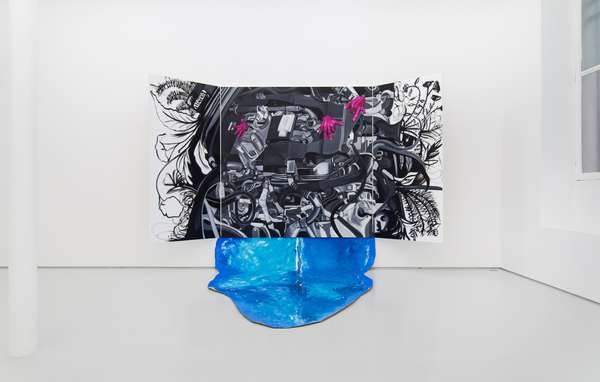
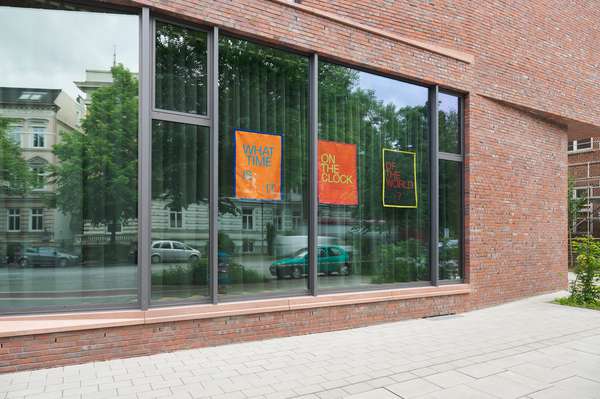
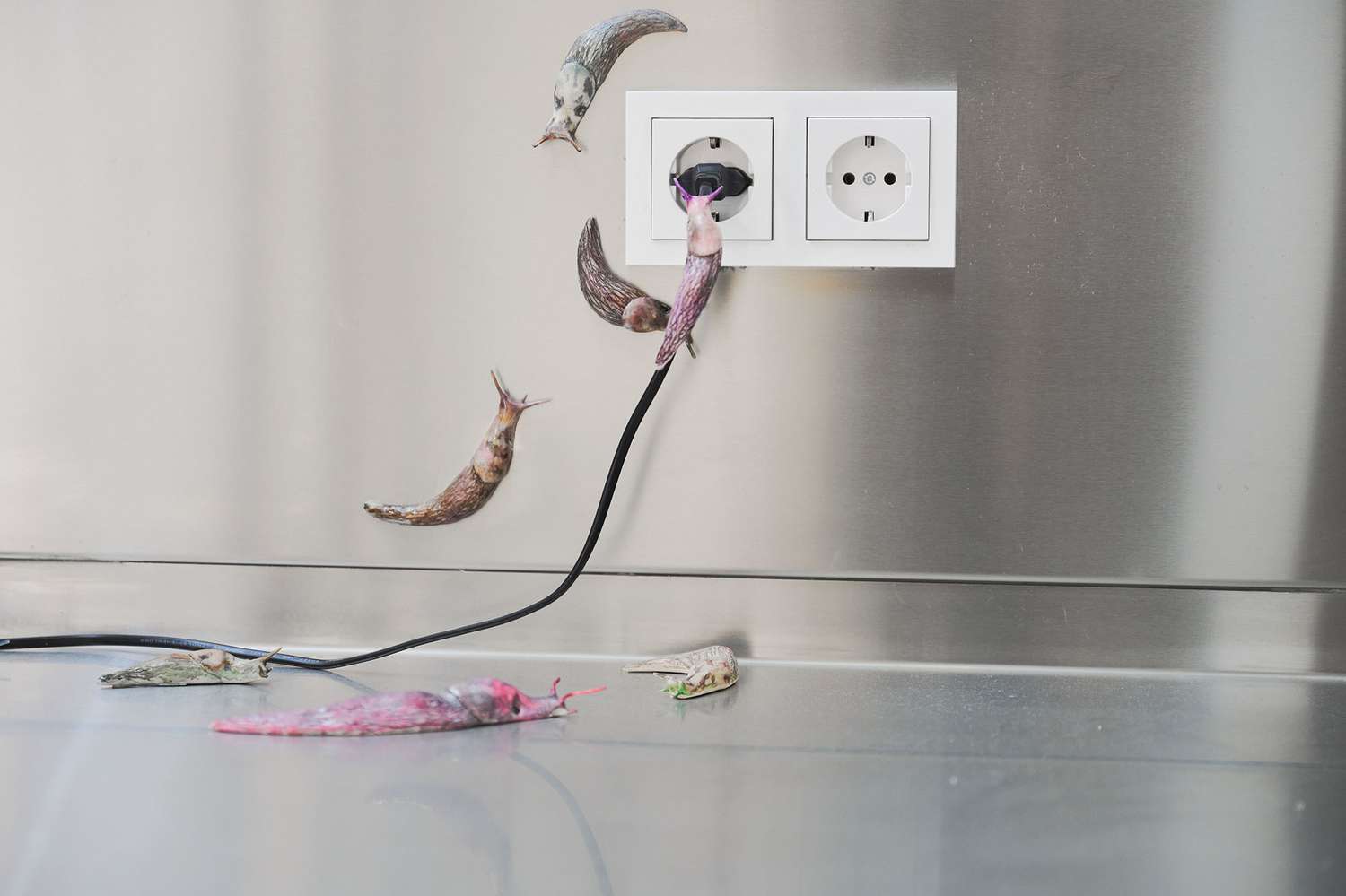
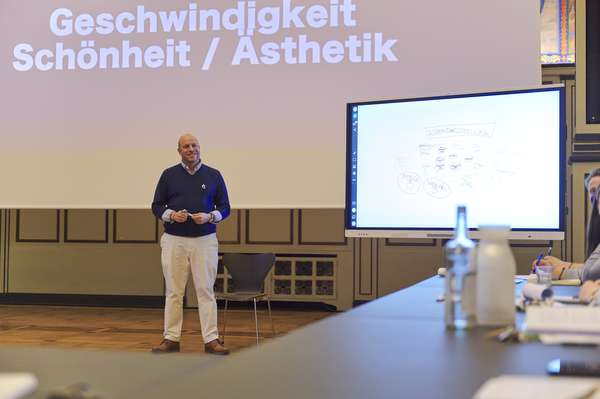
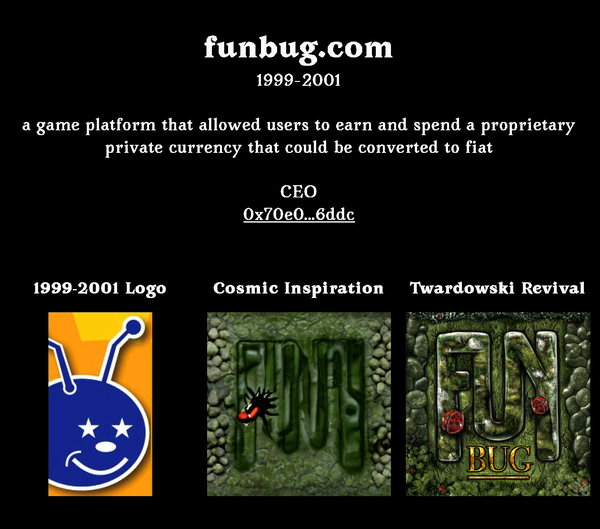
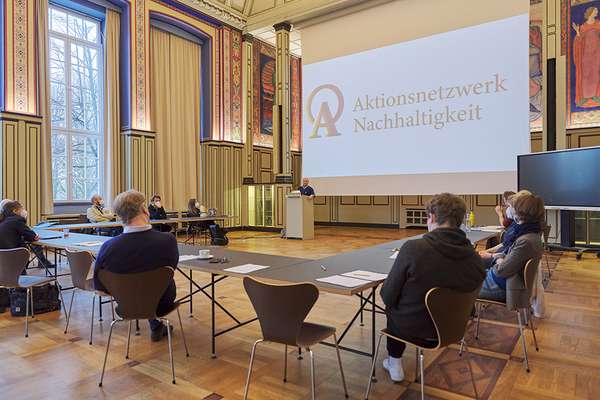
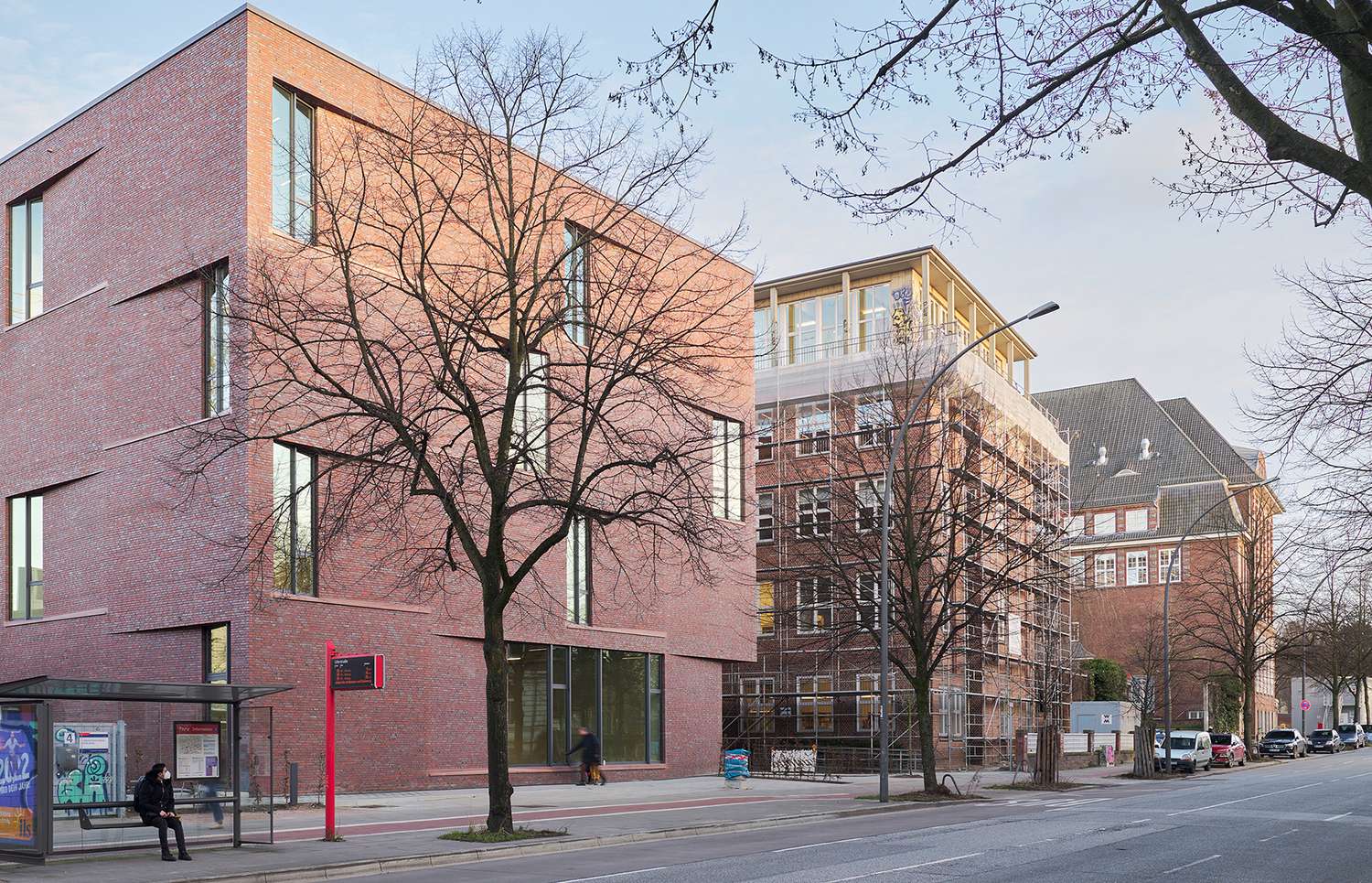
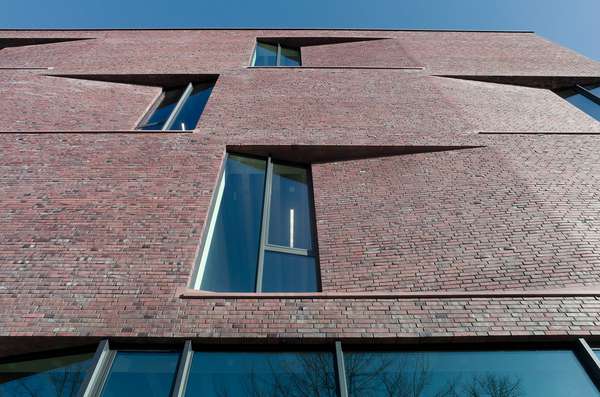
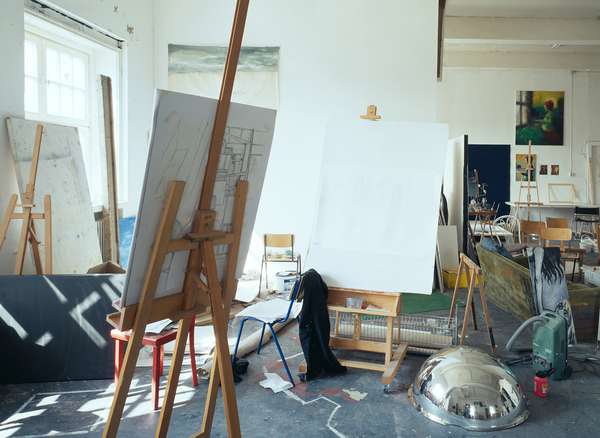
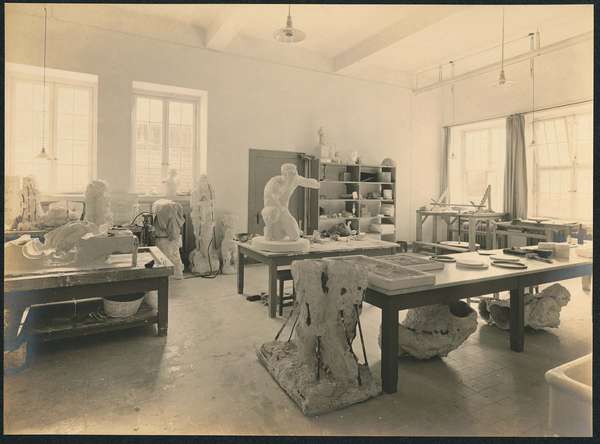
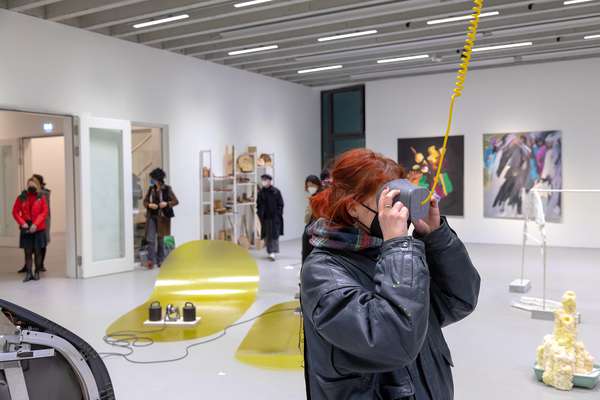
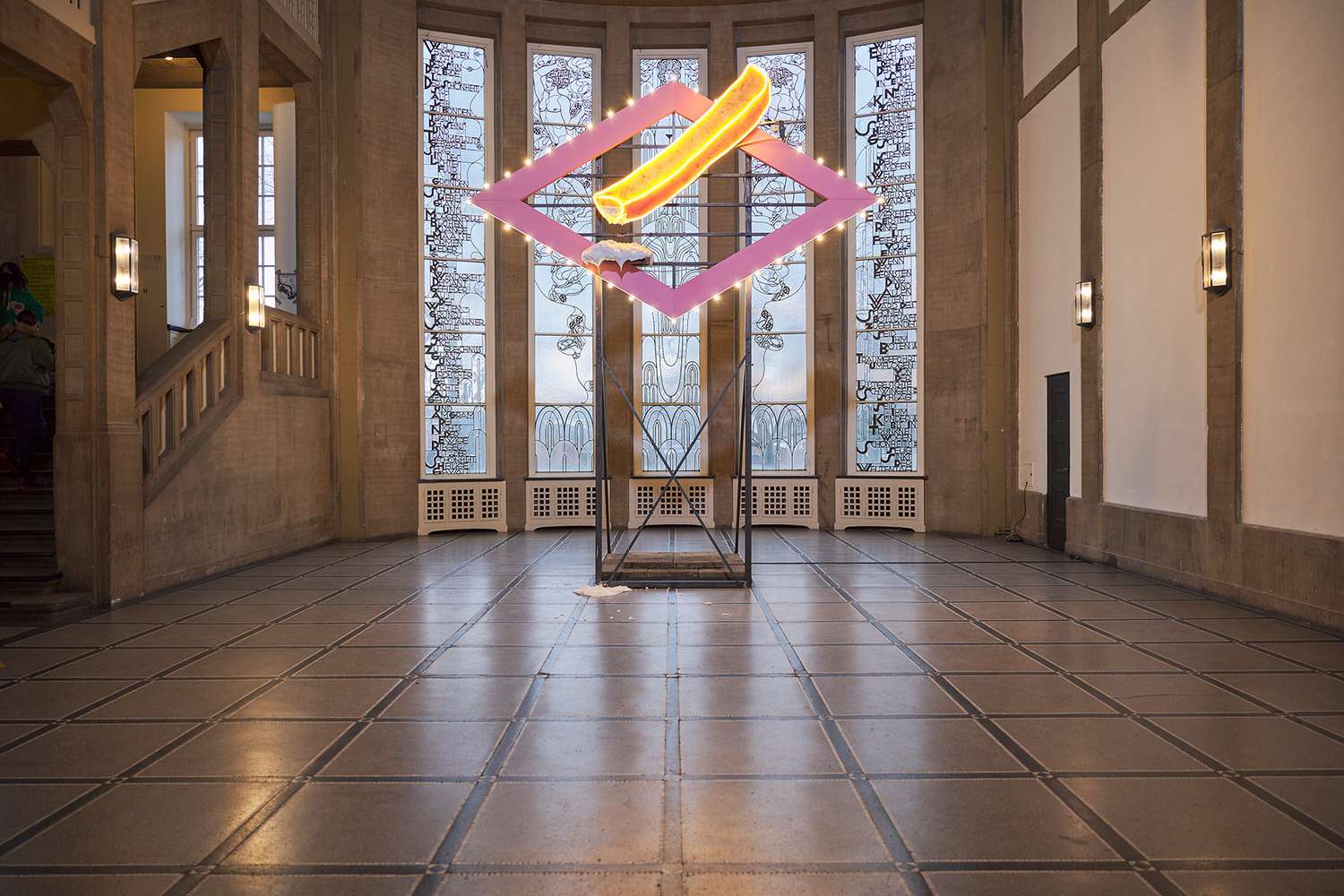
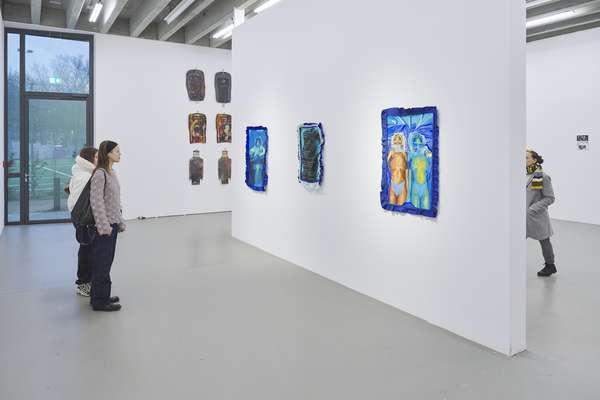
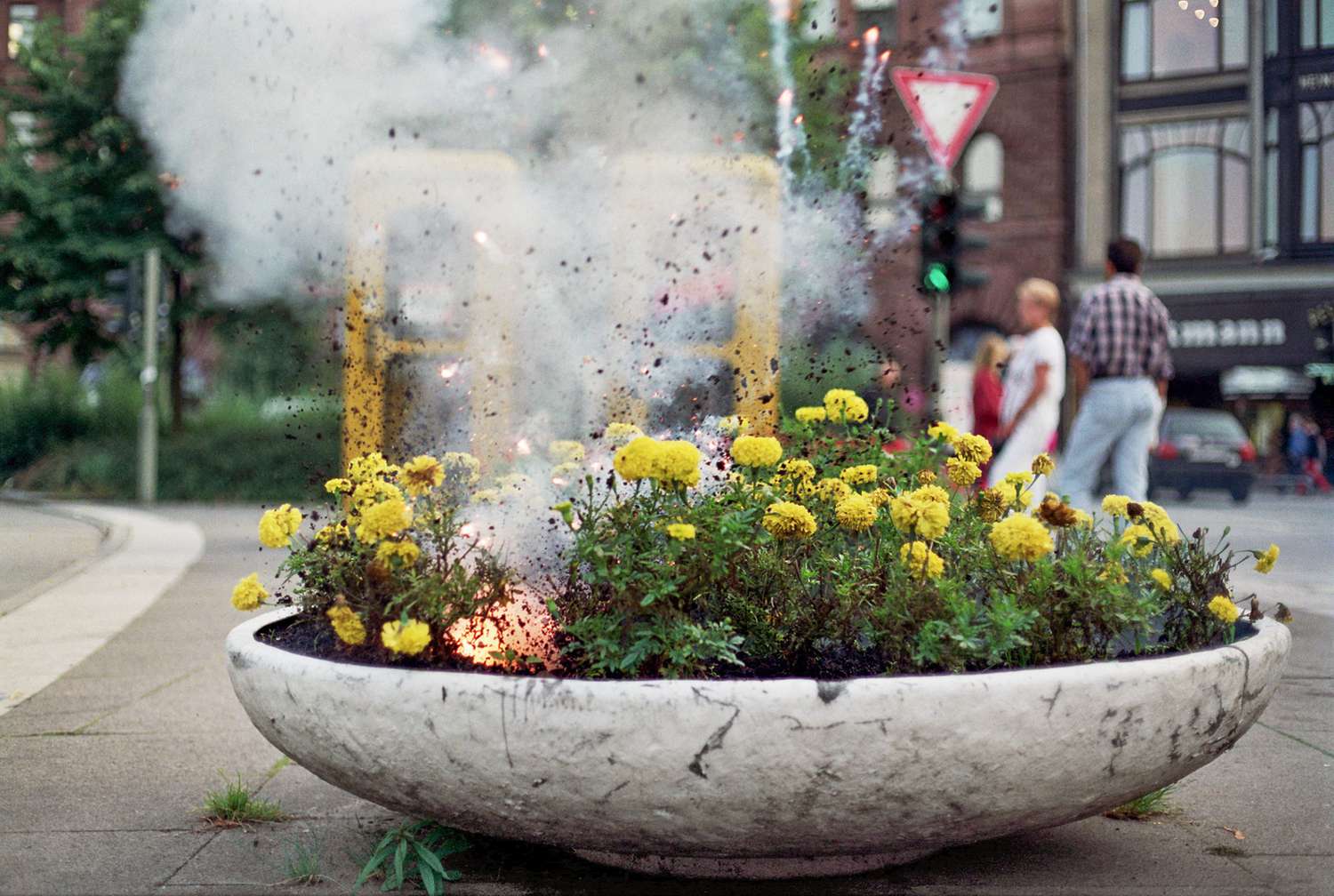
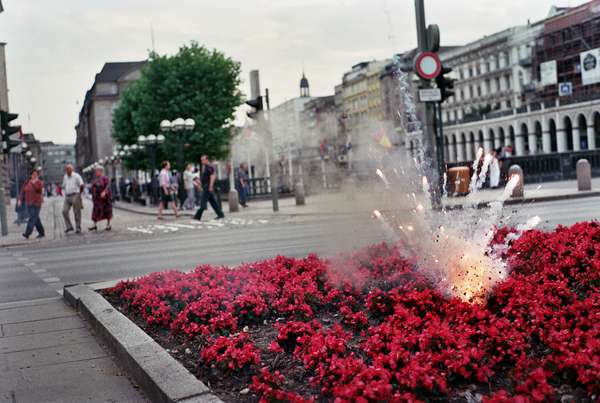
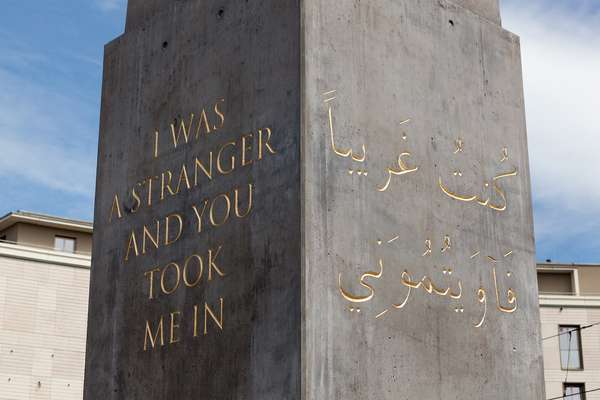
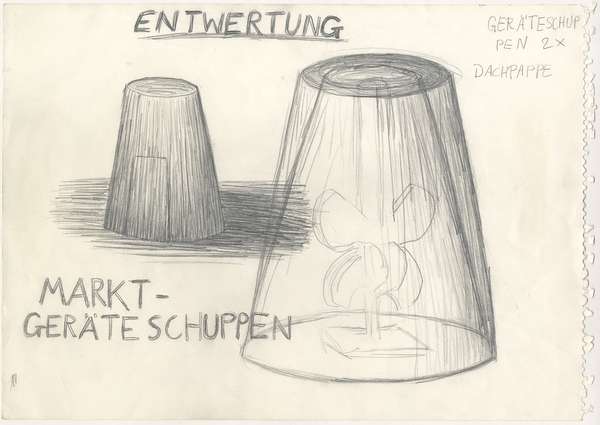
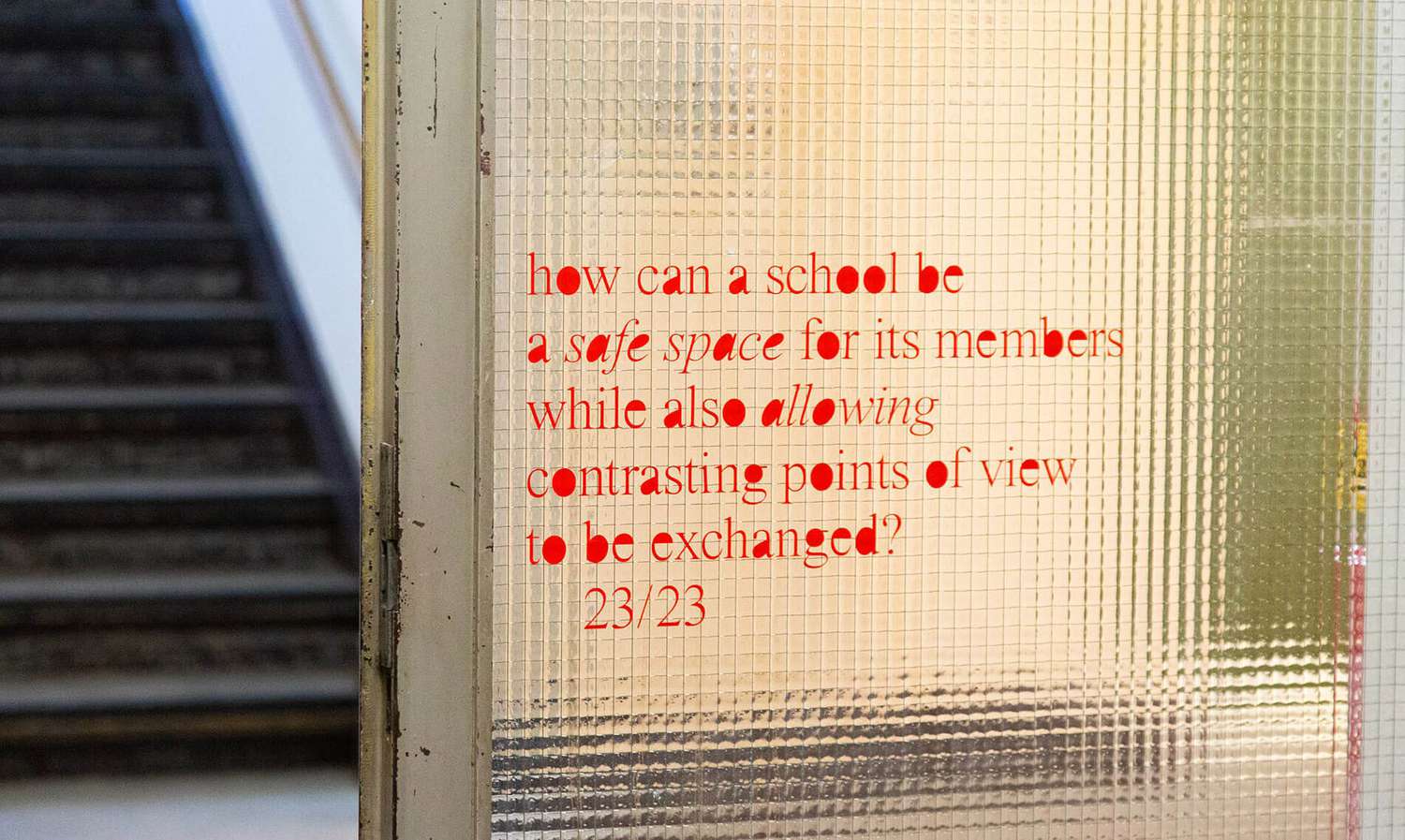
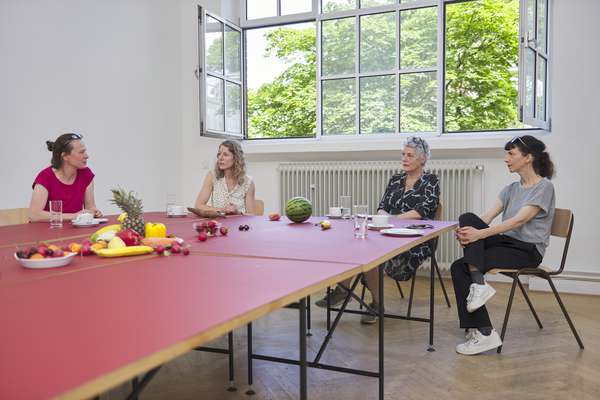
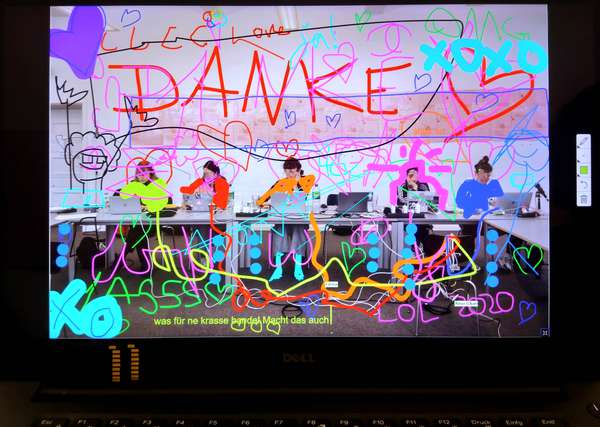
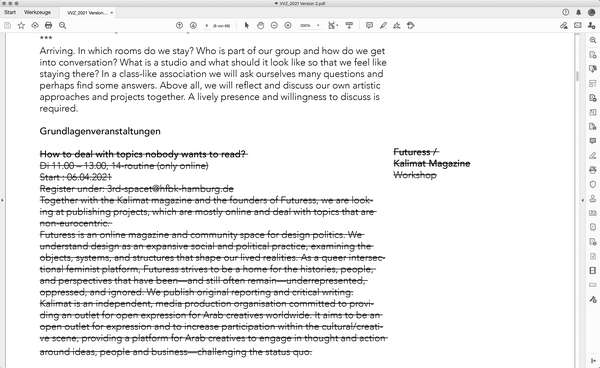
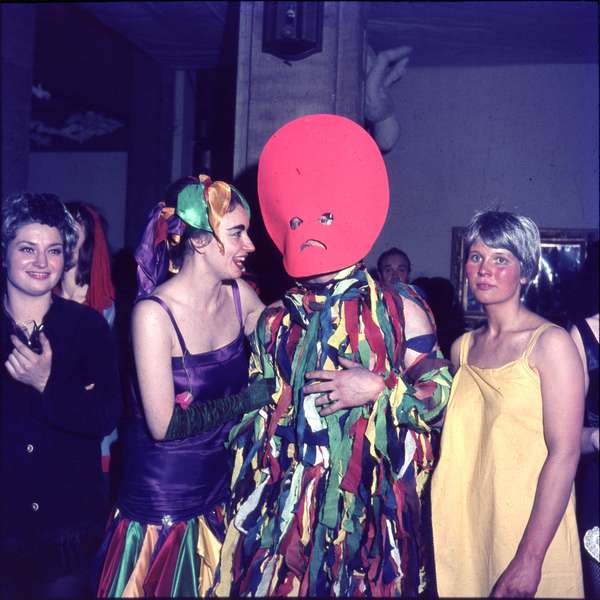
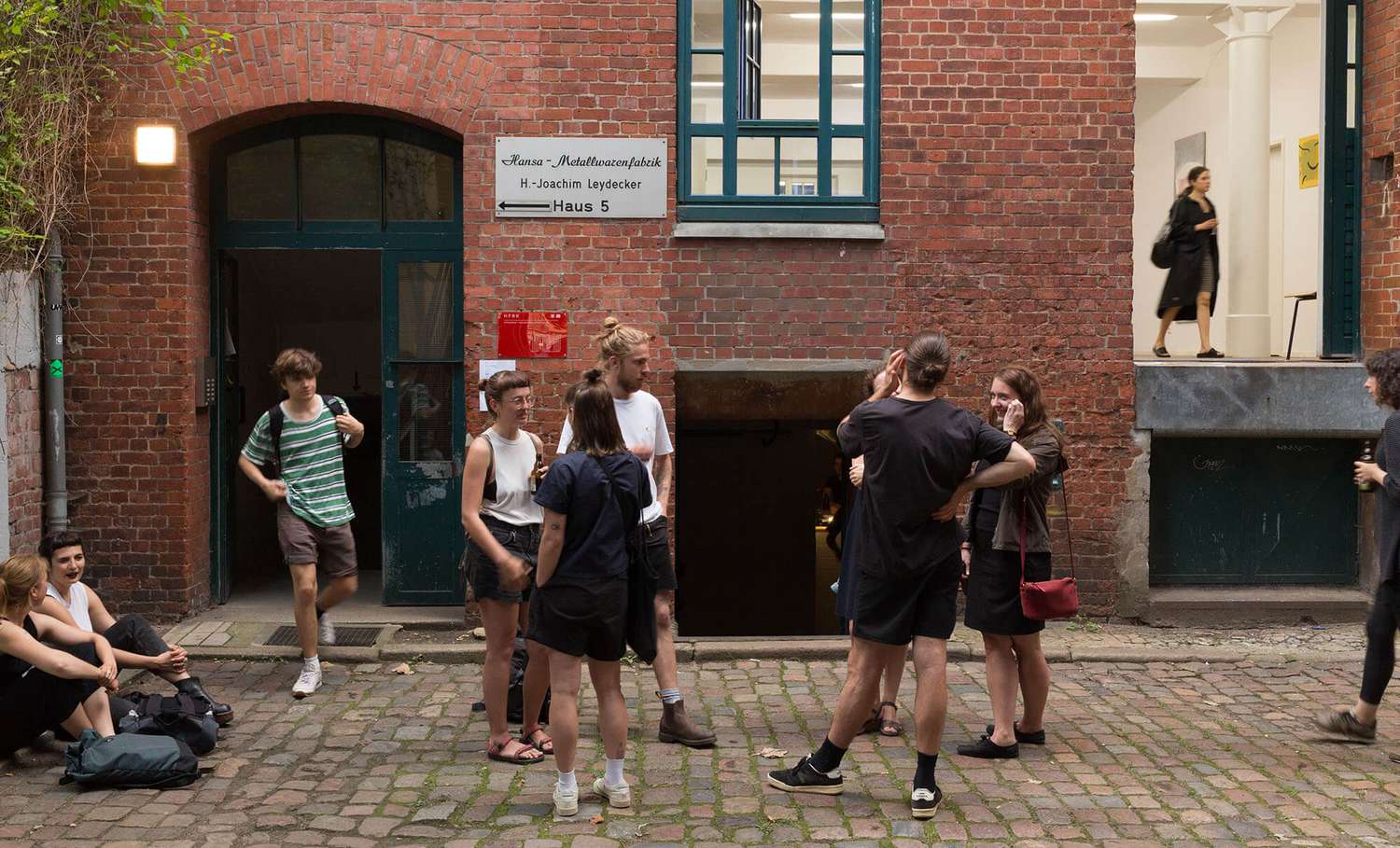
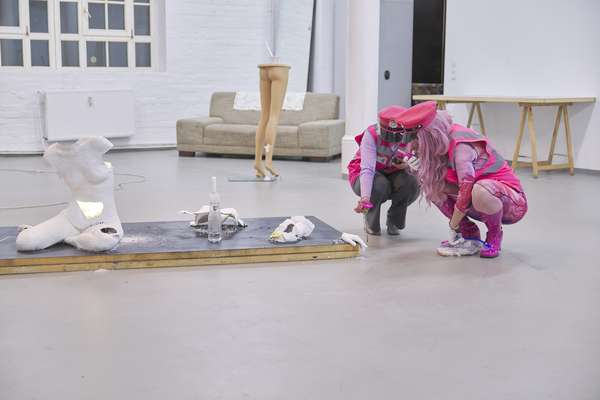
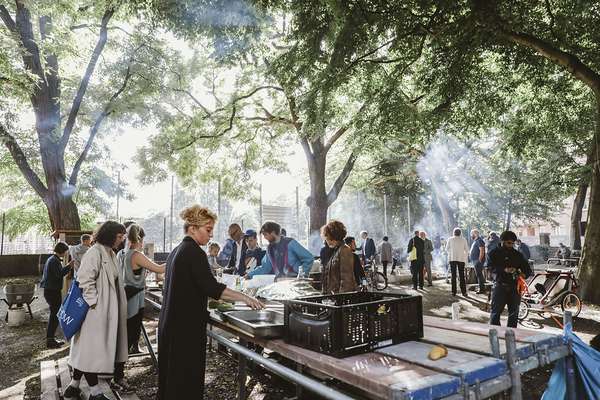
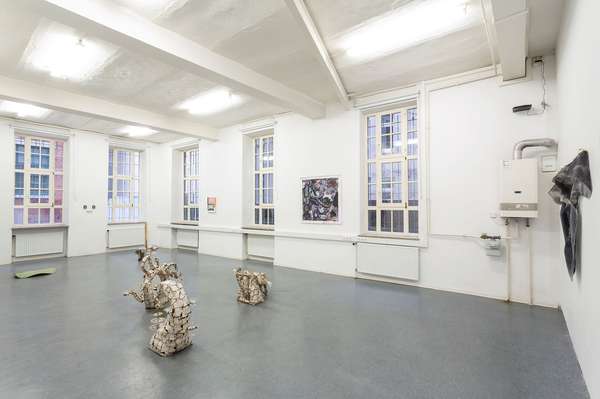
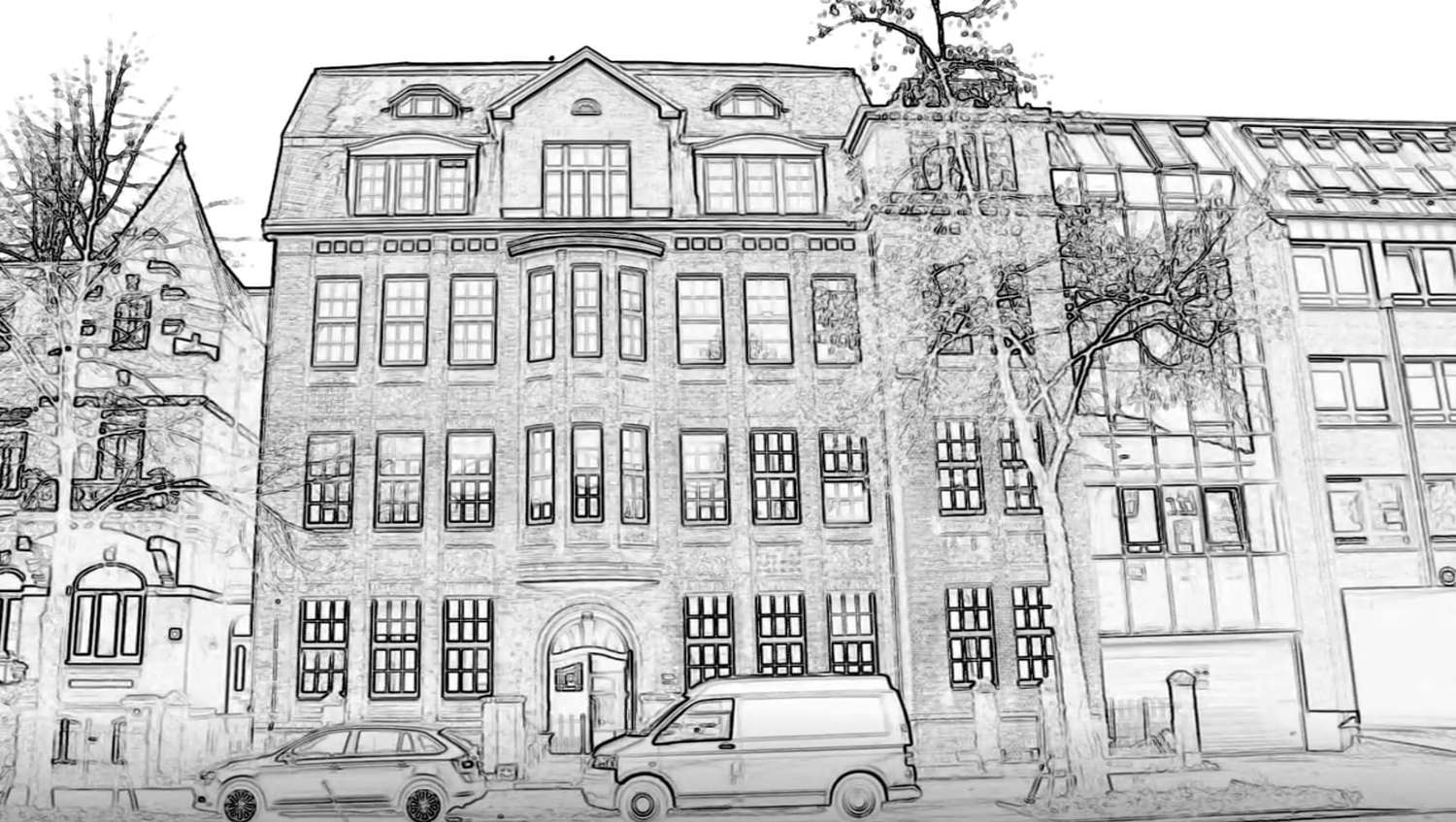
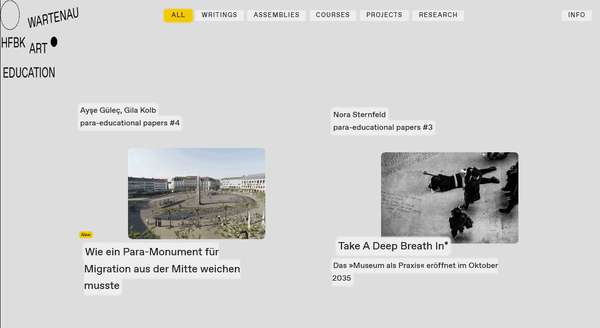
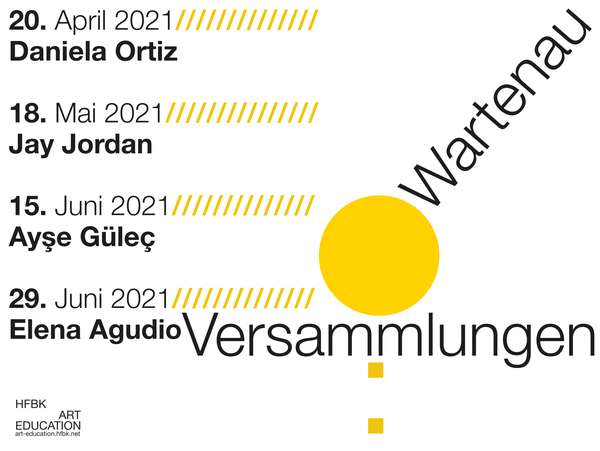
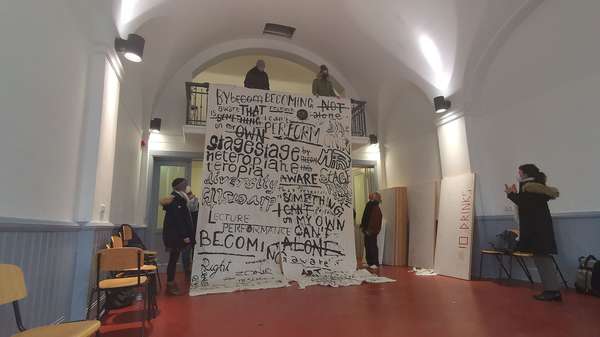
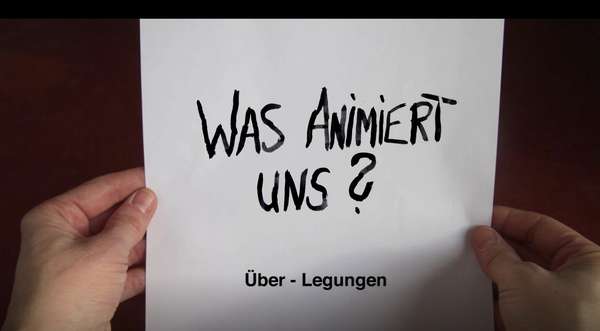
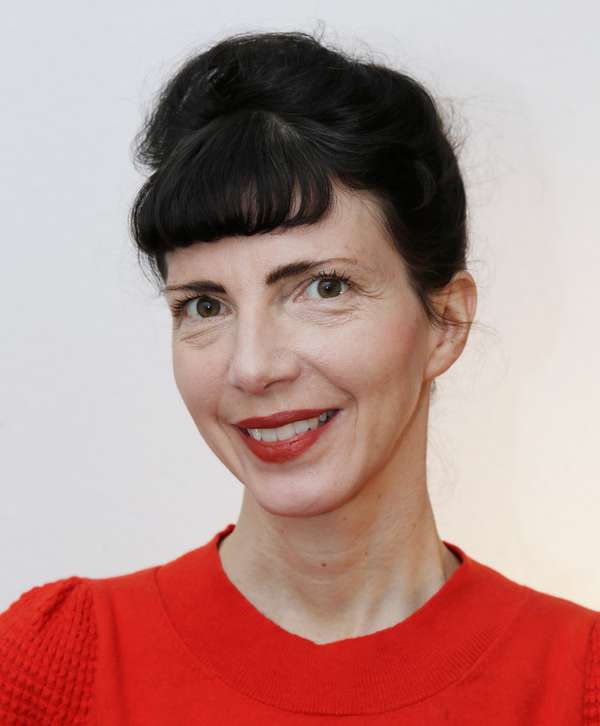
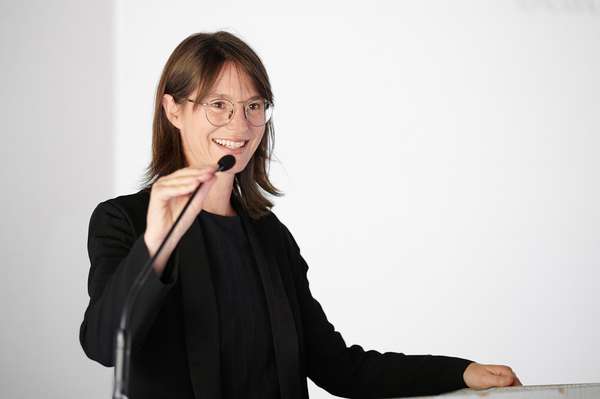
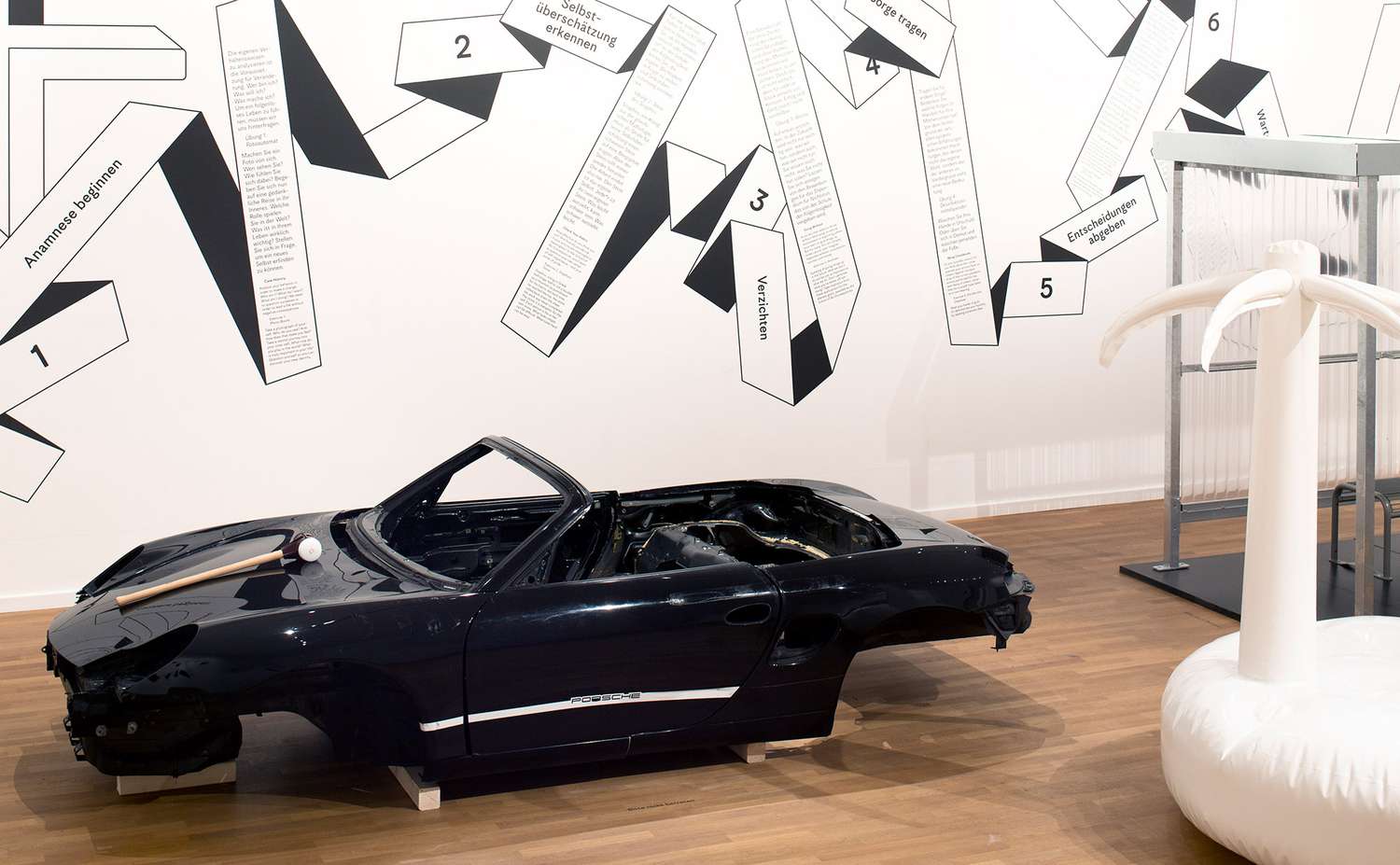
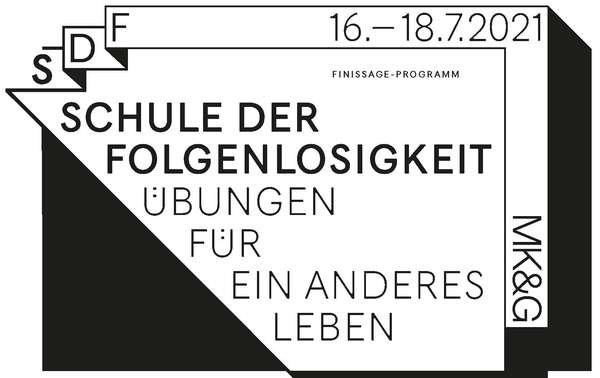
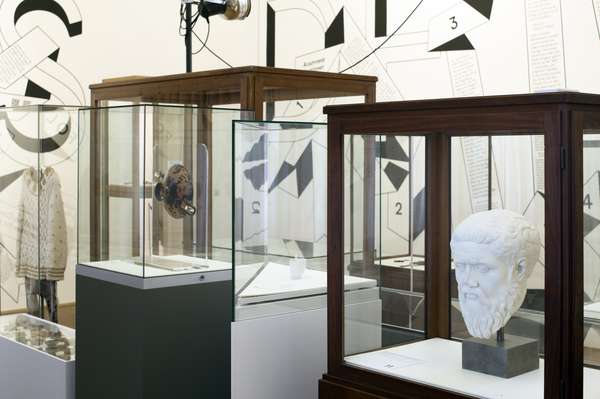
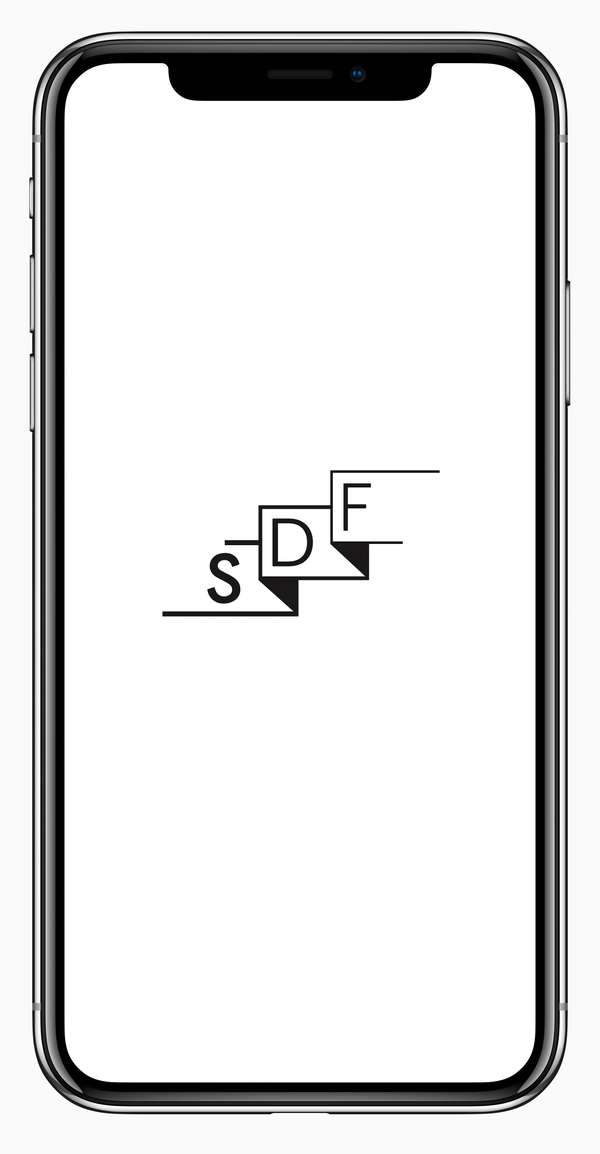
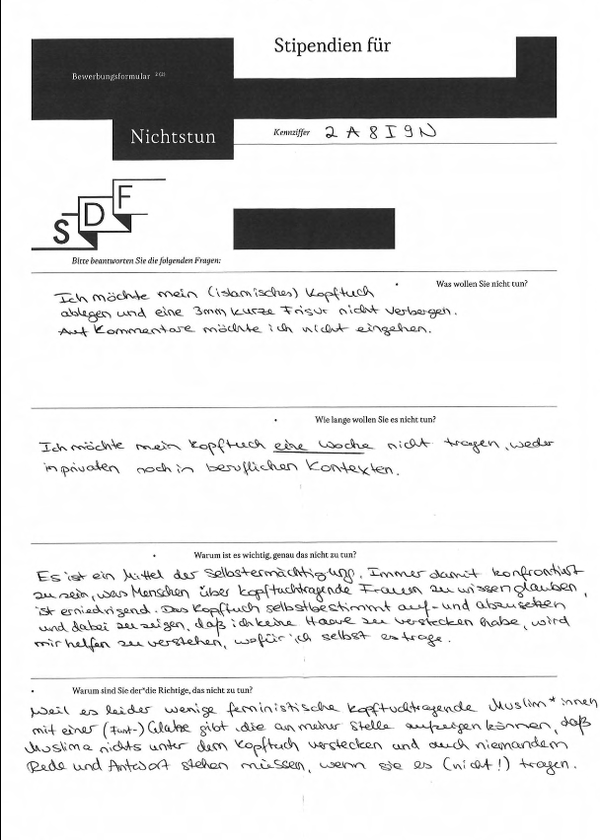
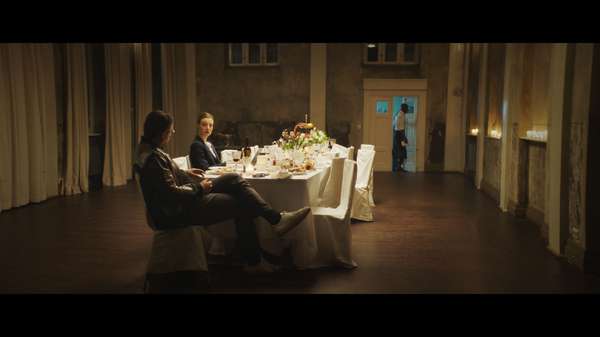
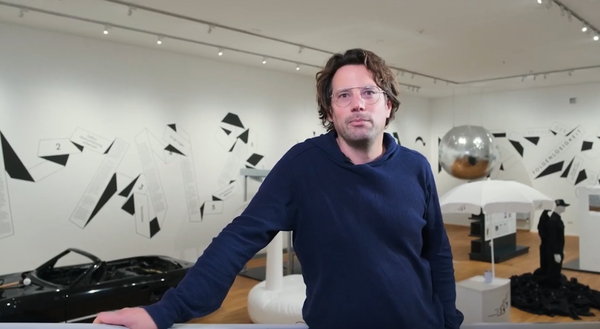
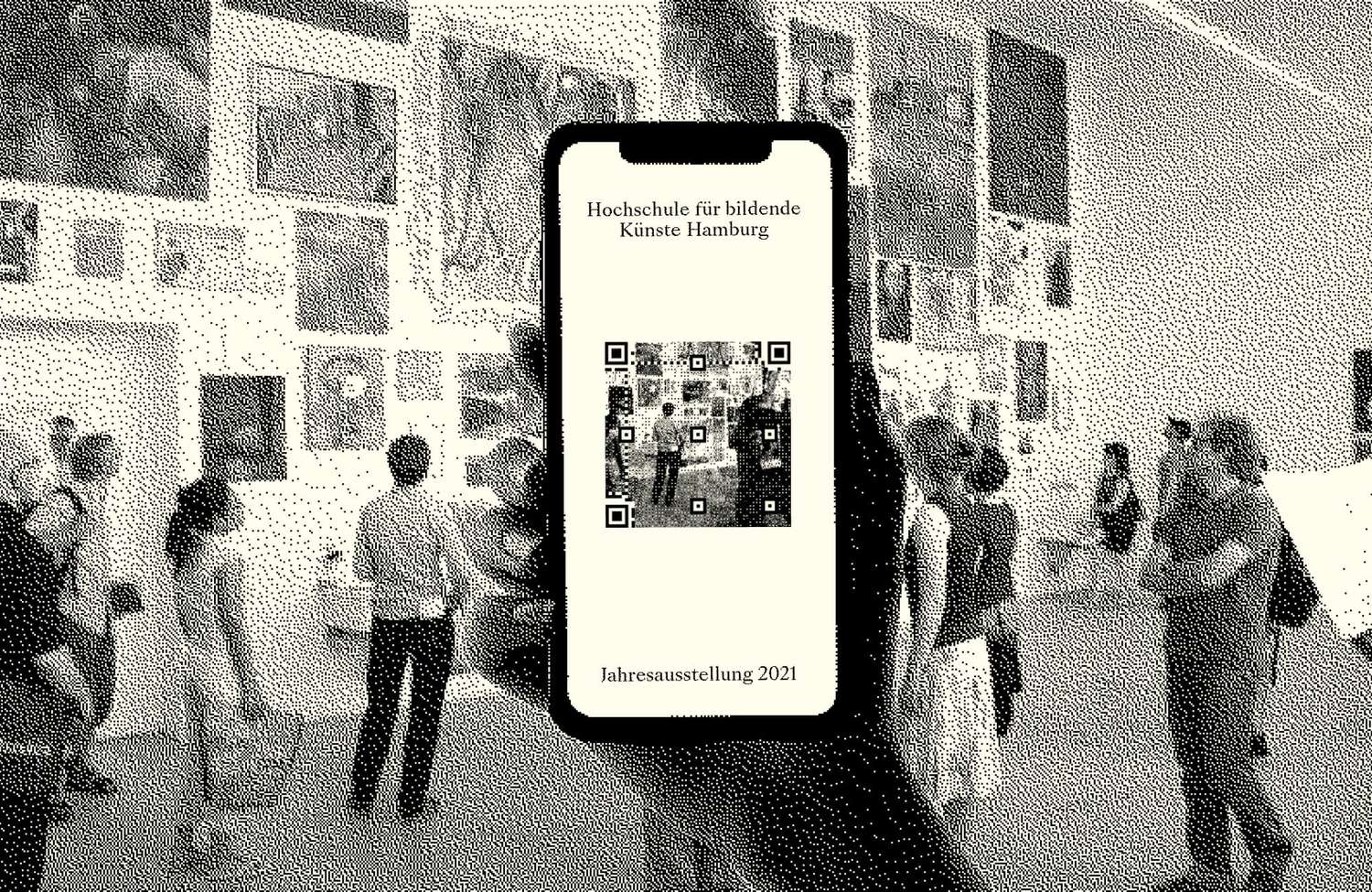
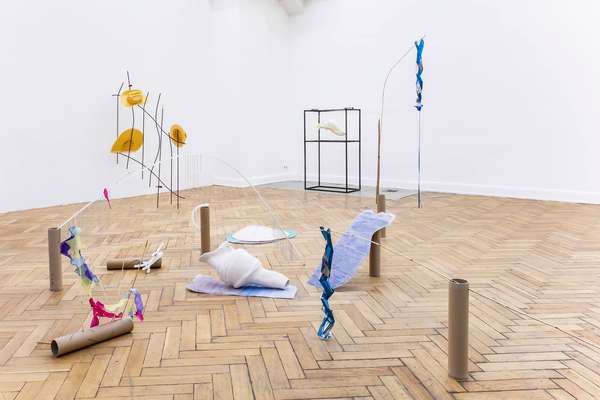
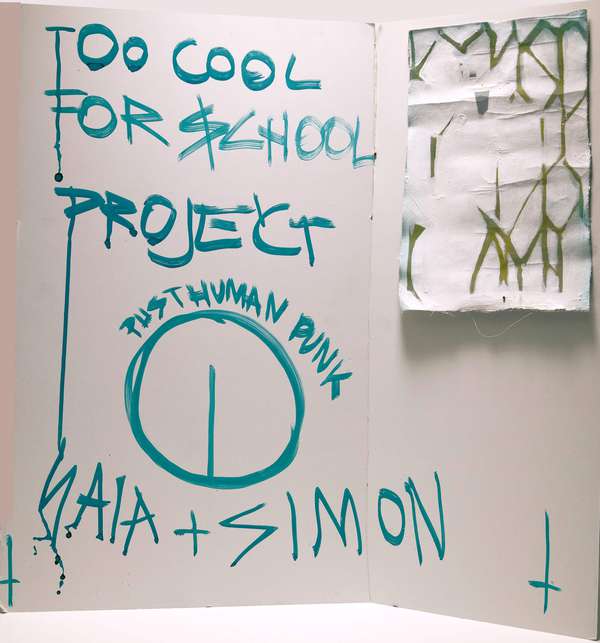
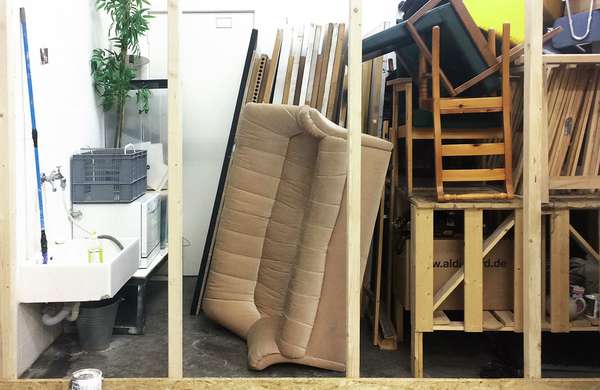

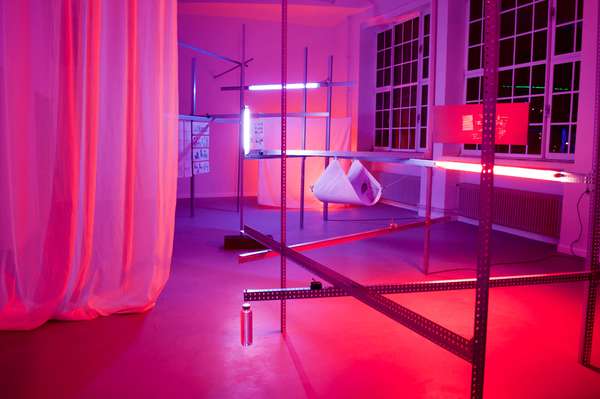
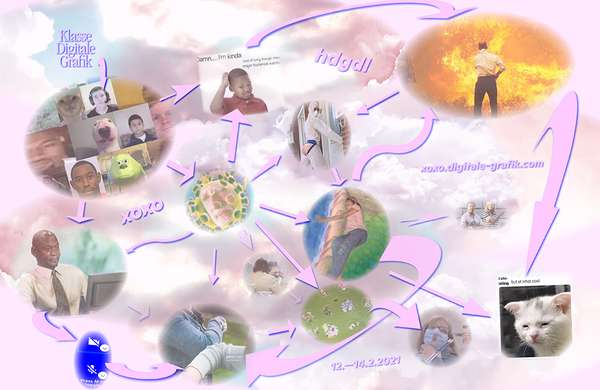
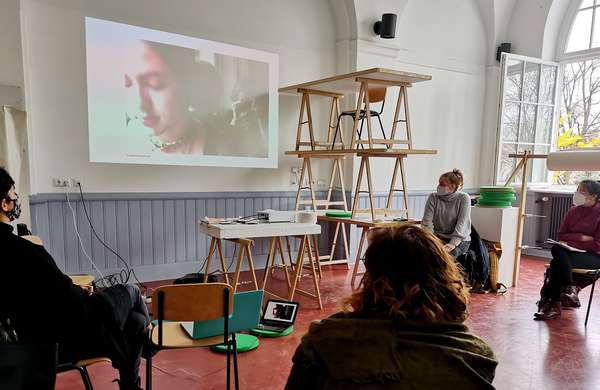
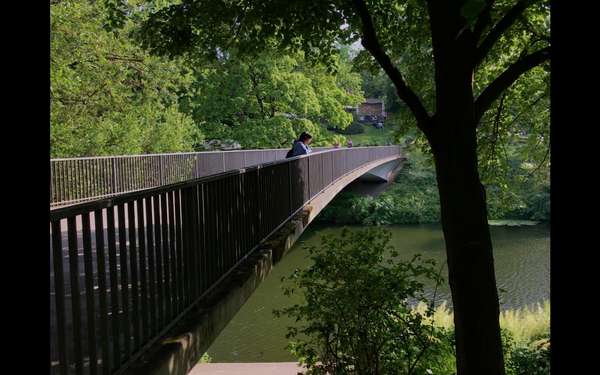
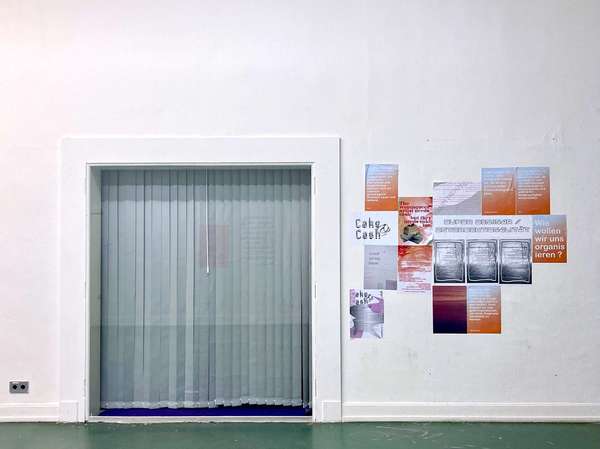
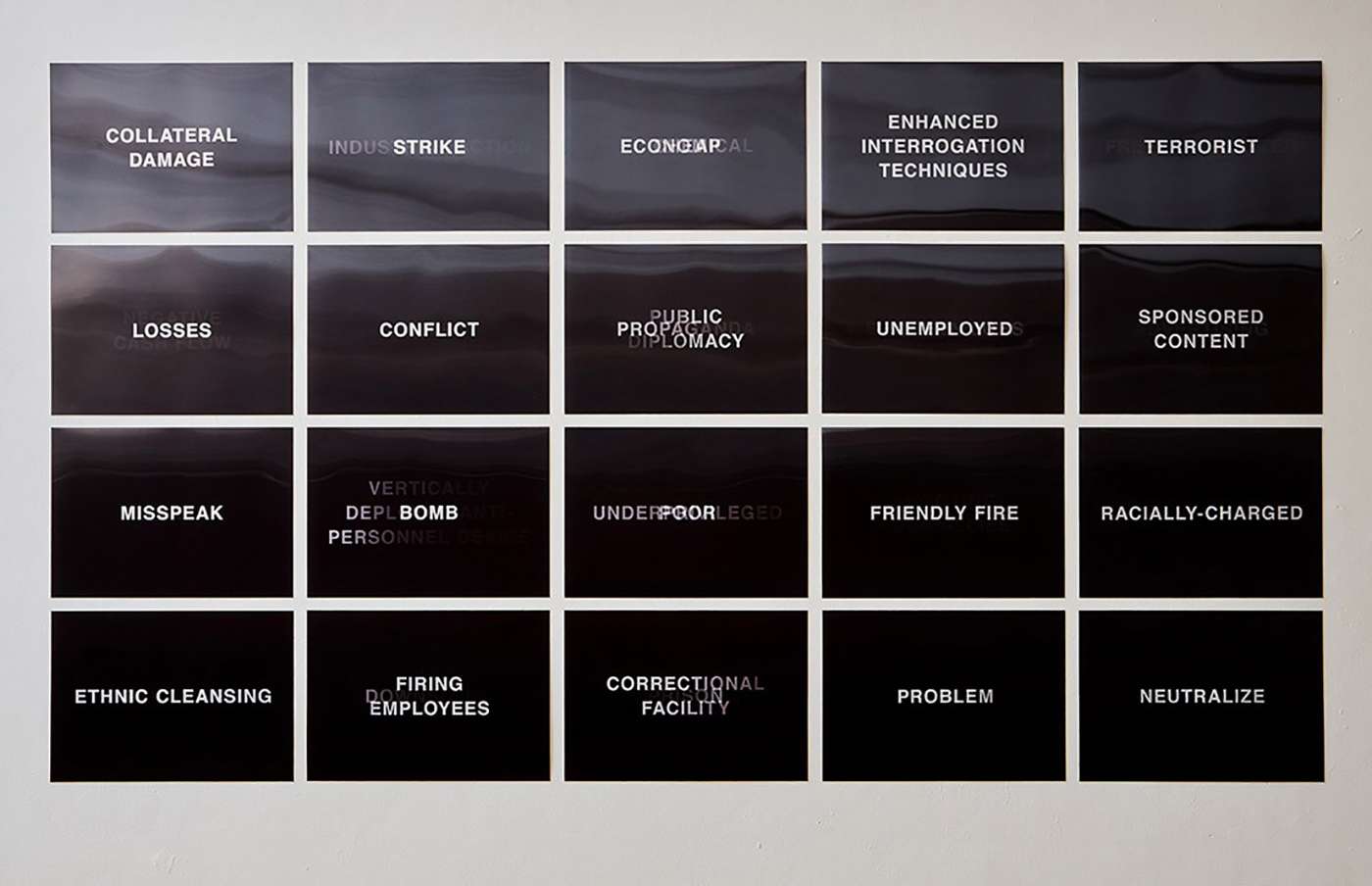
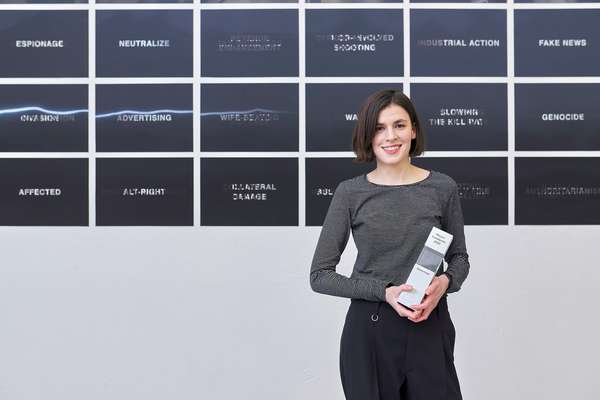
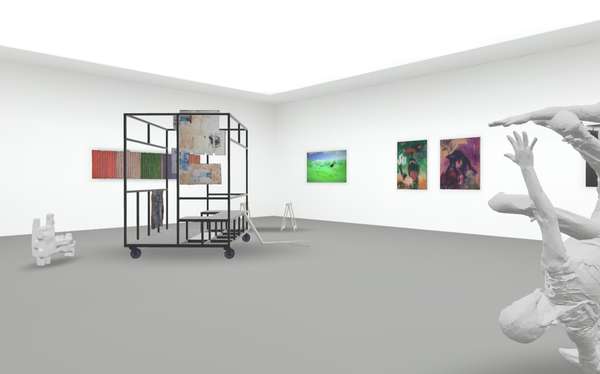
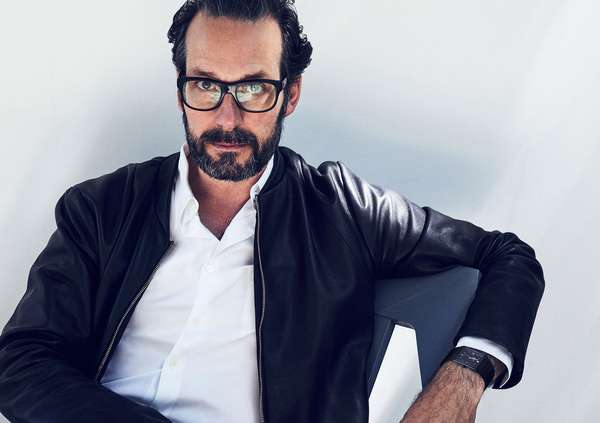
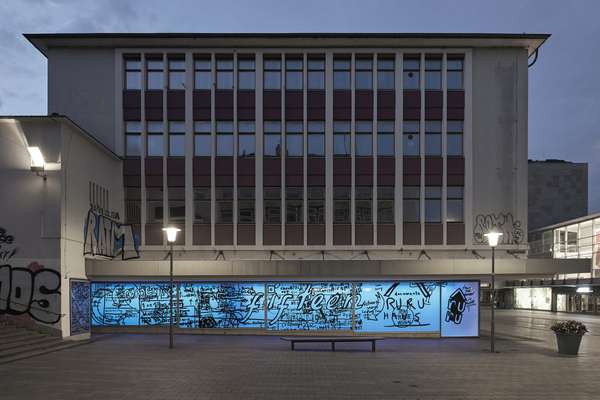
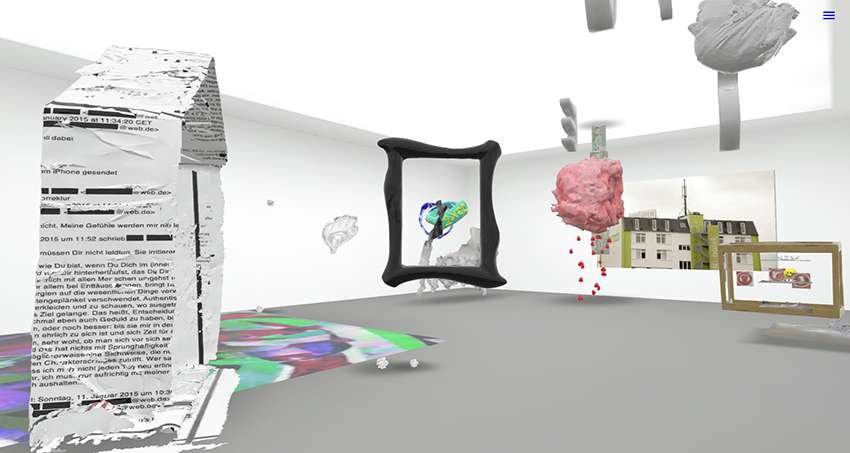
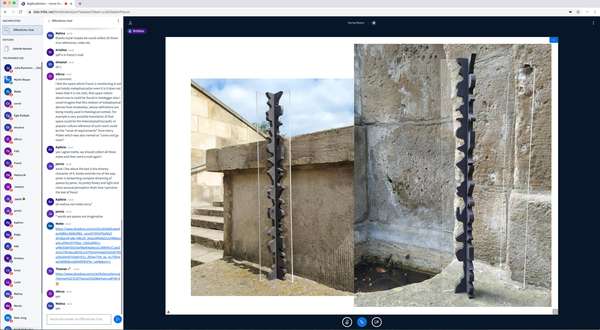
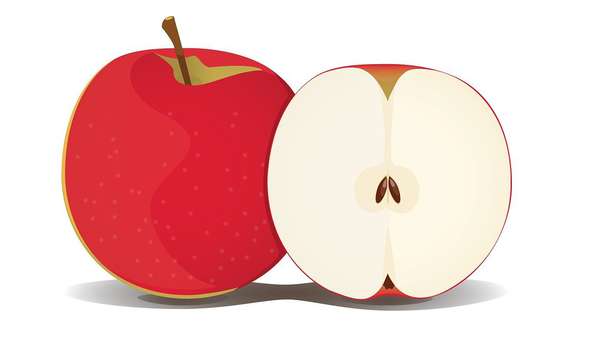
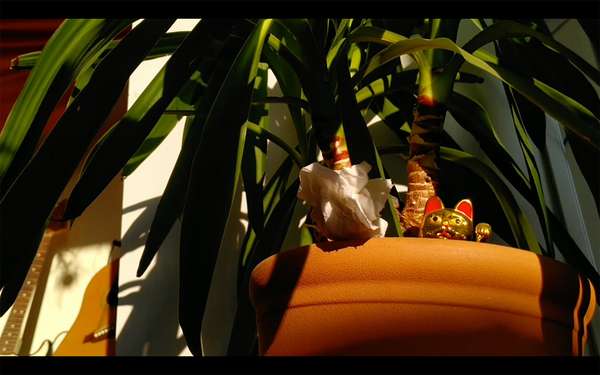
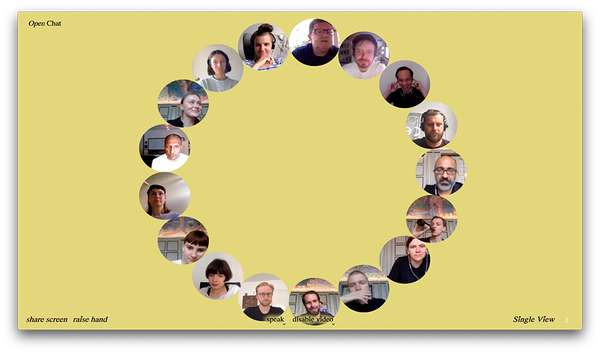
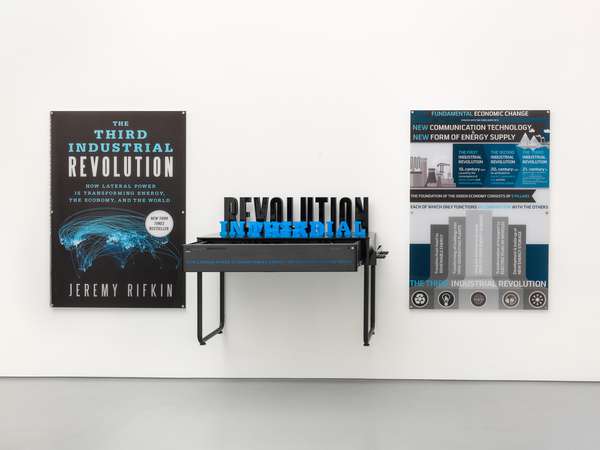
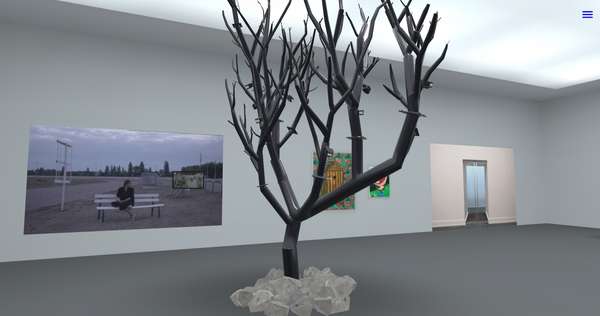
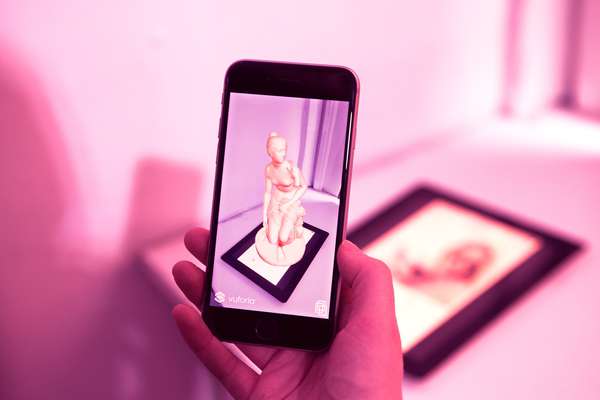
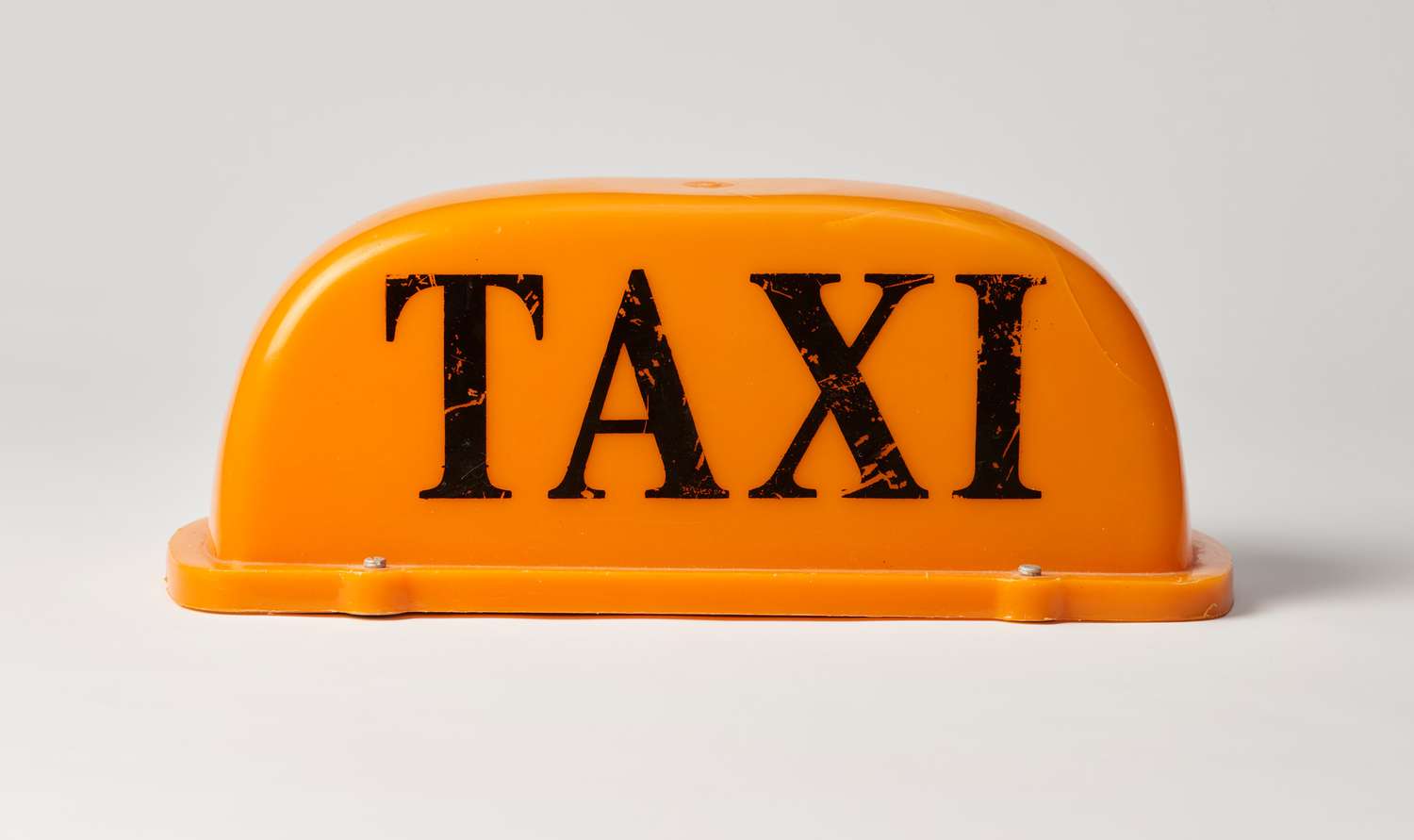
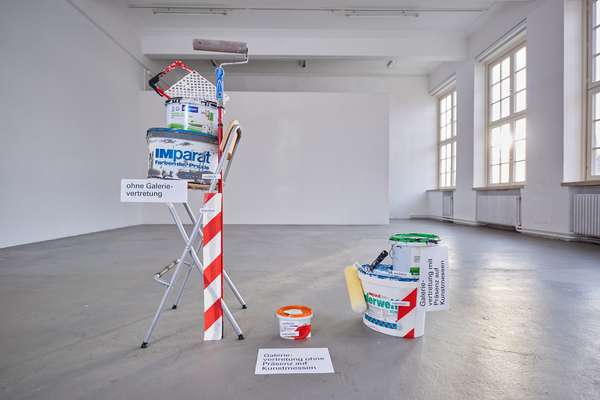
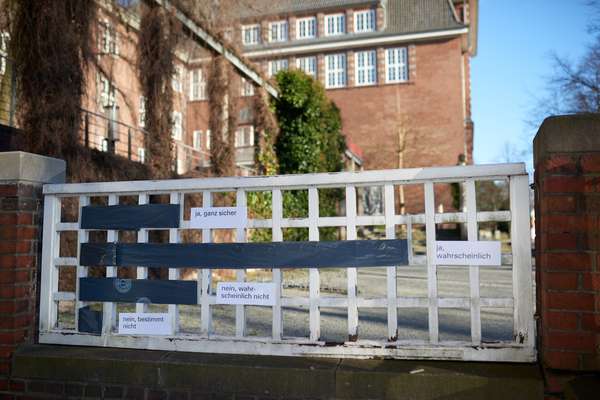
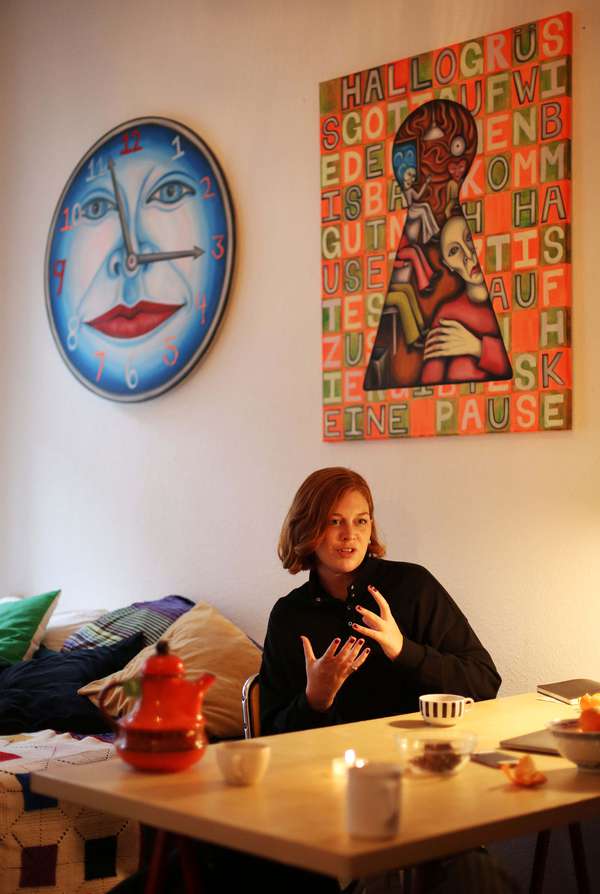
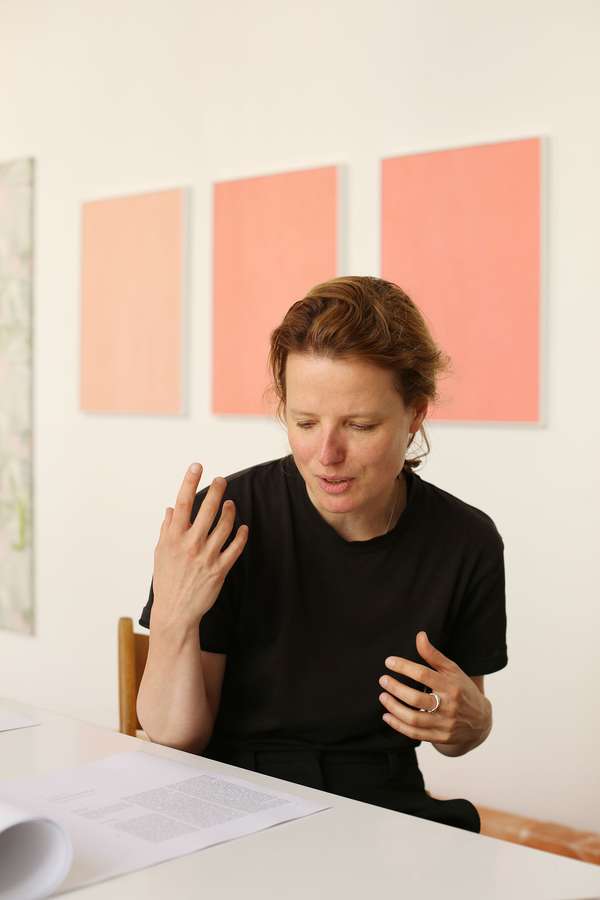
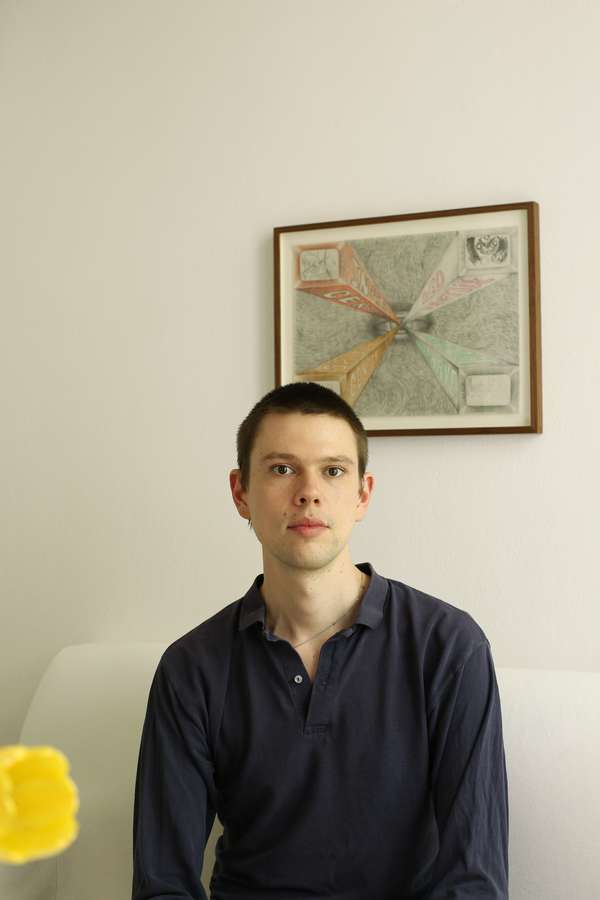
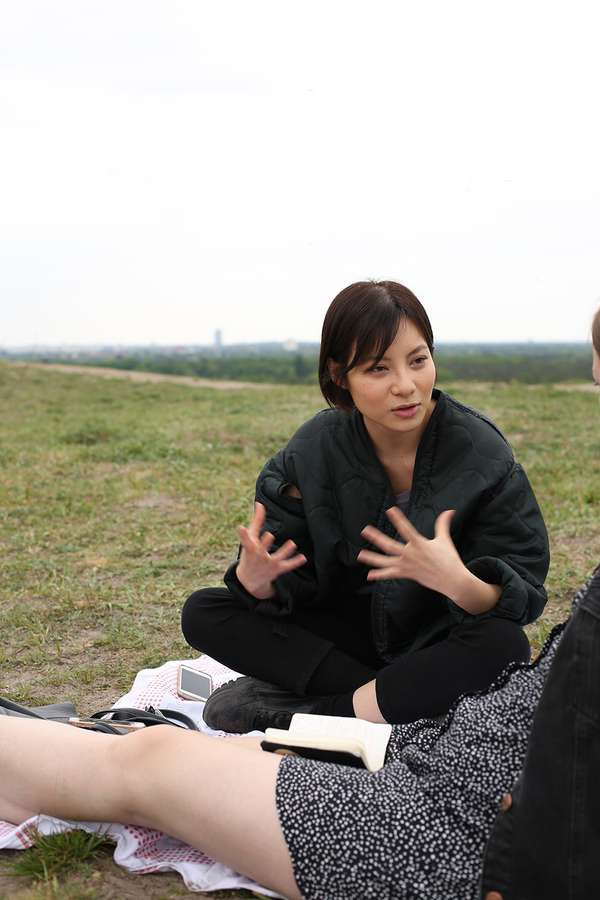
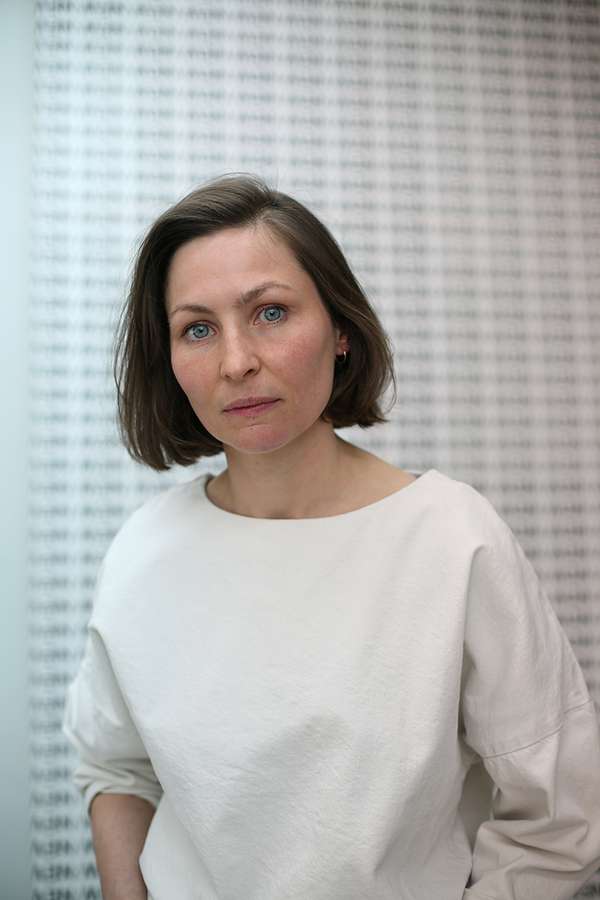
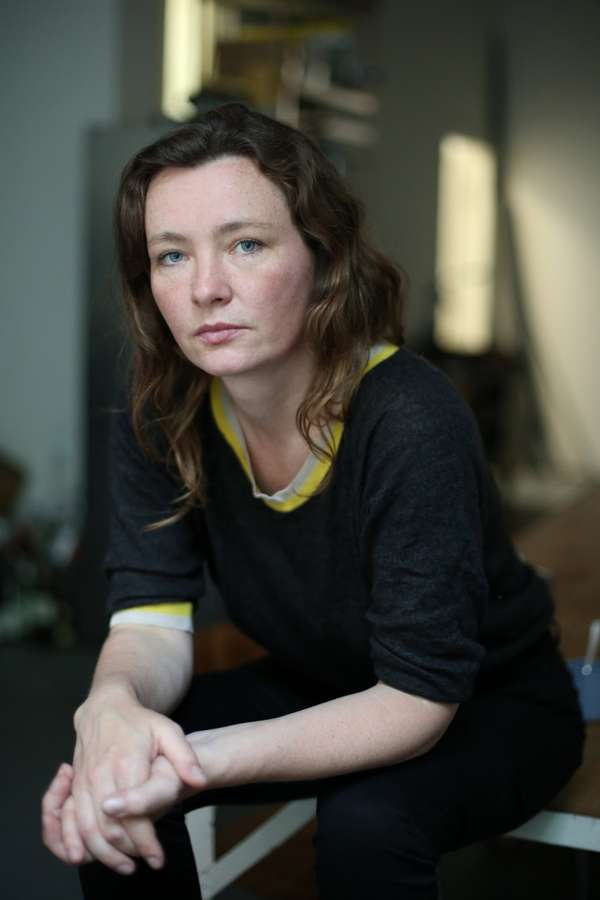
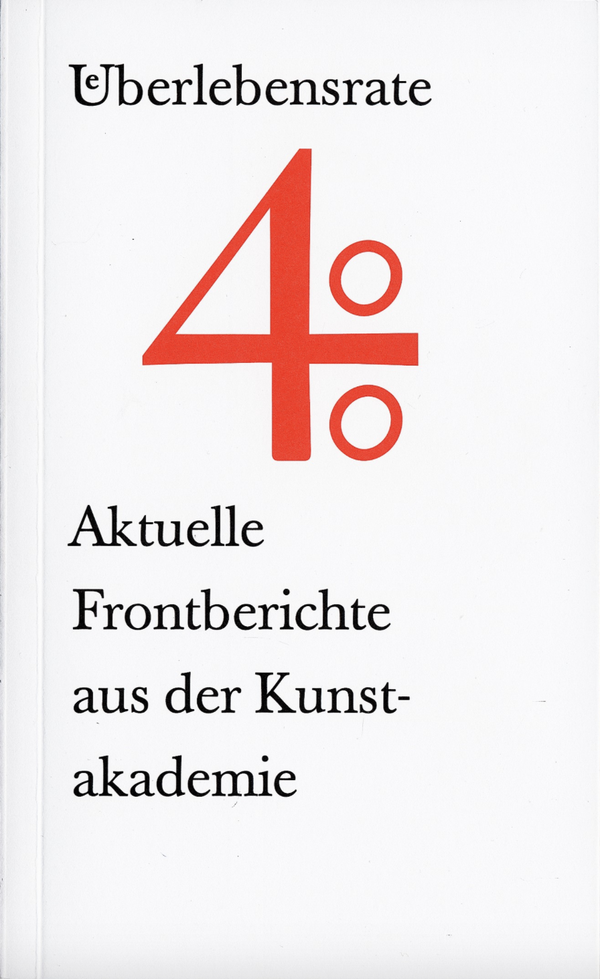
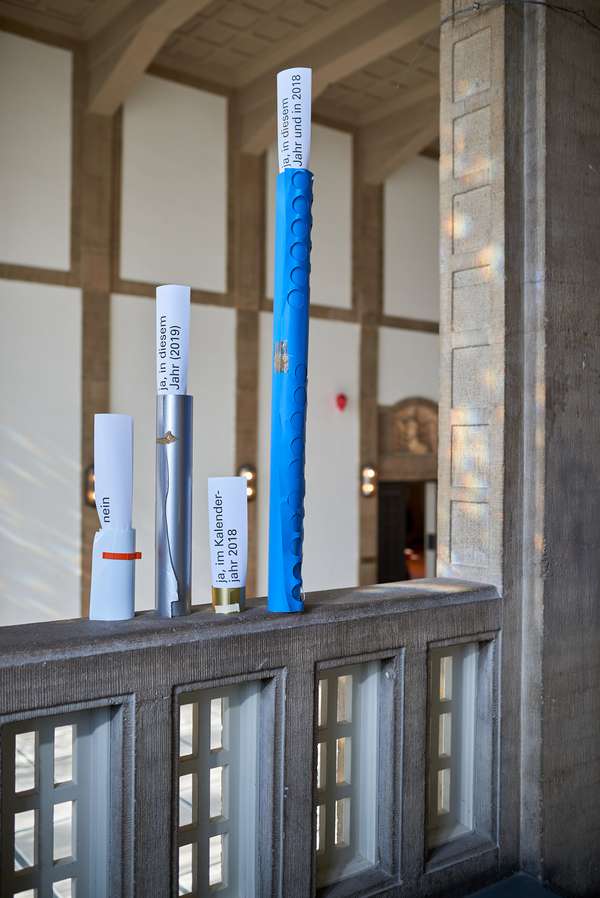
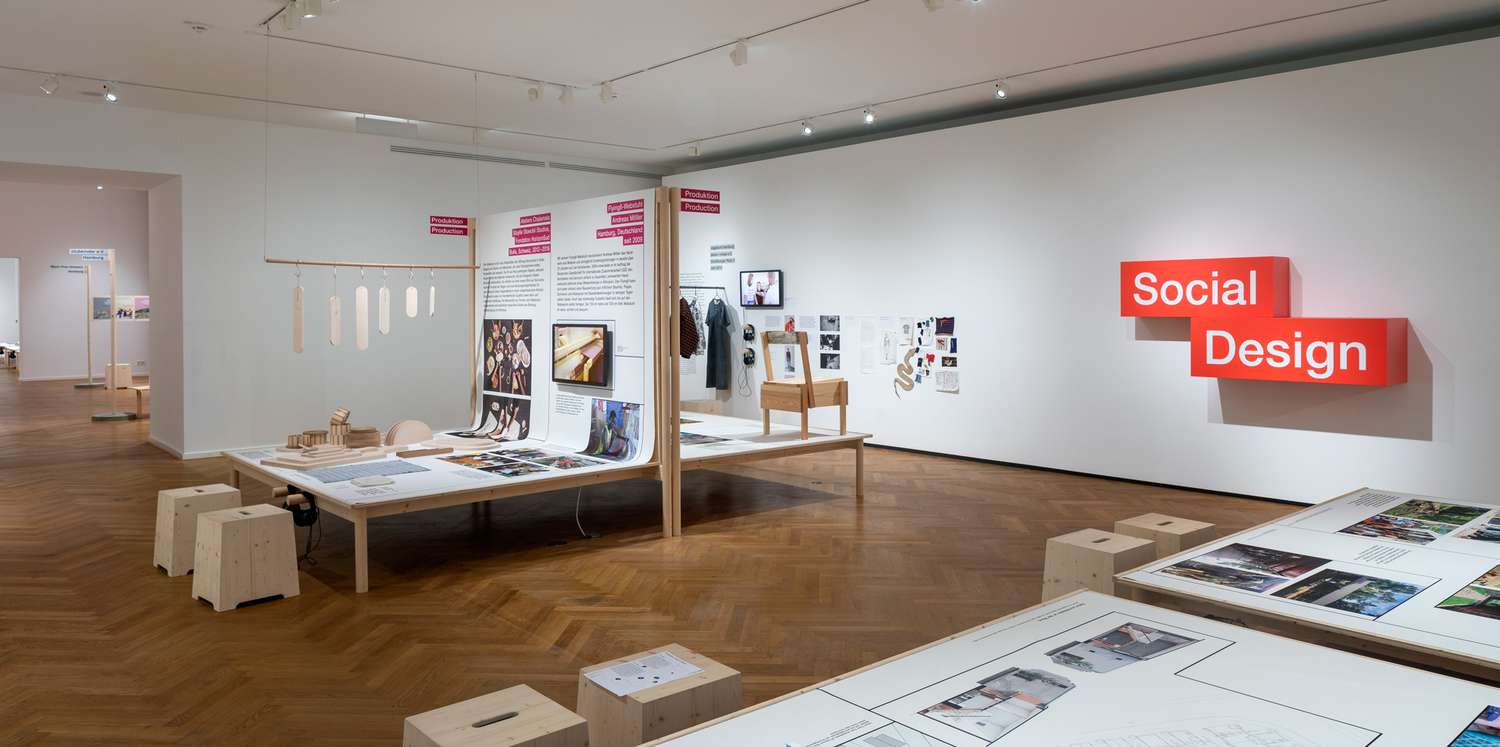
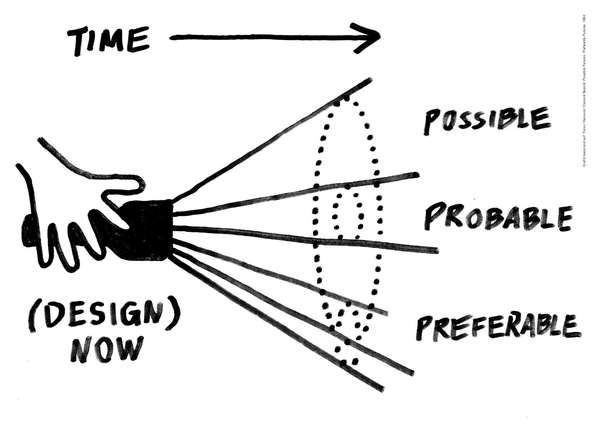
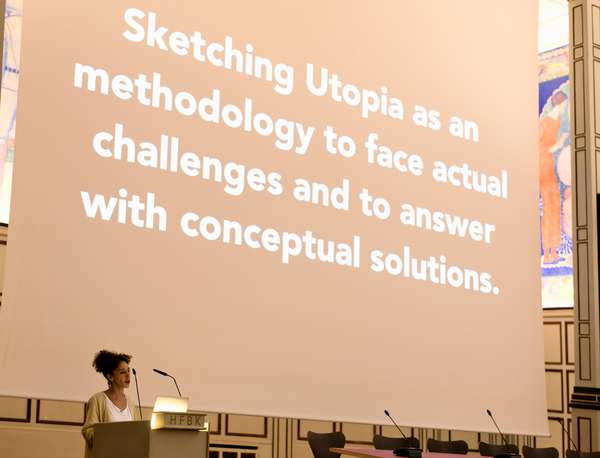
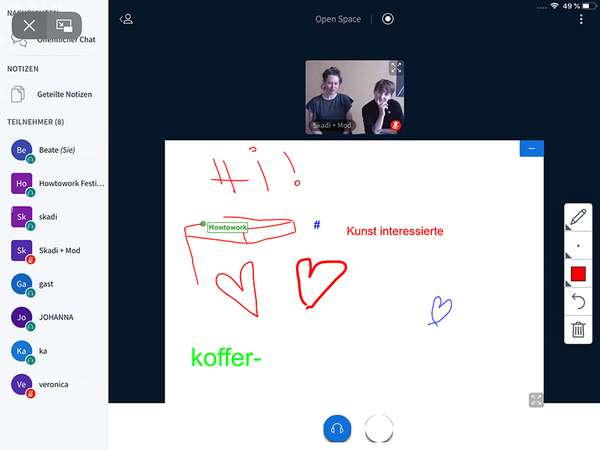
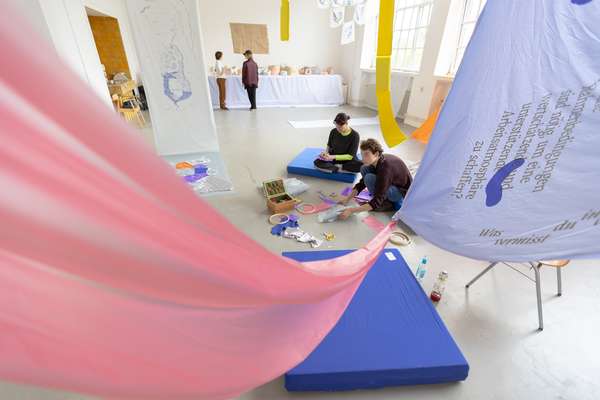
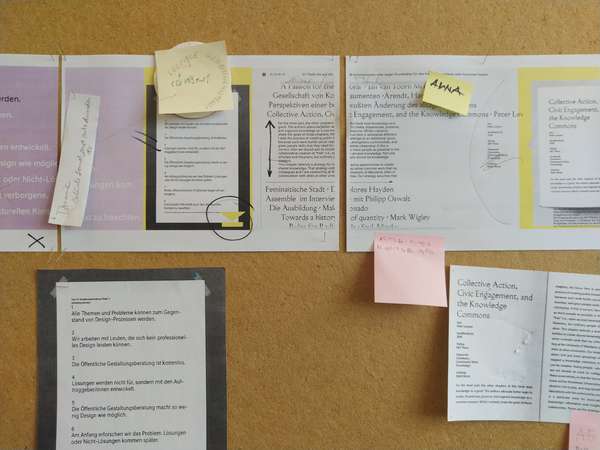
 Graduate Show 2025: Don't stop me now
Graduate Show 2025: Don't stop me now
 Long days, lots to do
Long days, lots to do
 Cine*Ami*es
Cine*Ami*es
 Redesign Democracy – competition for the ballot box of the democratic future
Redesign Democracy – competition for the ballot box of the democratic future
 Art in public space
Art in public space
 How to apply: study at HFBK Hamburg
How to apply: study at HFBK Hamburg
 Annual Exhibition 2025 at the HFBK Hamburg
Annual Exhibition 2025 at the HFBK Hamburg
 The Elephant in The Room – Sculpture today
The Elephant in The Room – Sculpture today
 Hiscox Art Prize 2024
Hiscox Art Prize 2024
 The New Woman
The New Woman
 Doing a PhD at the HFBK Hamburg
Doing a PhD at the HFBK Hamburg
 Graduate Show 2024 - Letting Go
Graduate Show 2024 - Letting Go
 Finkenwerder Art Prize 2024
Finkenwerder Art Prize 2024
 Archives of the Body - The Body in Archiving
Archives of the Body - The Body in Archiving
 New partnership with the School of Arts at the University of Haifa
New partnership with the School of Arts at the University of Haifa
 Annual Exhibition 2024 at the HFBK Hamburg
Annual Exhibition 2024 at the HFBK Hamburg
 (Ex)Changes of / in Art
(Ex)Changes of / in Art
 Extended Libraries
Extended Libraries
 And Still I Rise
And Still I Rise
 Let's talk about language
Let's talk about language
 Graduate Show 2023: Unfinished Business
Graduate Show 2023: Unfinished Business
 Let`s work together
Let`s work together
 Annual Exhibition 2023 at HFBK Hamburg
Annual Exhibition 2023 at HFBK Hamburg
 Symposium: Controversy over documenta fifteen
Symposium: Controversy over documenta fifteen
 Festival and Symposium: Non-Knowledge, Laughter and the Moving Image
Festival and Symposium: Non-Knowledge, Laughter and the Moving Image
 Solo exhibition by Konstantin Grcic
Solo exhibition by Konstantin Grcic
 Art and war
Art and war
 Graduate Show 2022: We’ve Only Just Begun
Graduate Show 2022: We’ve Only Just Begun
 June is full of art and theory
June is full of art and theory
 Finkenwerder Art Prize 2022
Finkenwerder Art Prize 2022
 Nachhaltigkeit im Kontext von Kunst und Kunsthochschule
Nachhaltigkeit im Kontext von Kunst und Kunsthochschule
 Raum für die Kunst
Raum für die Kunst
 Annual Exhibition 2022 at the HFBK
Annual Exhibition 2022 at the HFBK
 Conference: Counter-Monuments and Para-Monuments.
Conference: Counter-Monuments and Para-Monuments.
 Diversity
Diversity
 Live und in Farbe: die ASA Open Studios im Juni 2021
Live und in Farbe: die ASA Open Studios im Juni 2021
 Unlearning: Wartenau Assemblies
Unlearning: Wartenau Assemblies
 School of No Consequences
School of No Consequences
 Annual Exhibition 2021 at the HFBK
Annual Exhibition 2021 at the HFBK
 Semestereröffnung und Hiscox-Preisverleihung 2020
Semestereröffnung und Hiscox-Preisverleihung 2020
 Teaching Art Online at the HFBK
Teaching Art Online at the HFBK
 HFBK Graduate Survey
HFBK Graduate Survey
 How political is Social Design?
How political is Social Design?